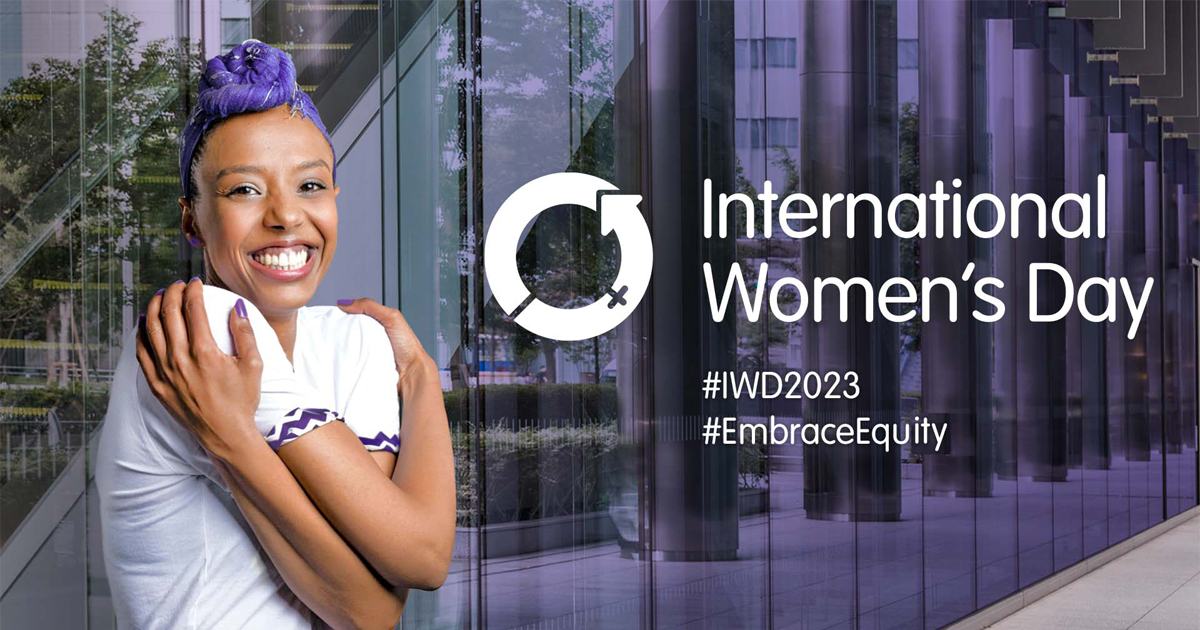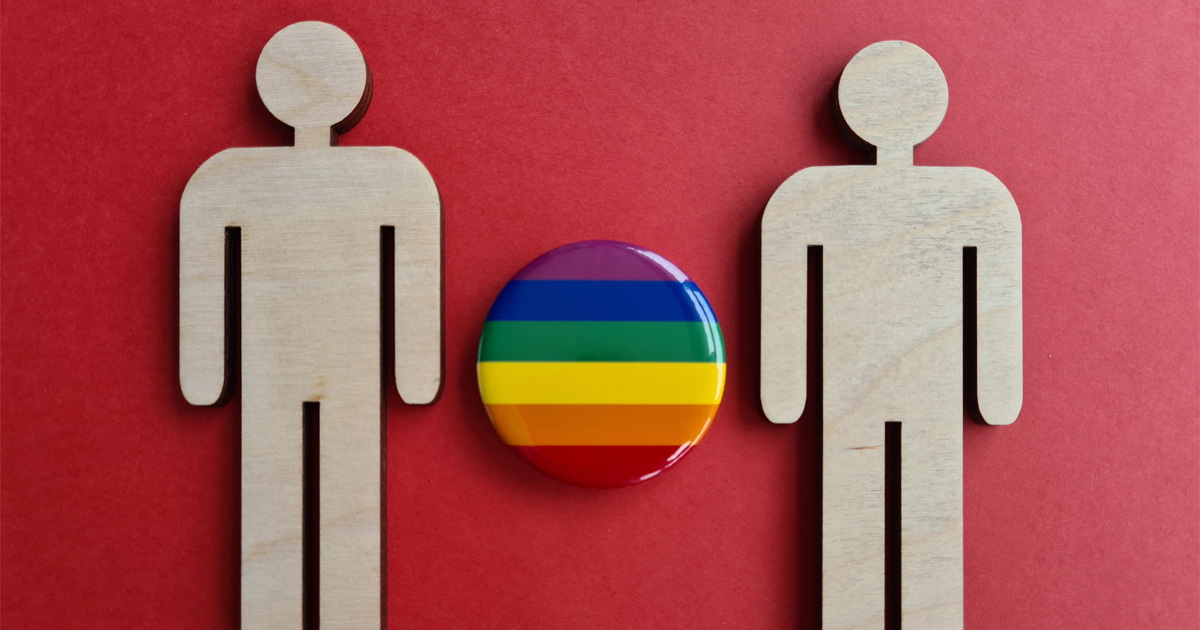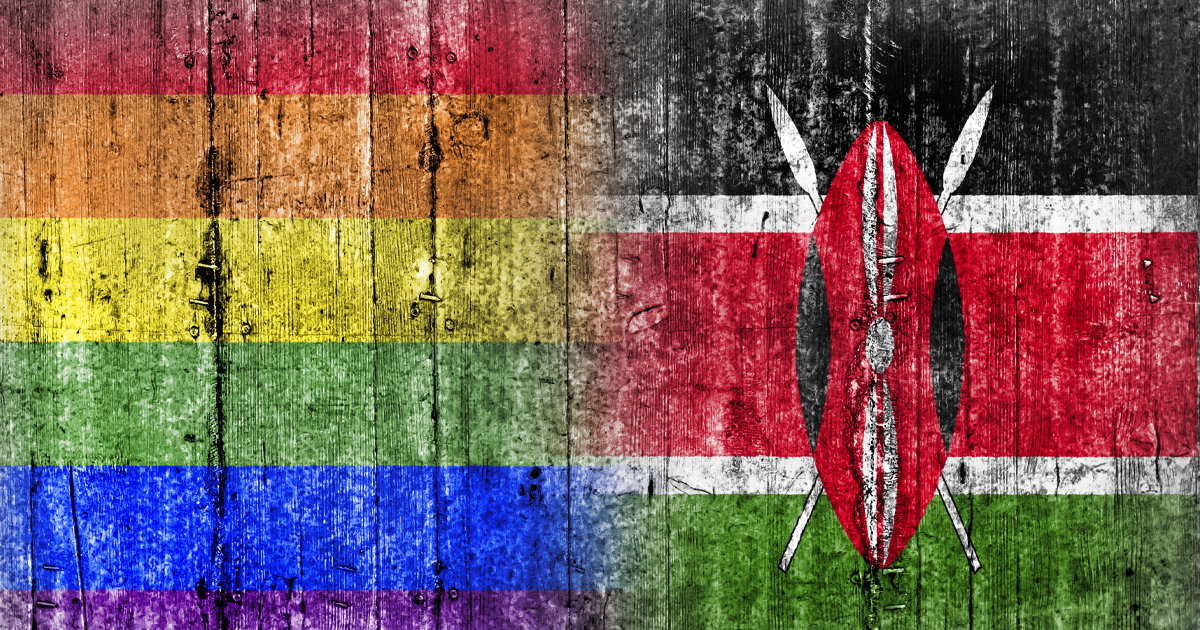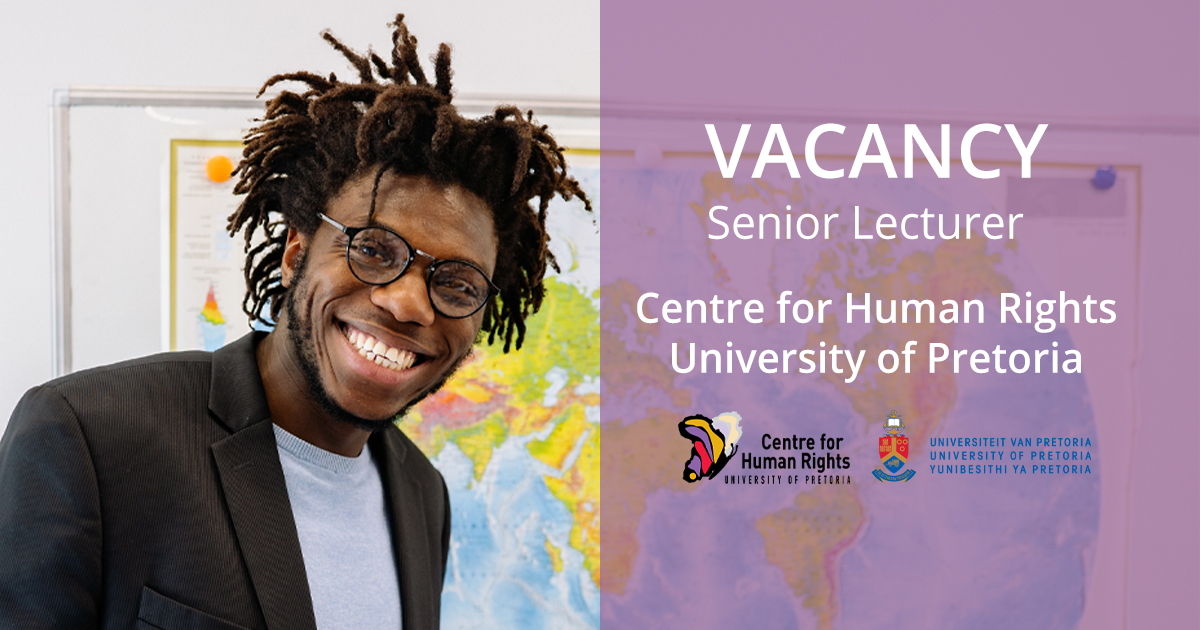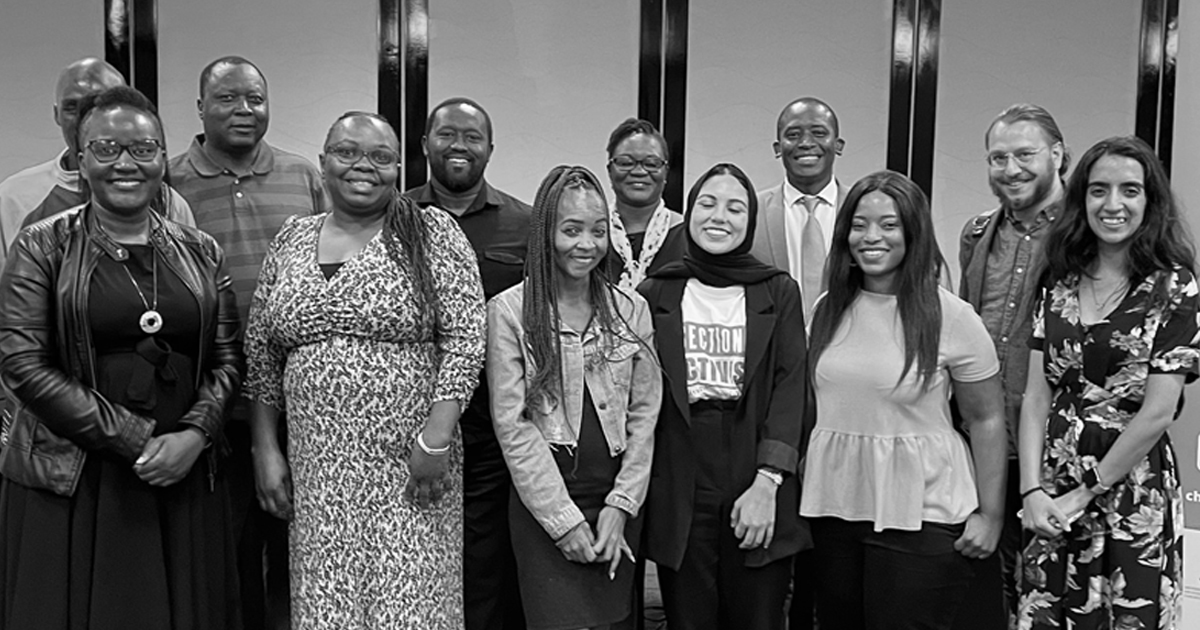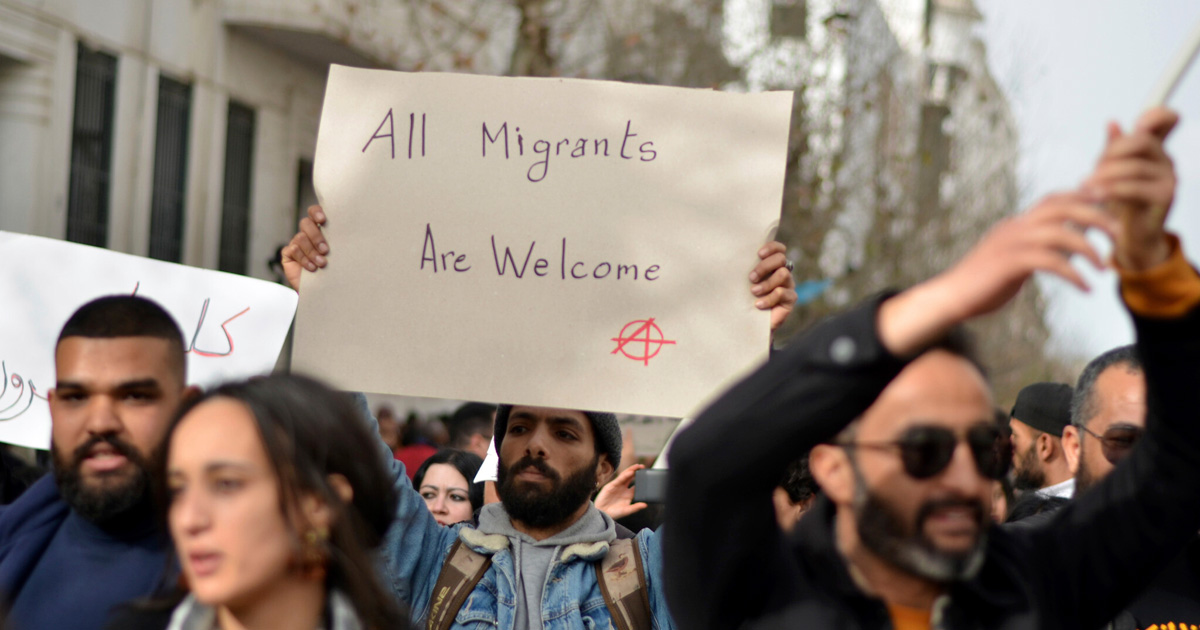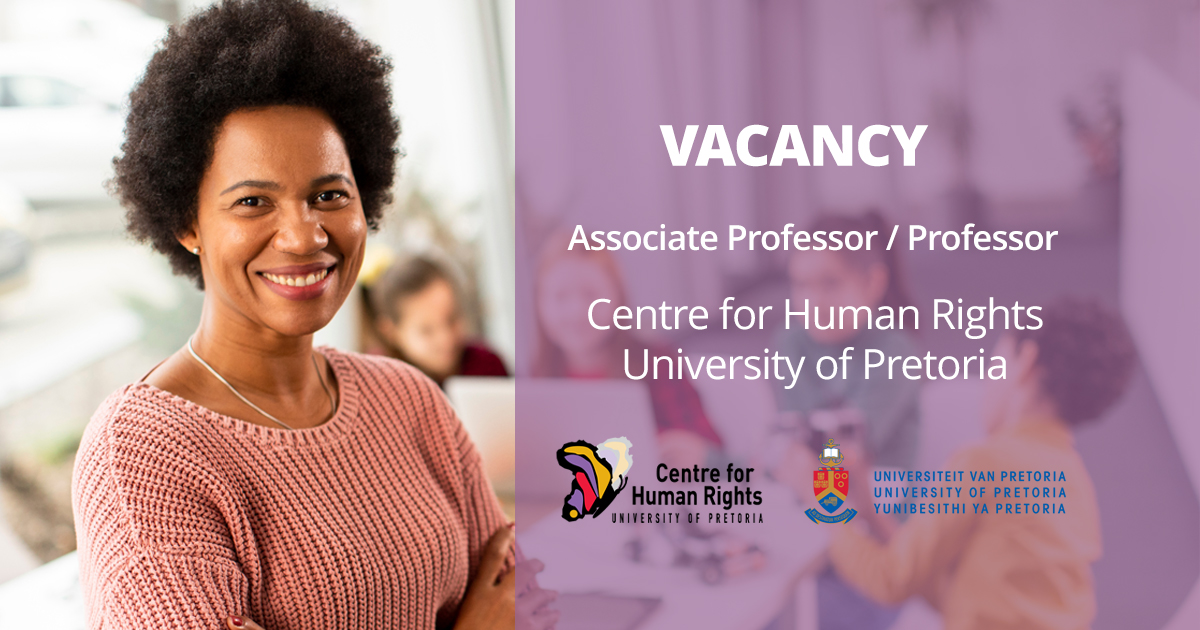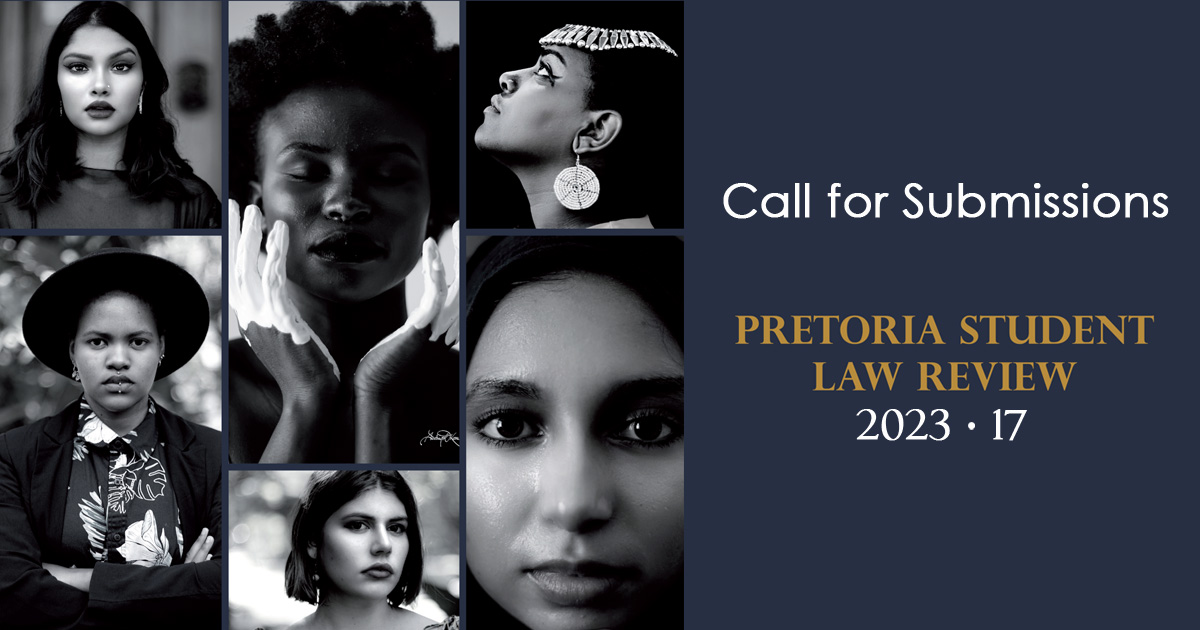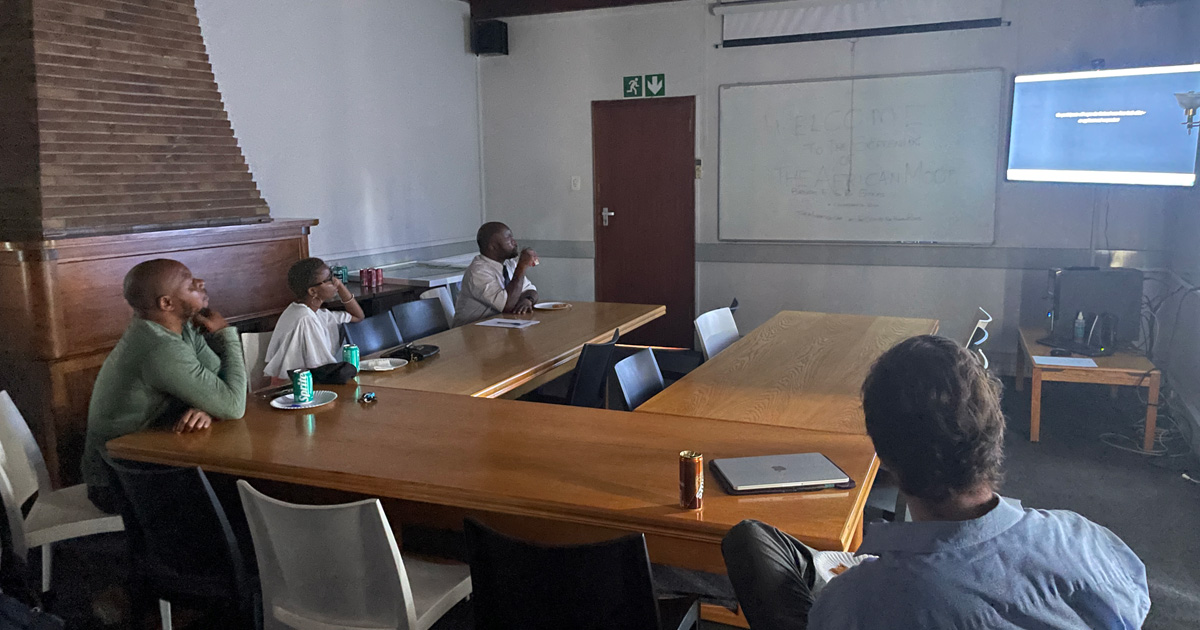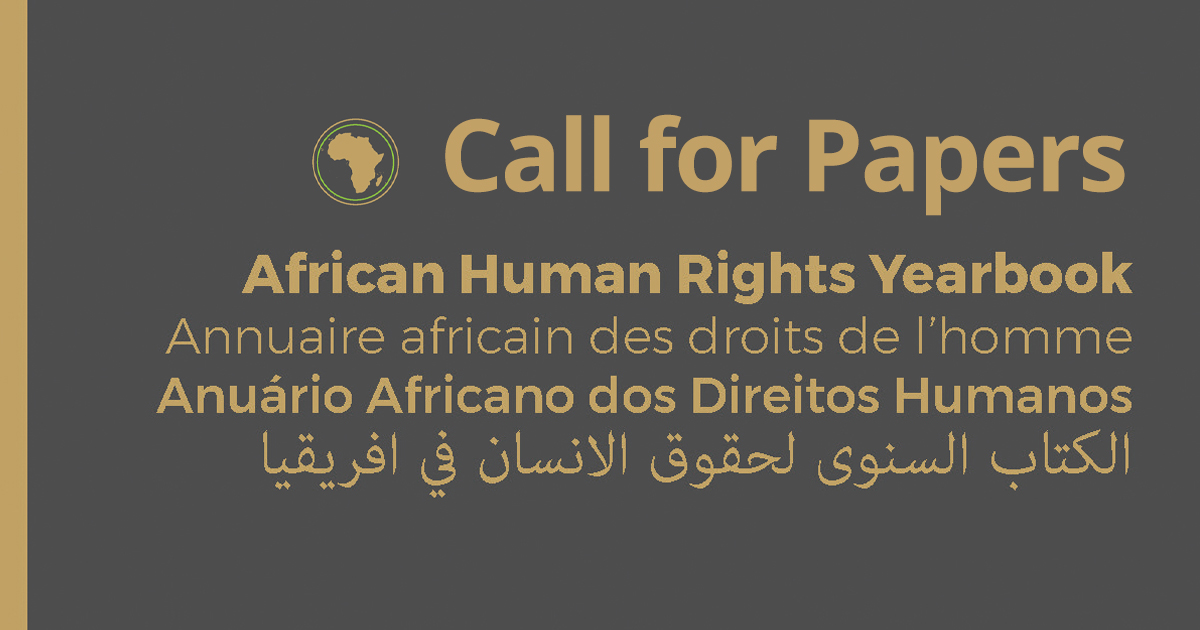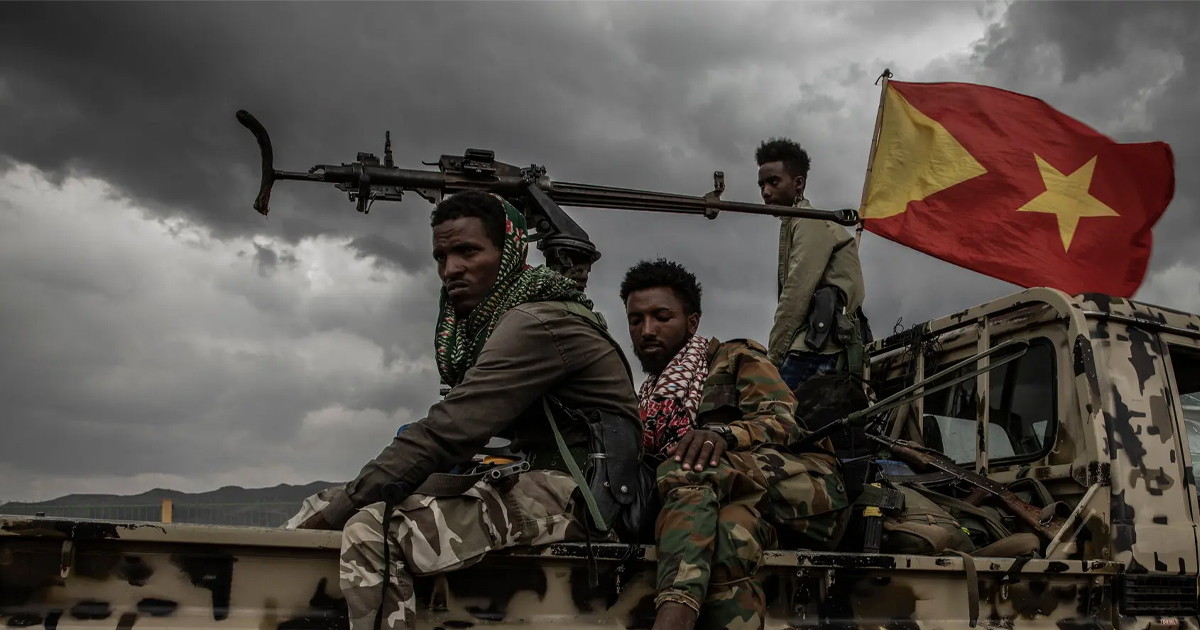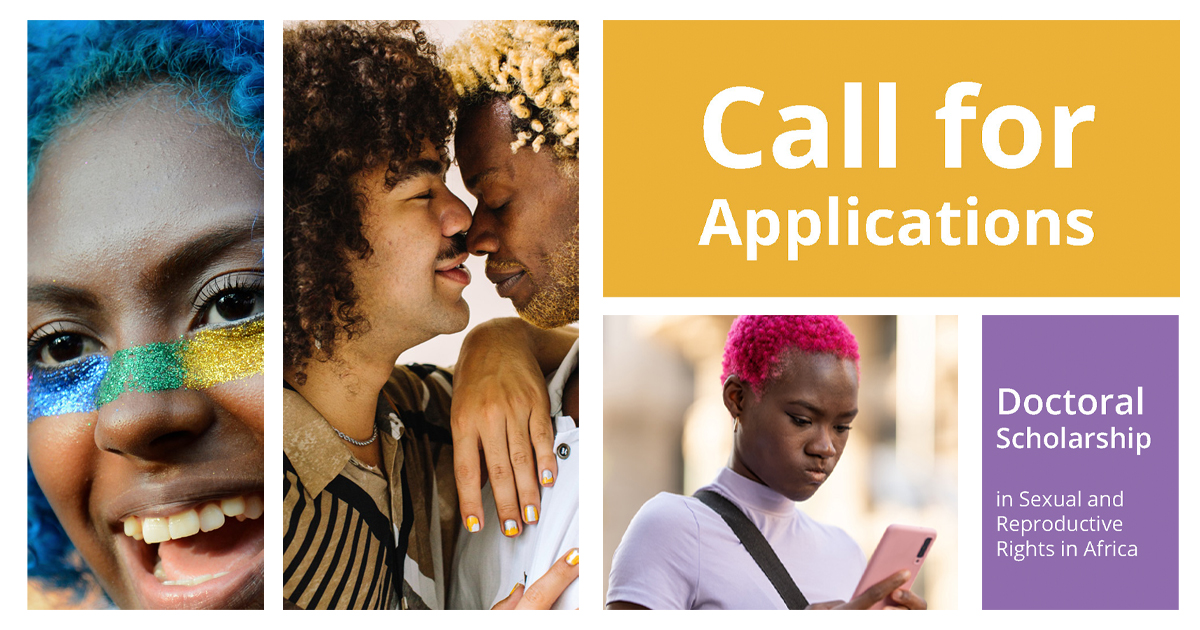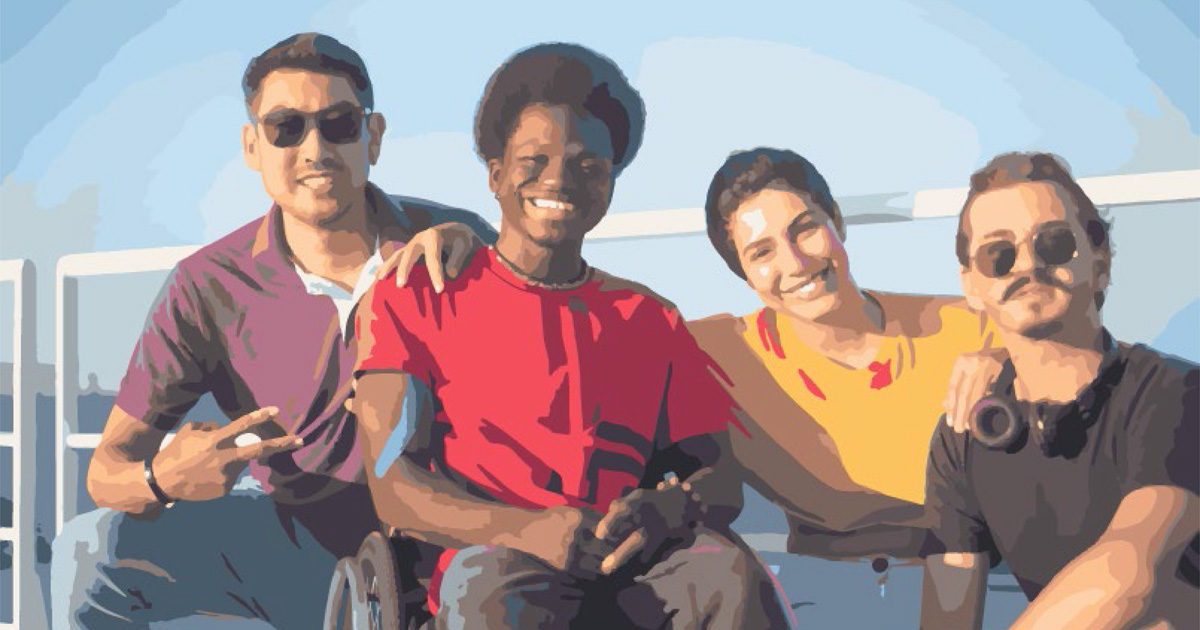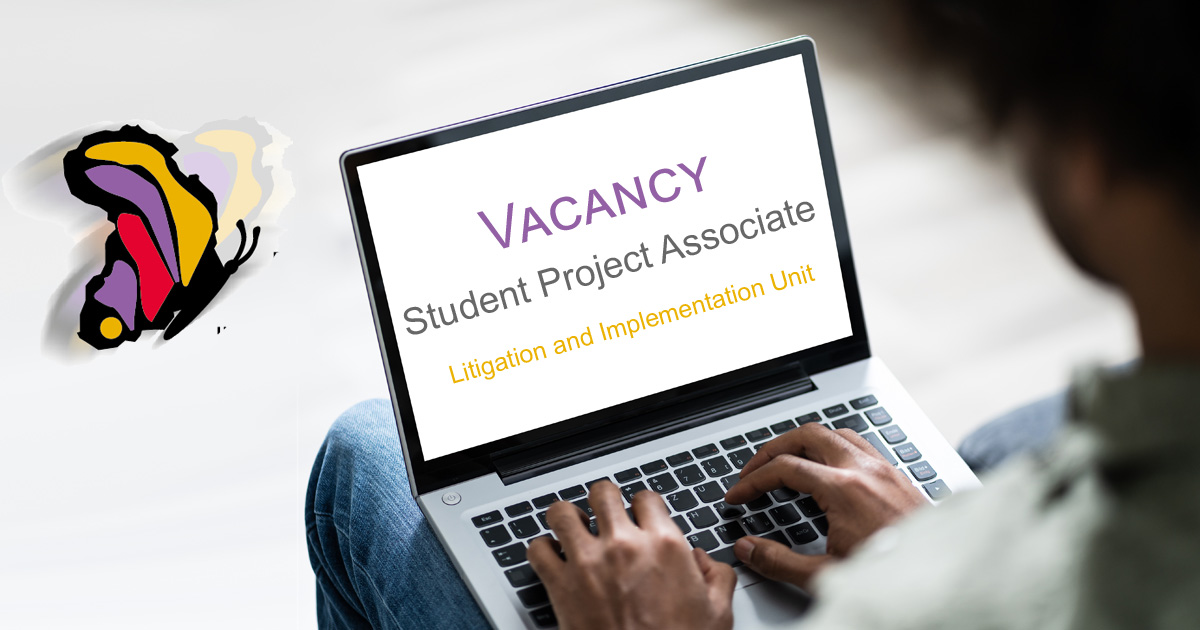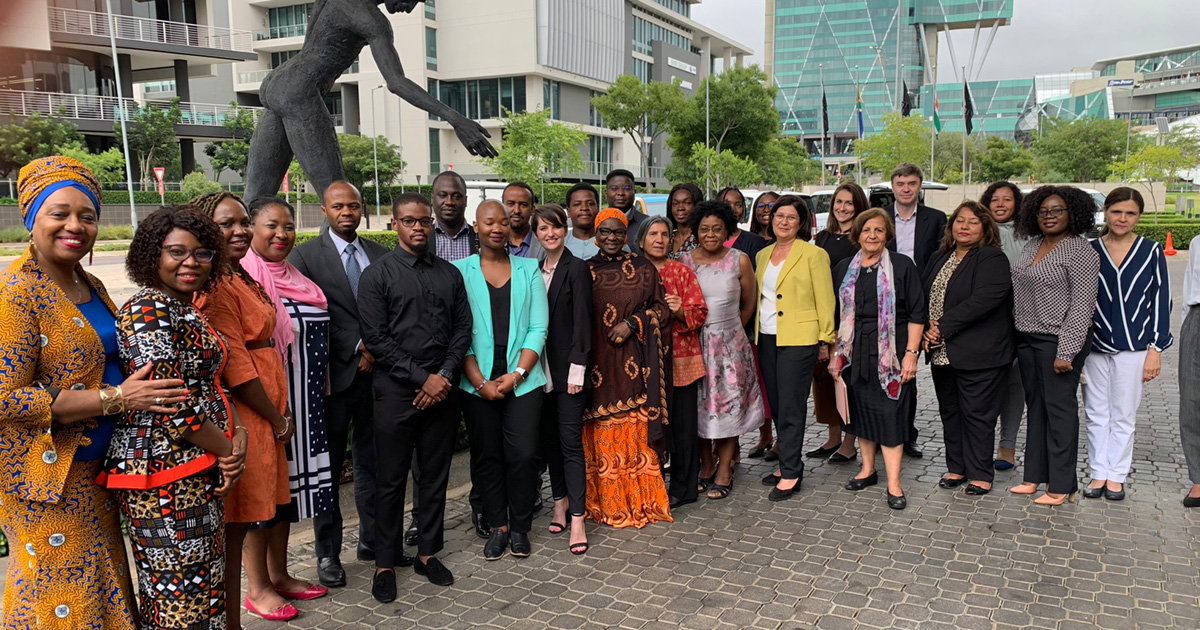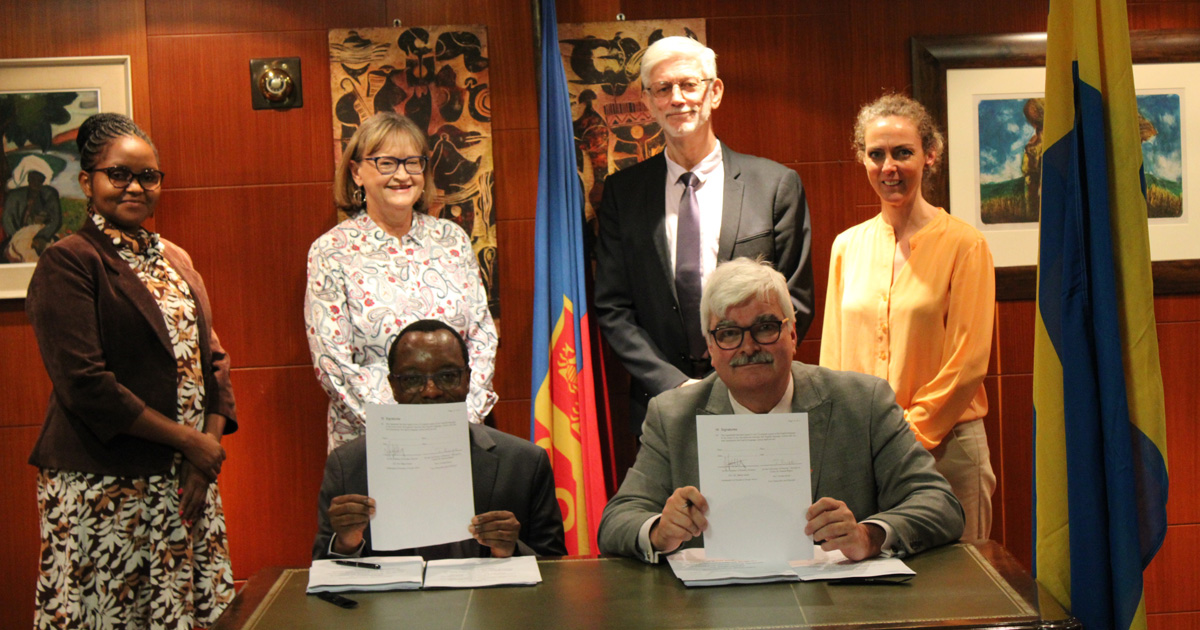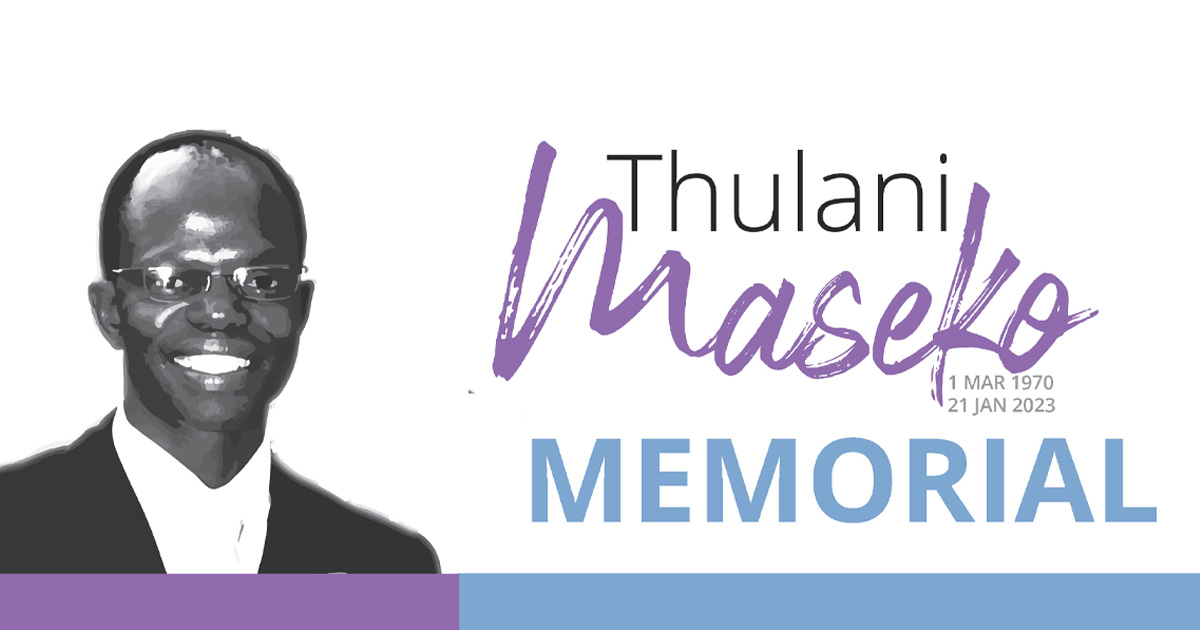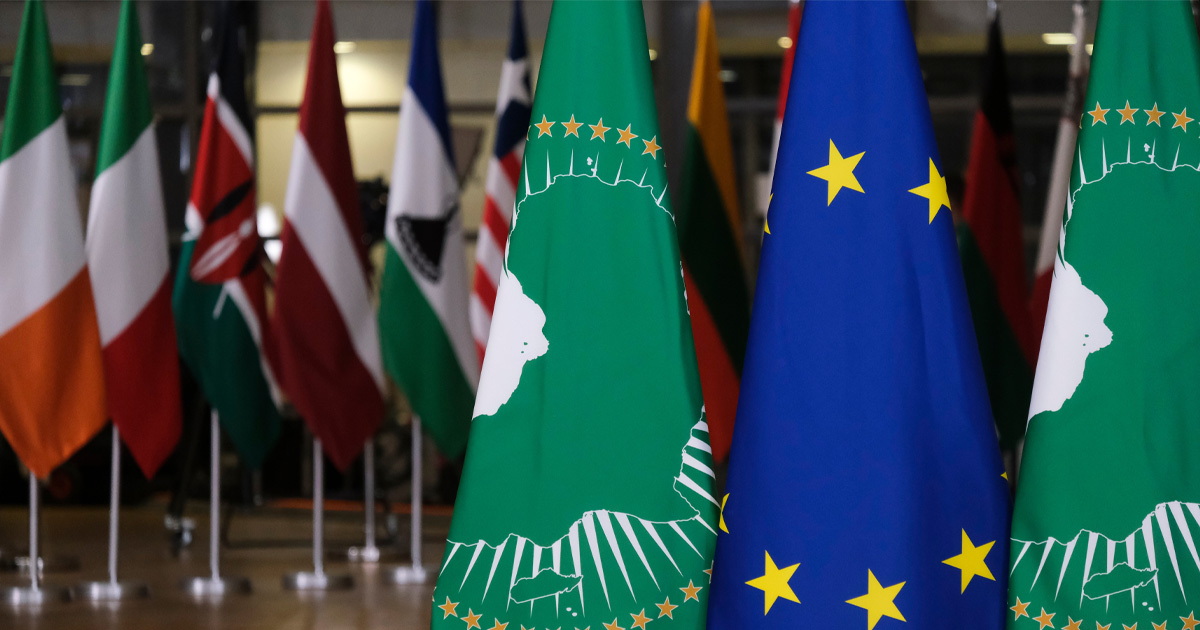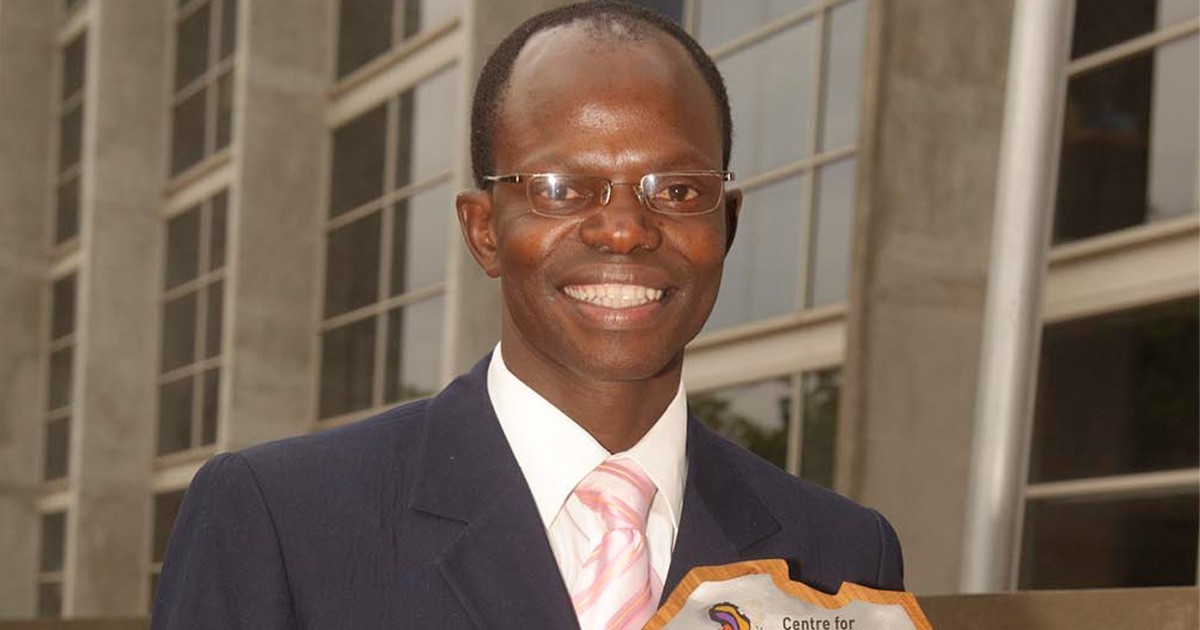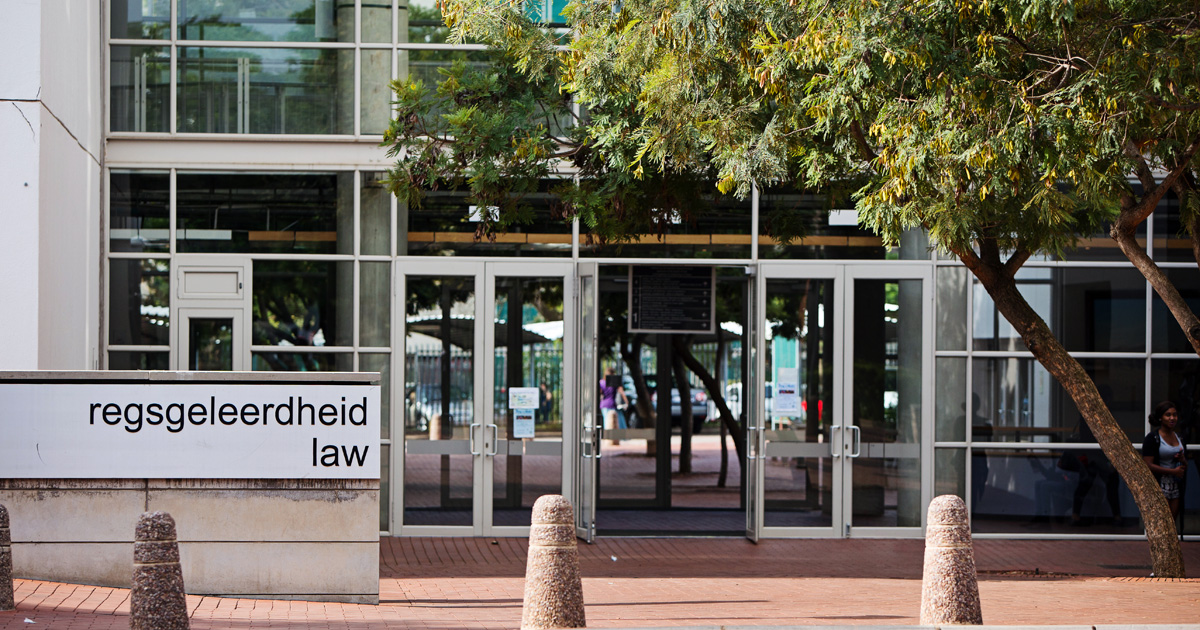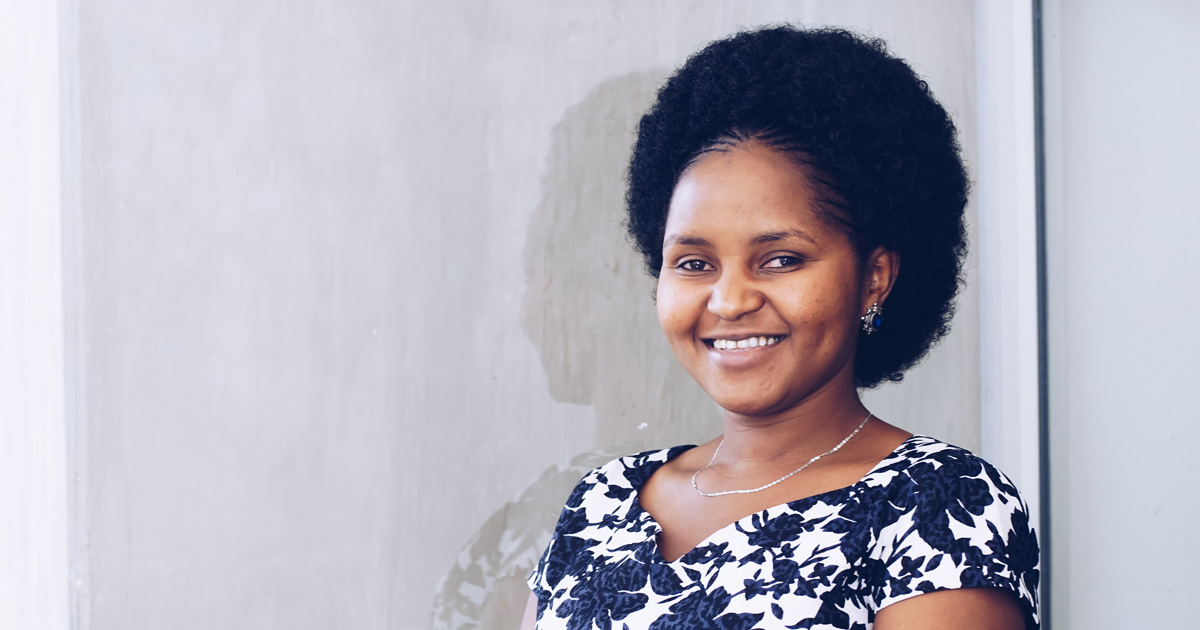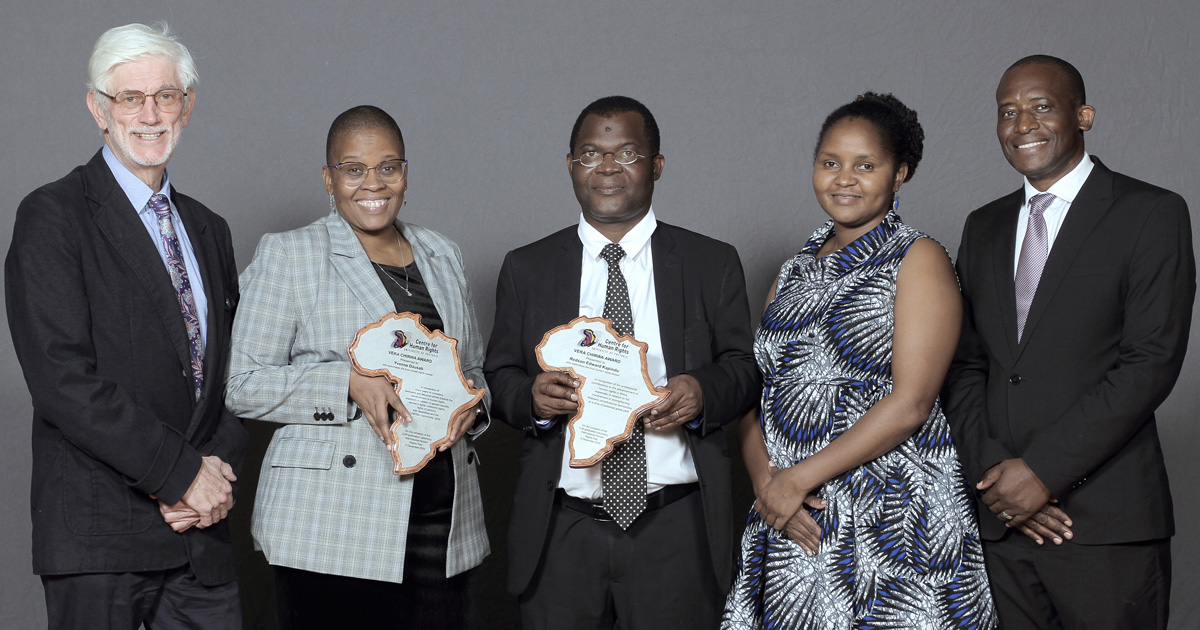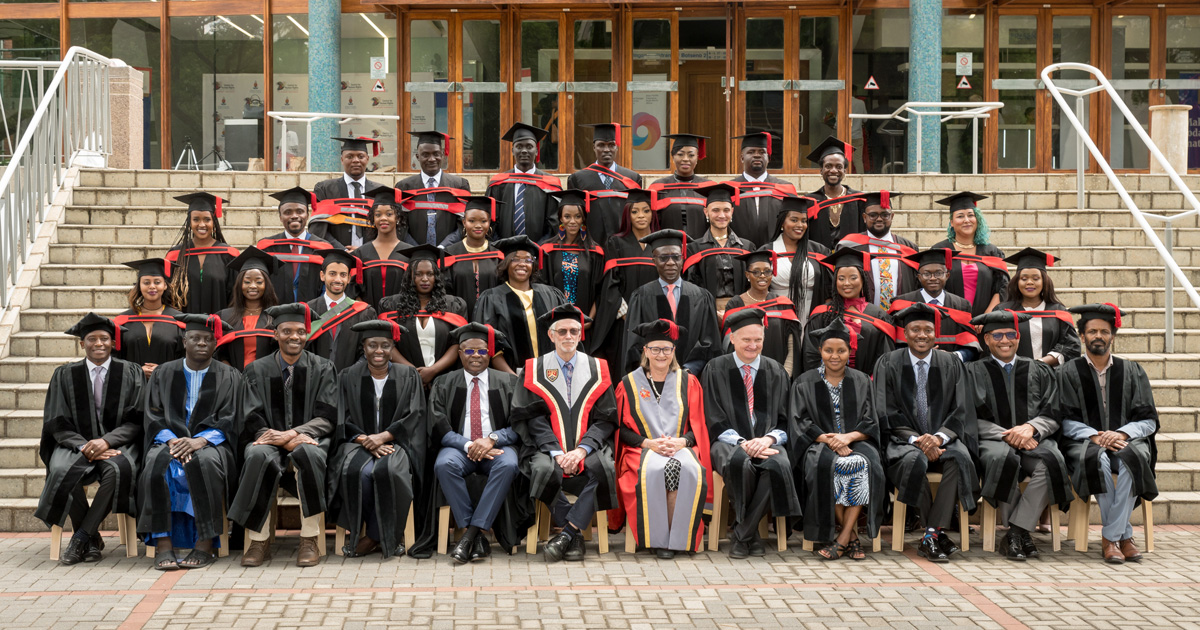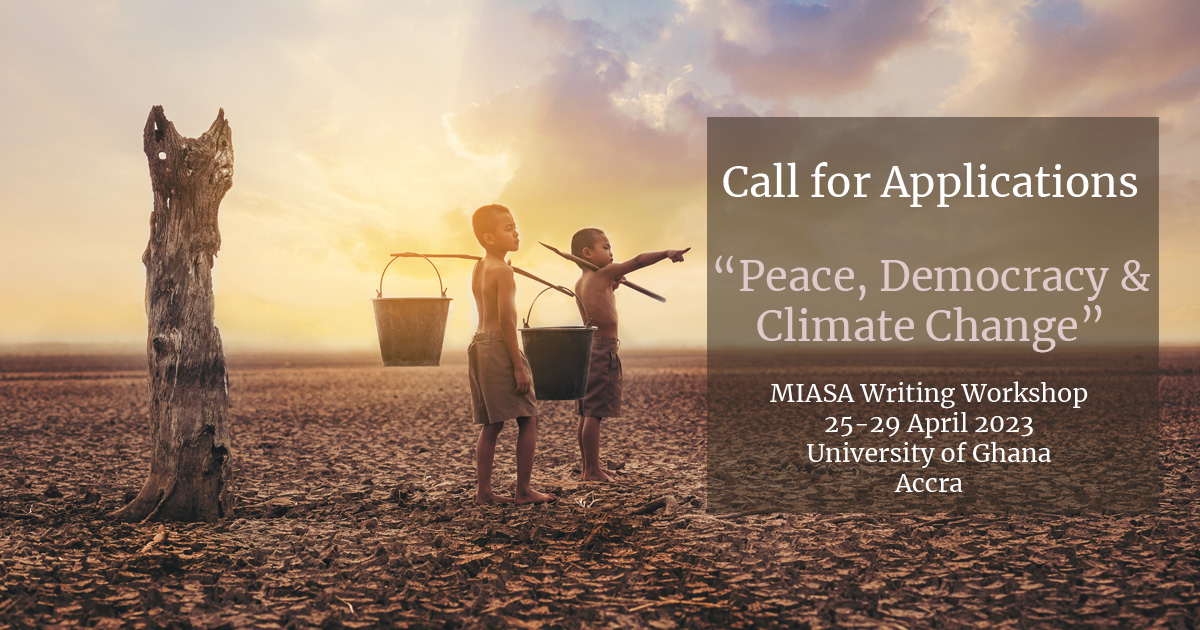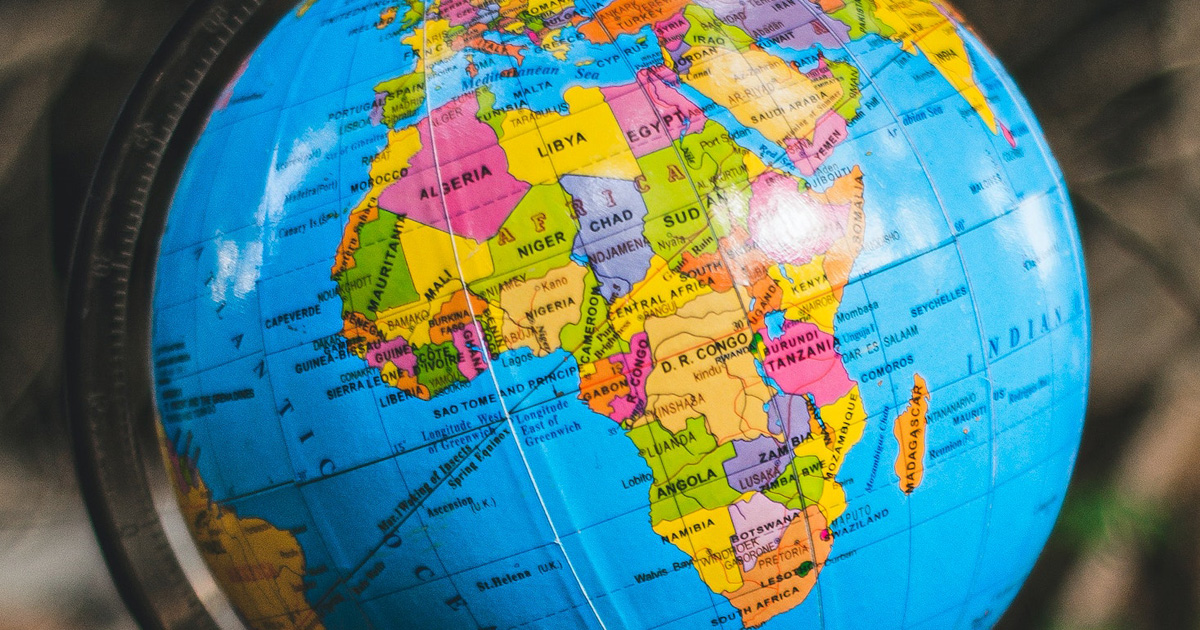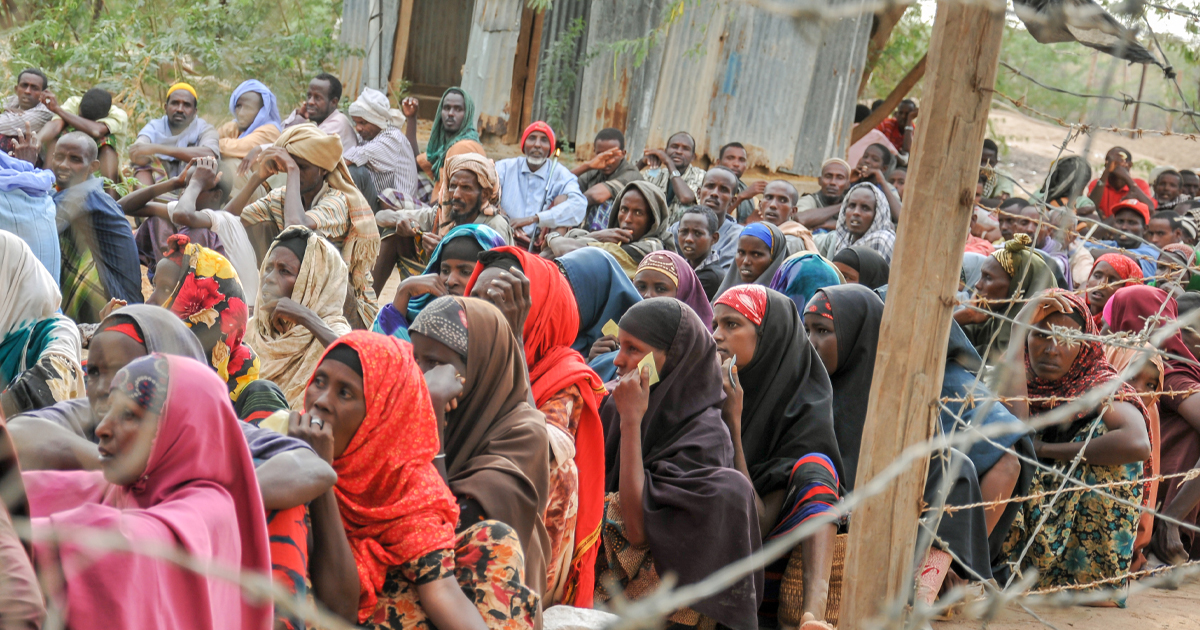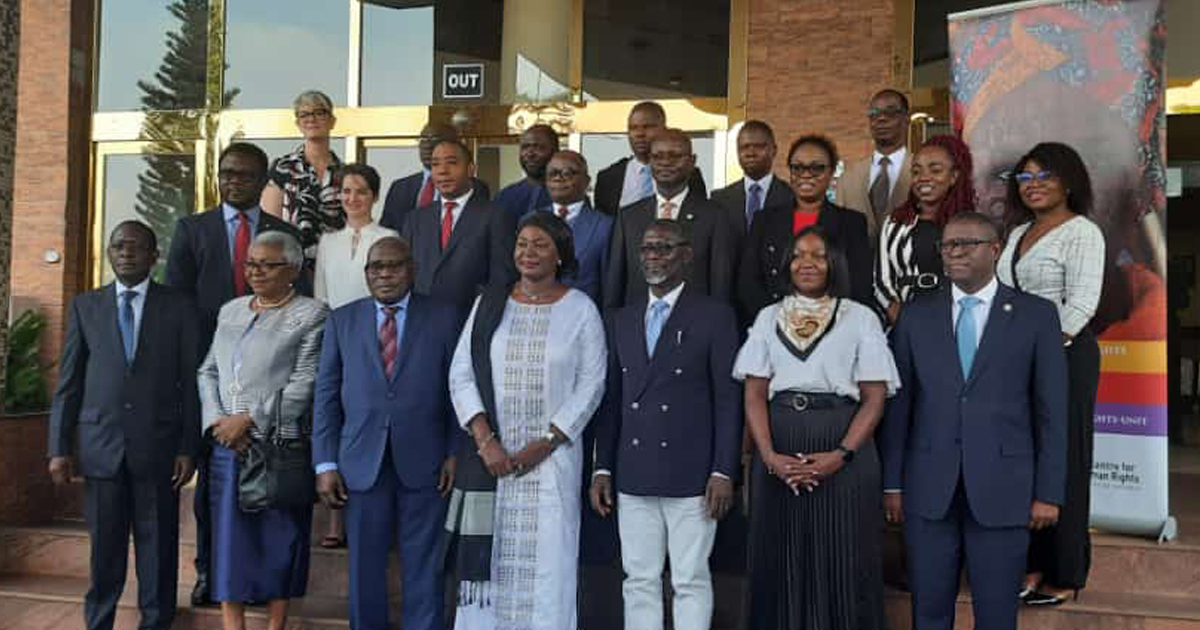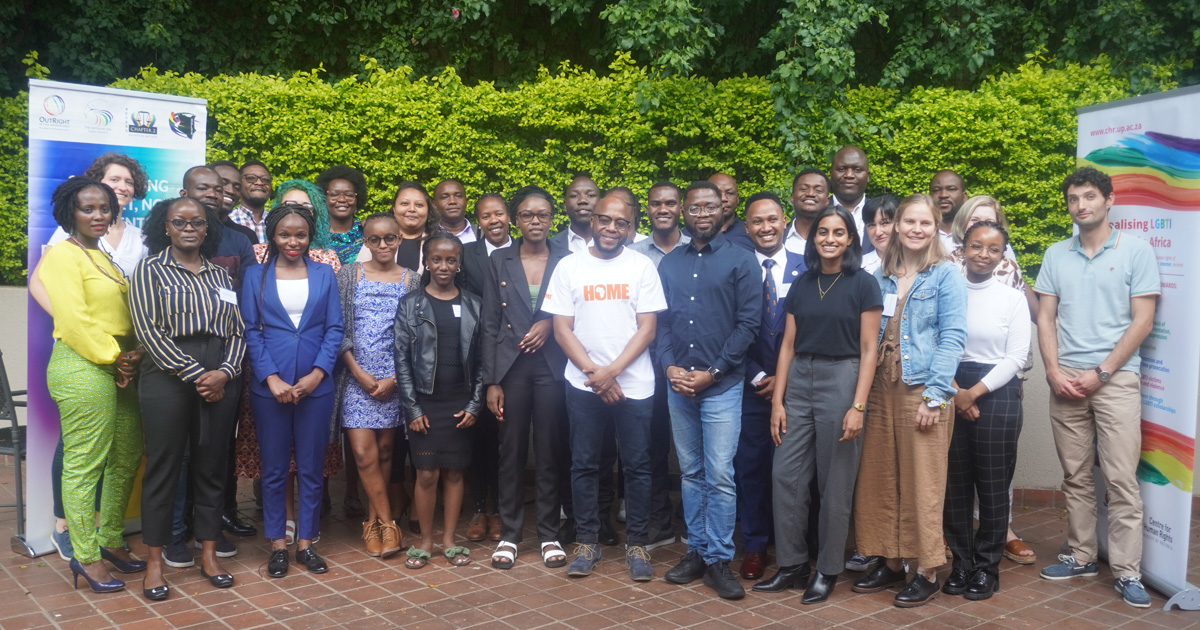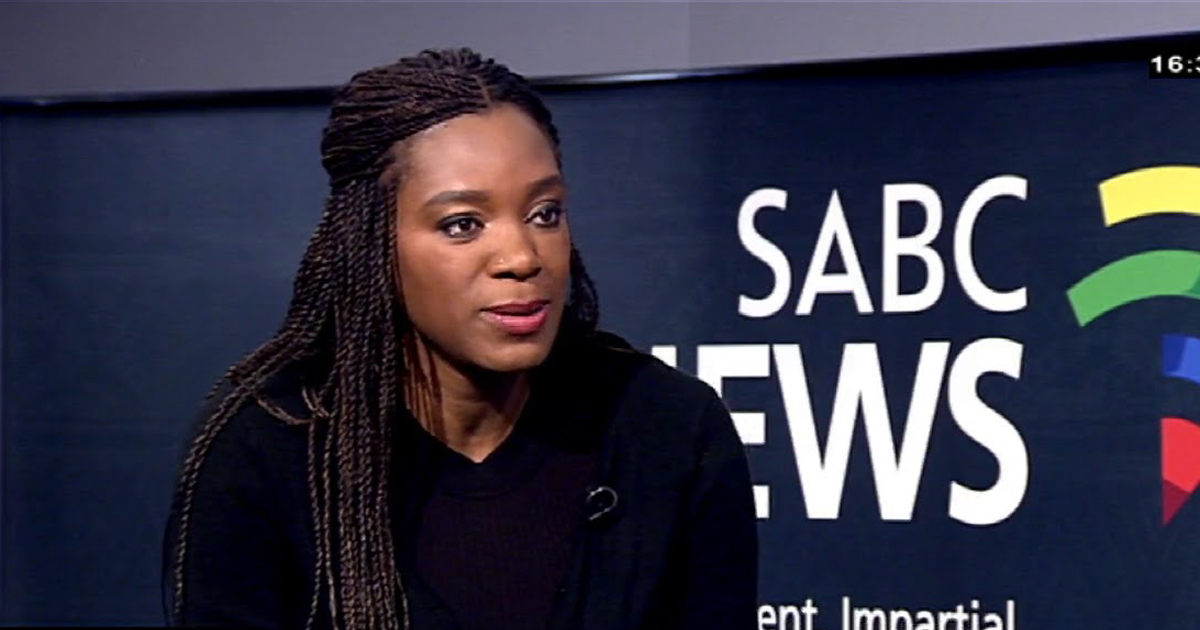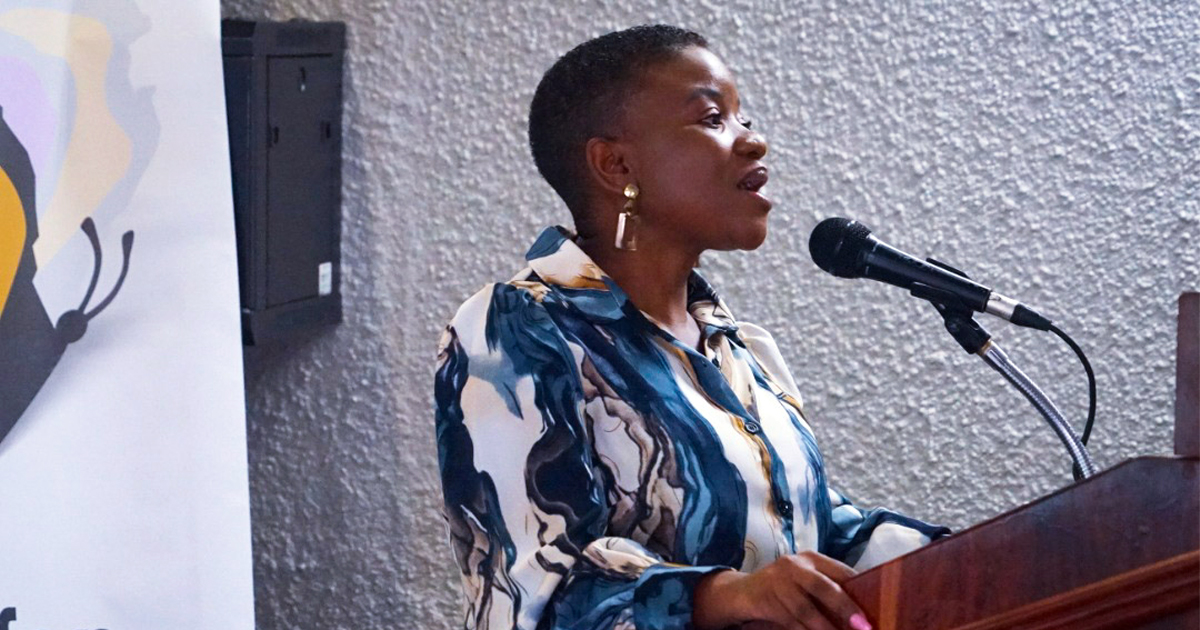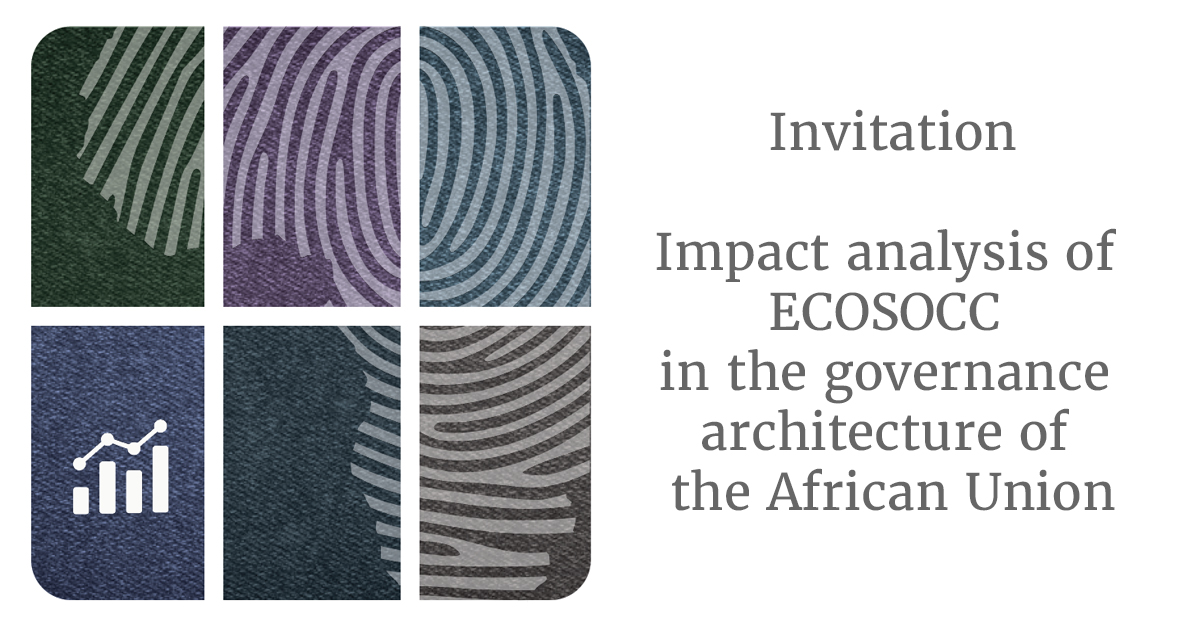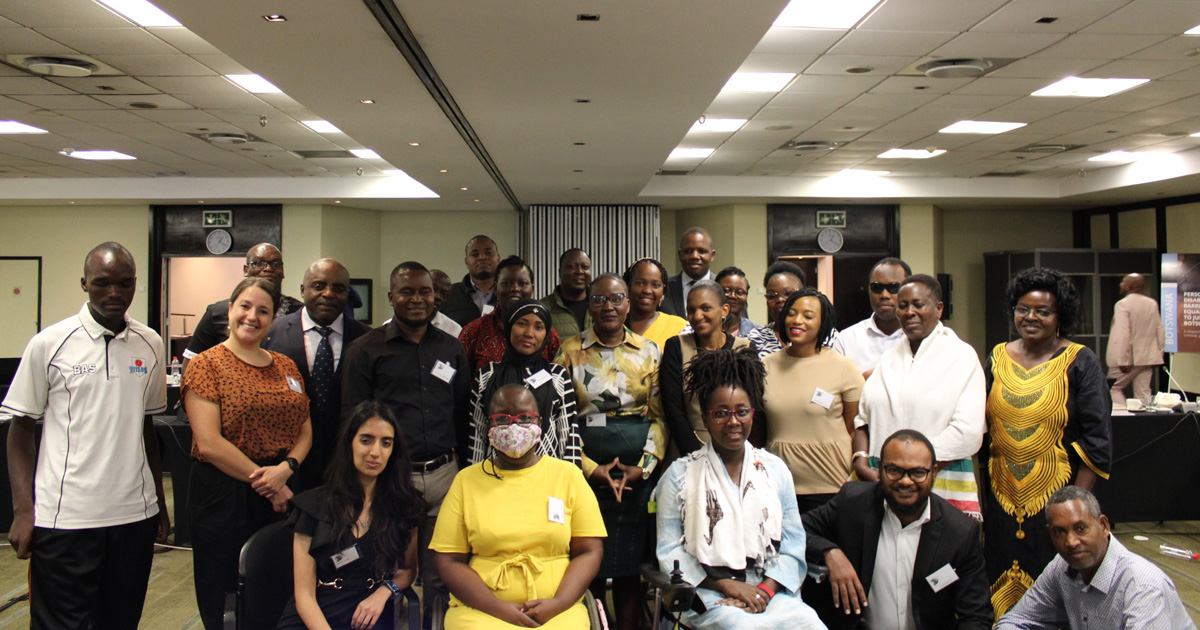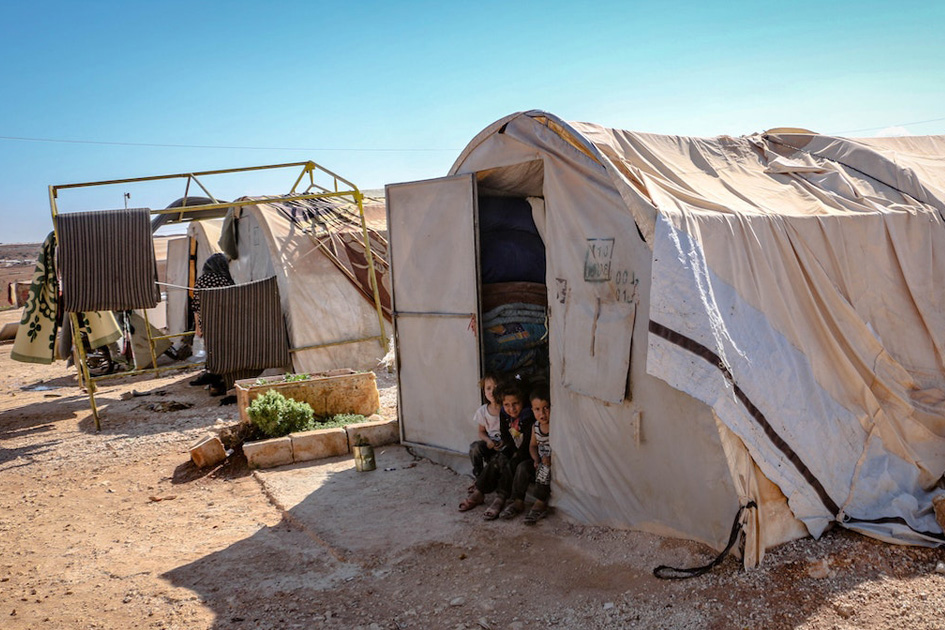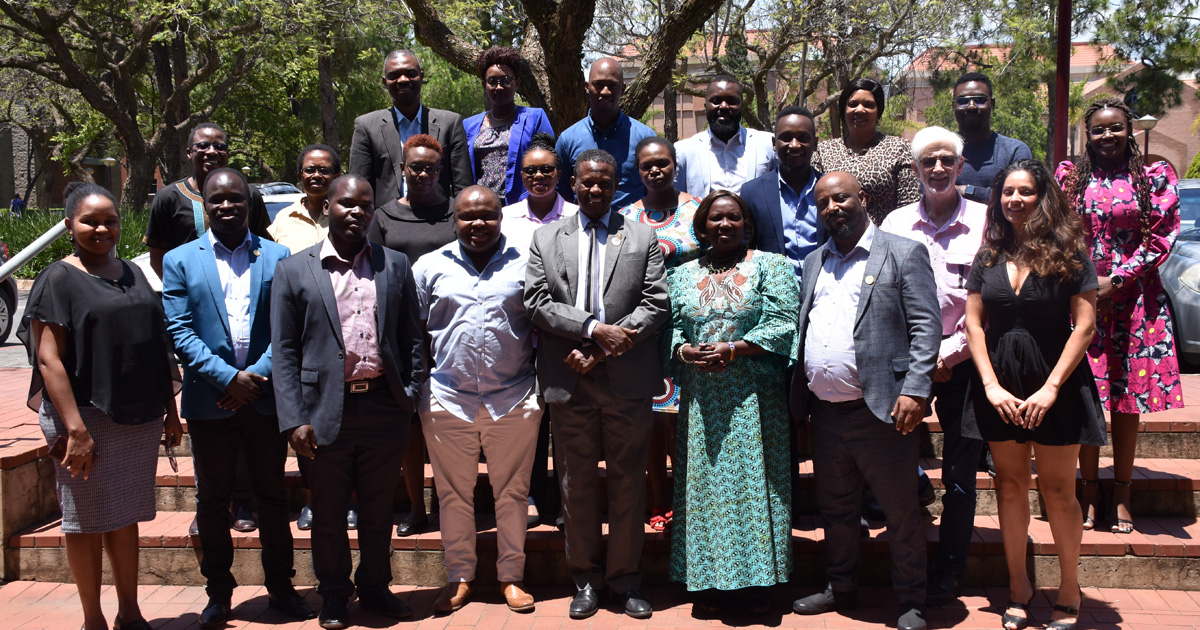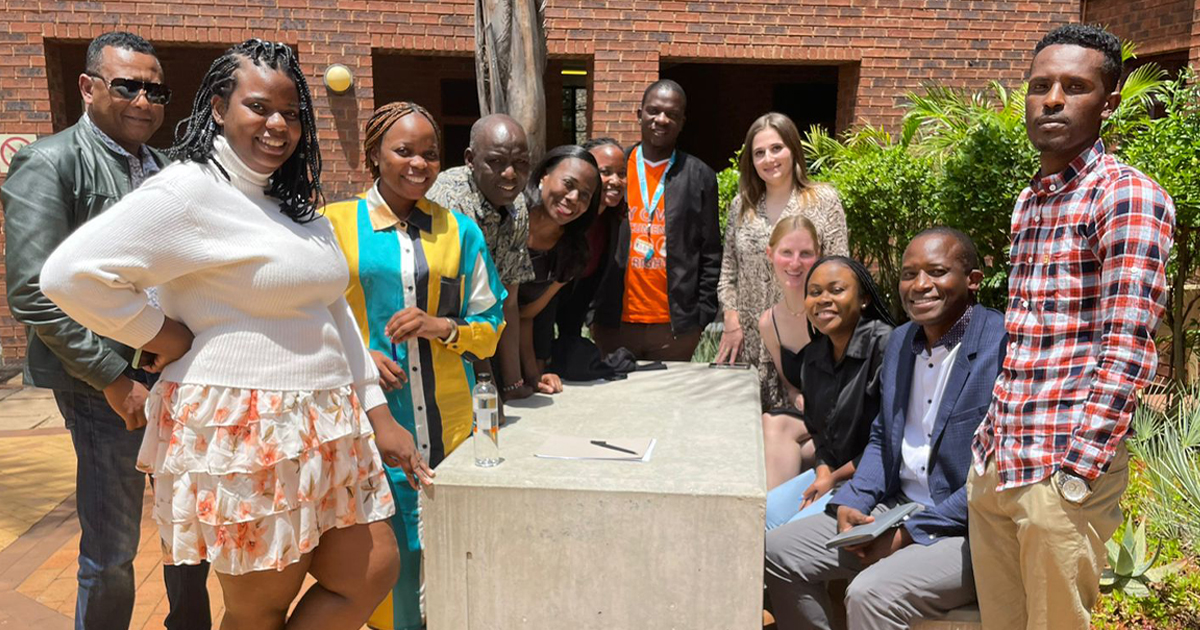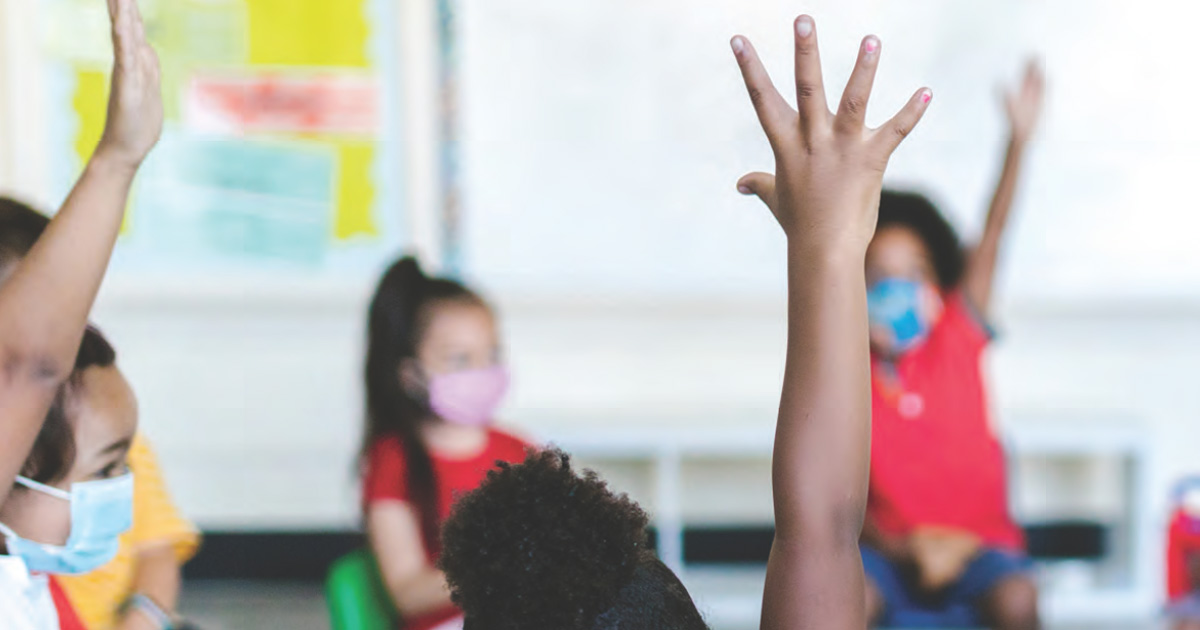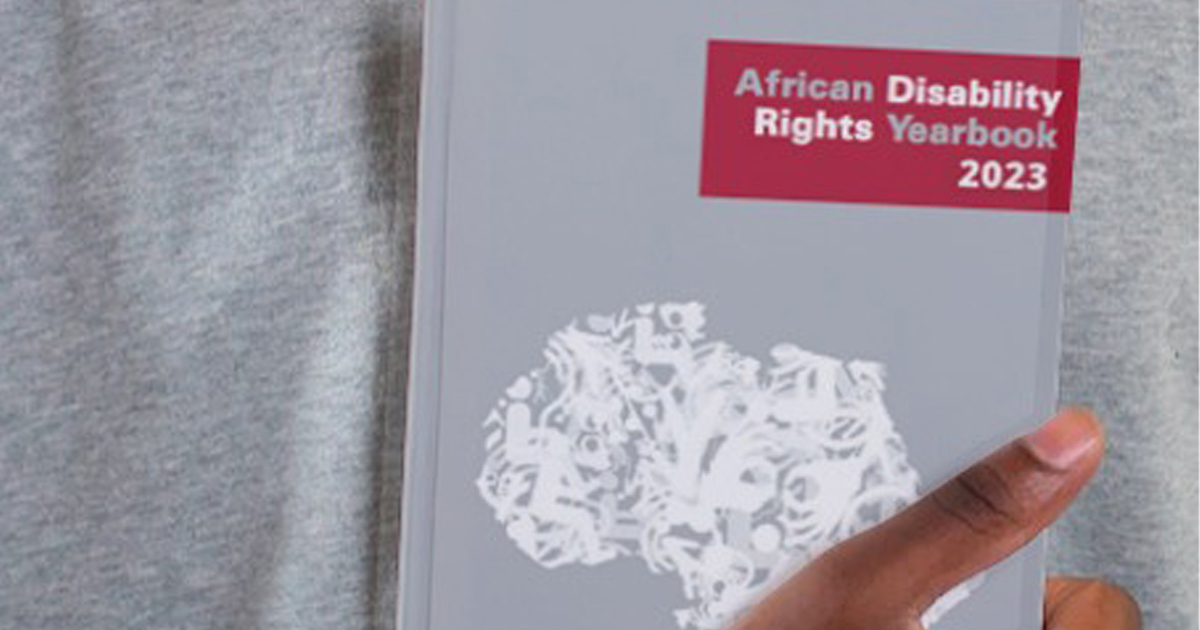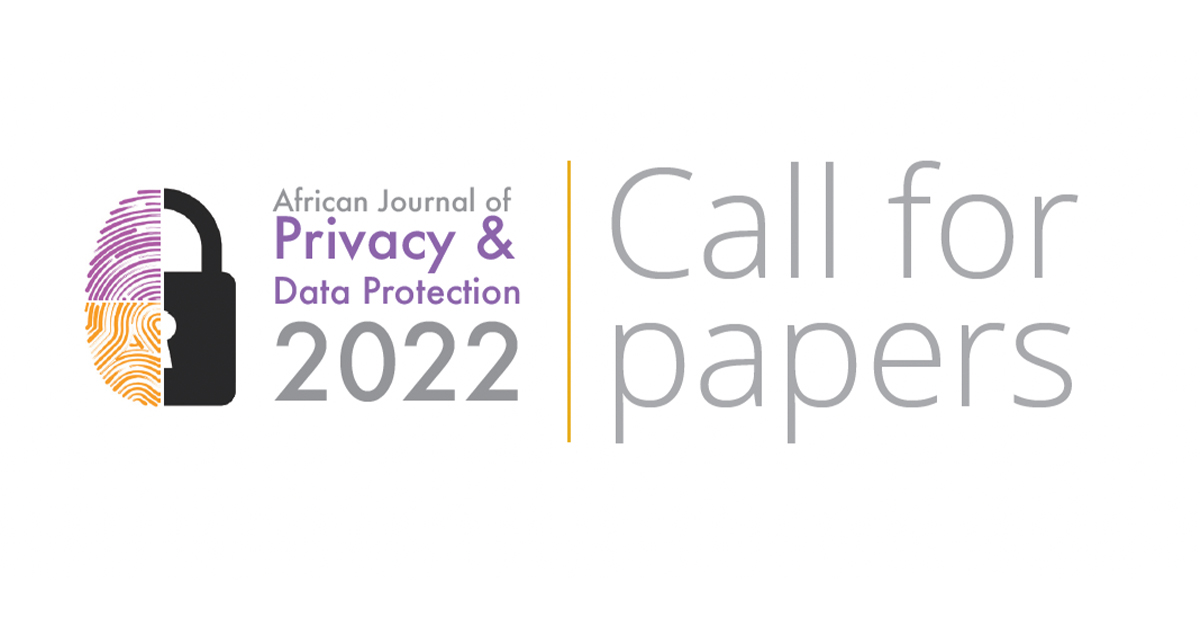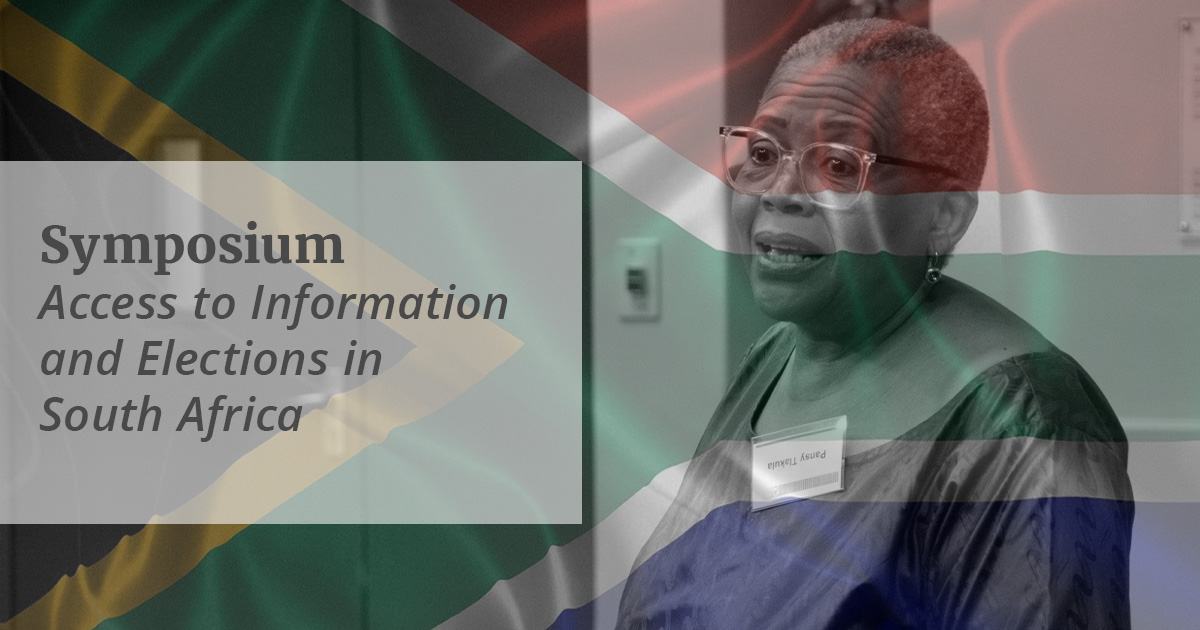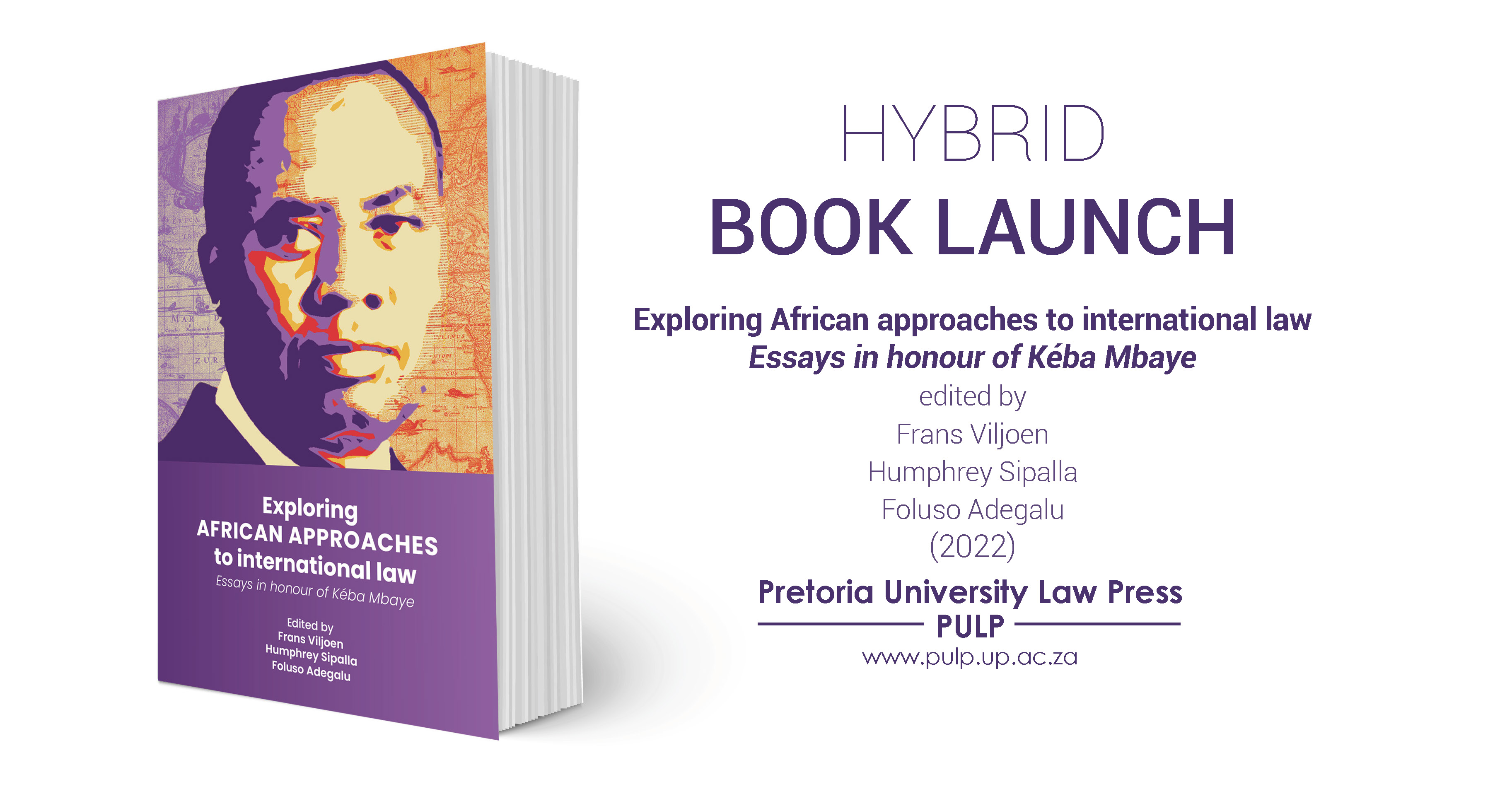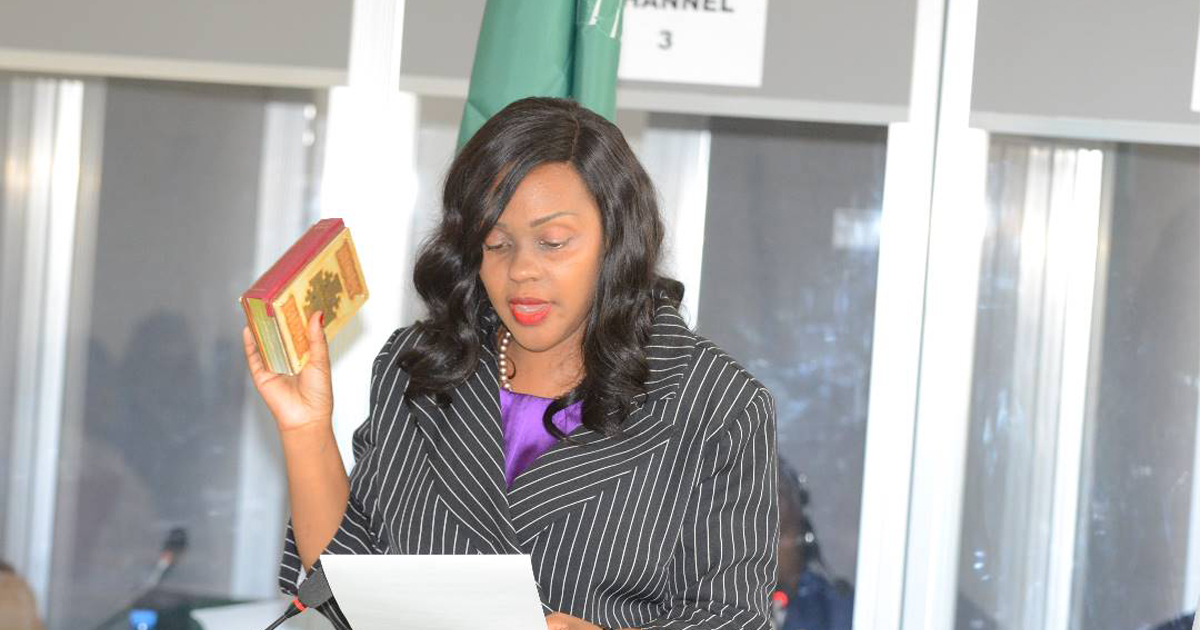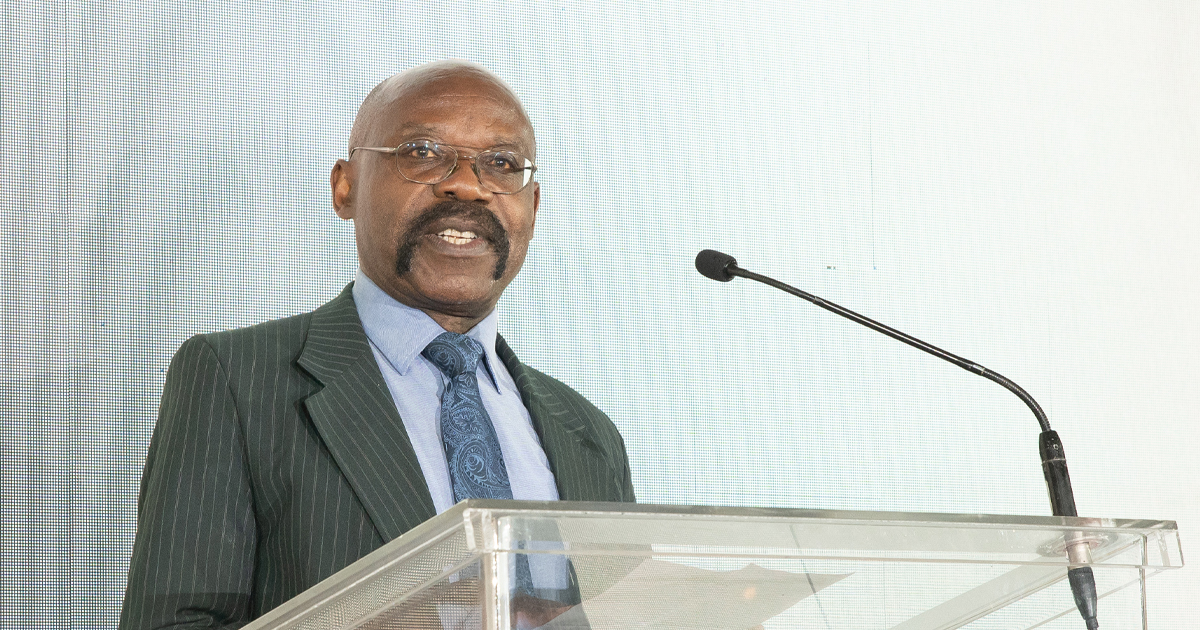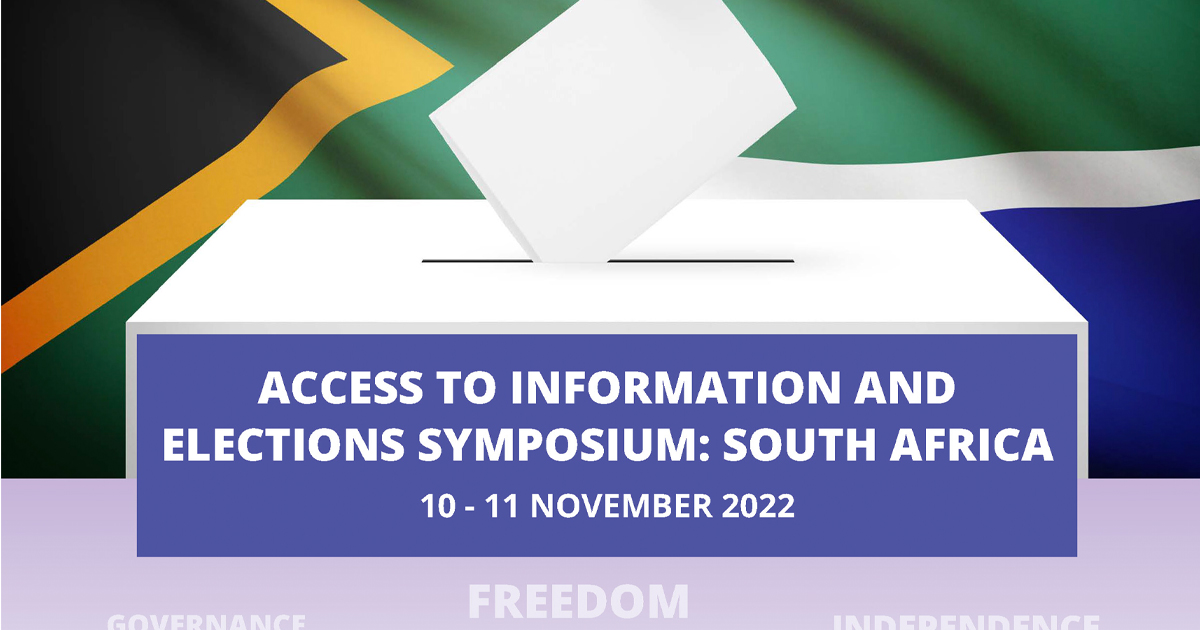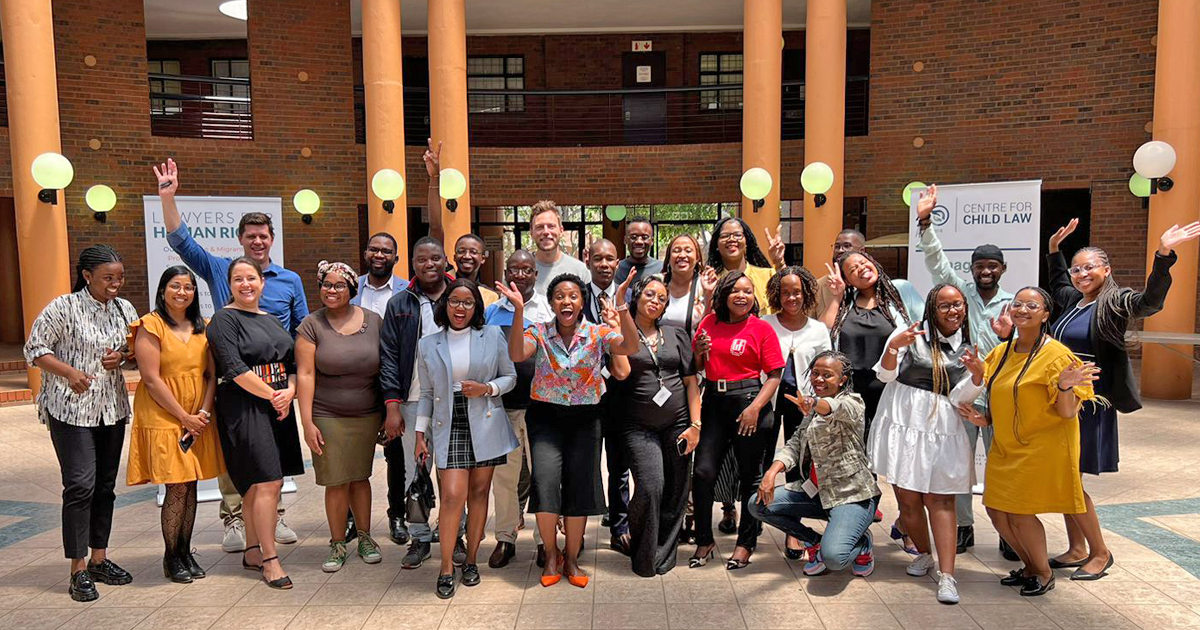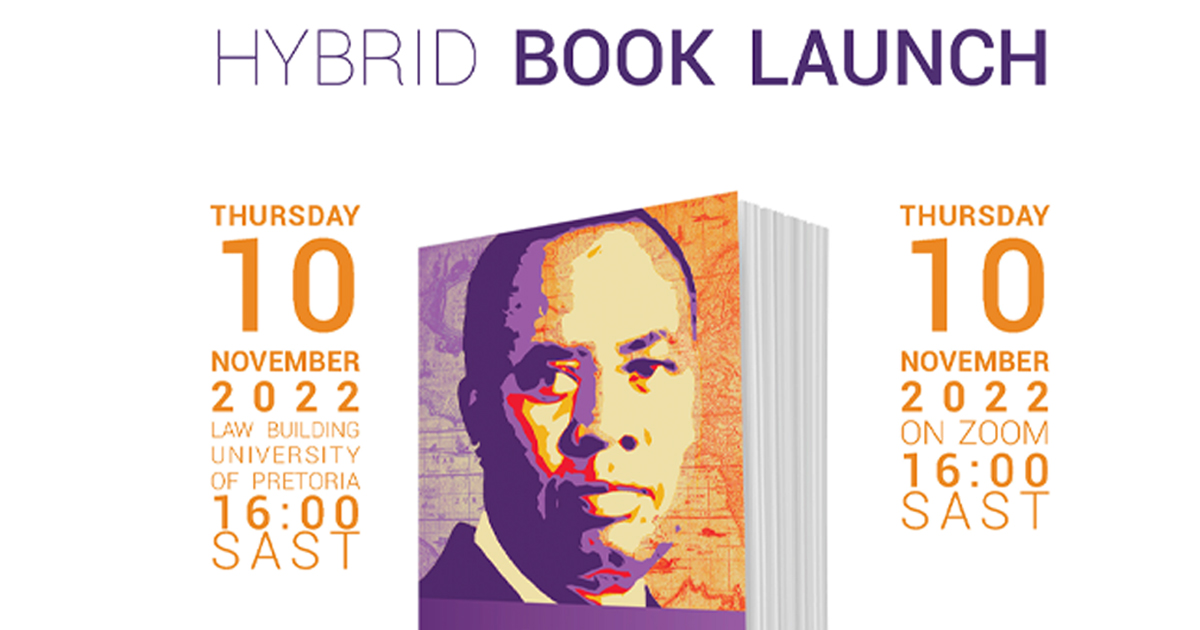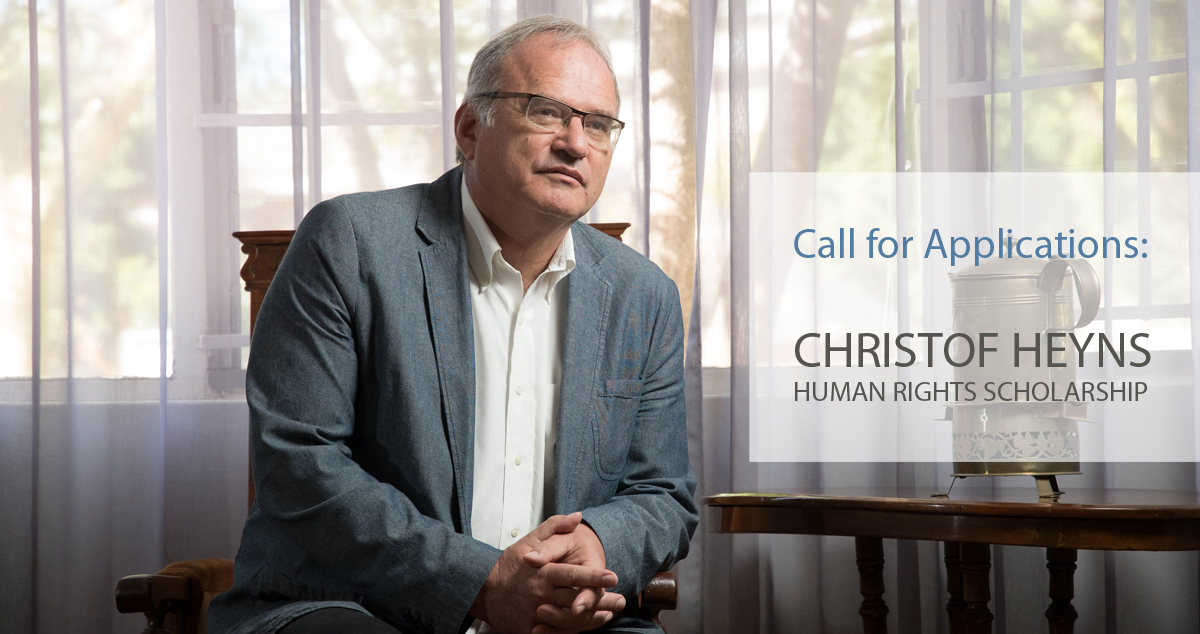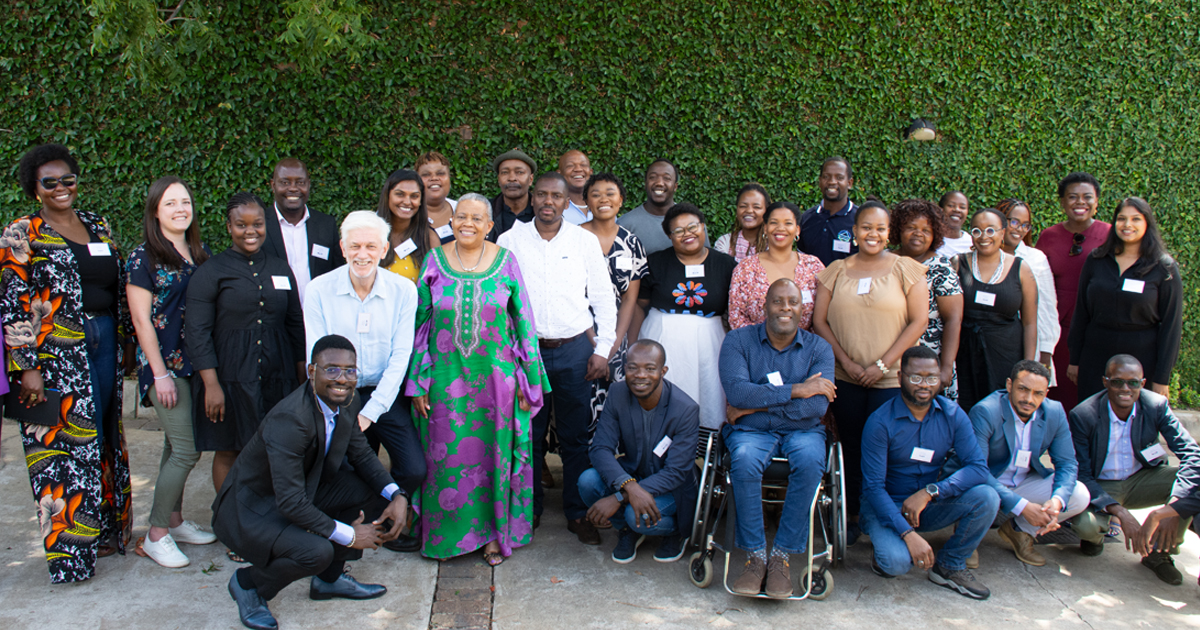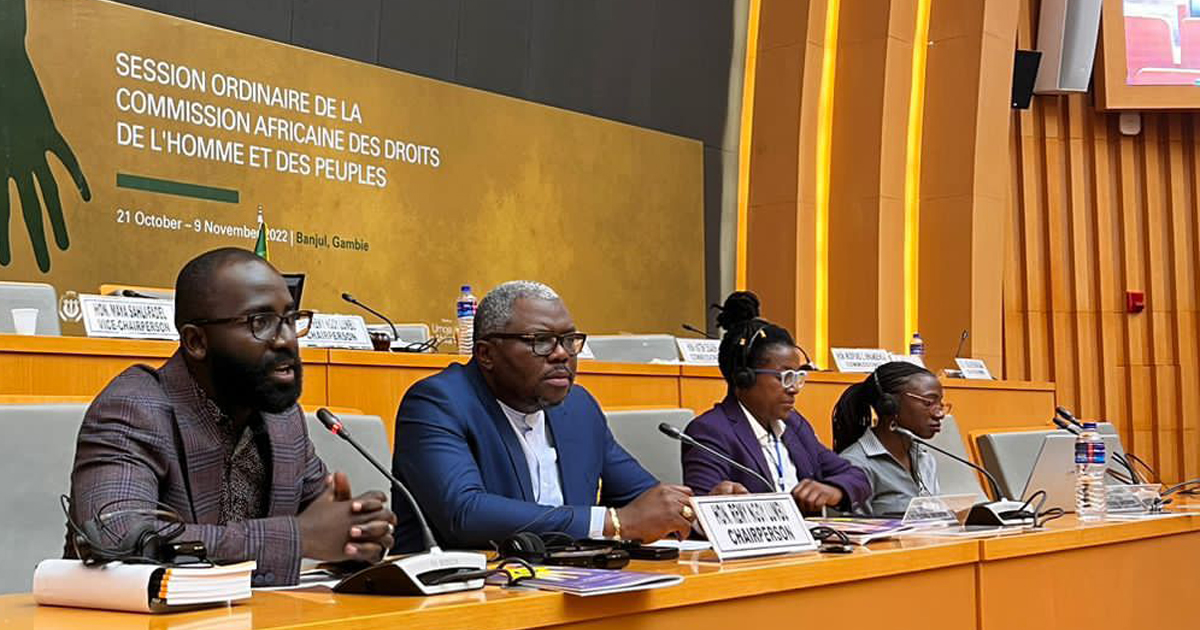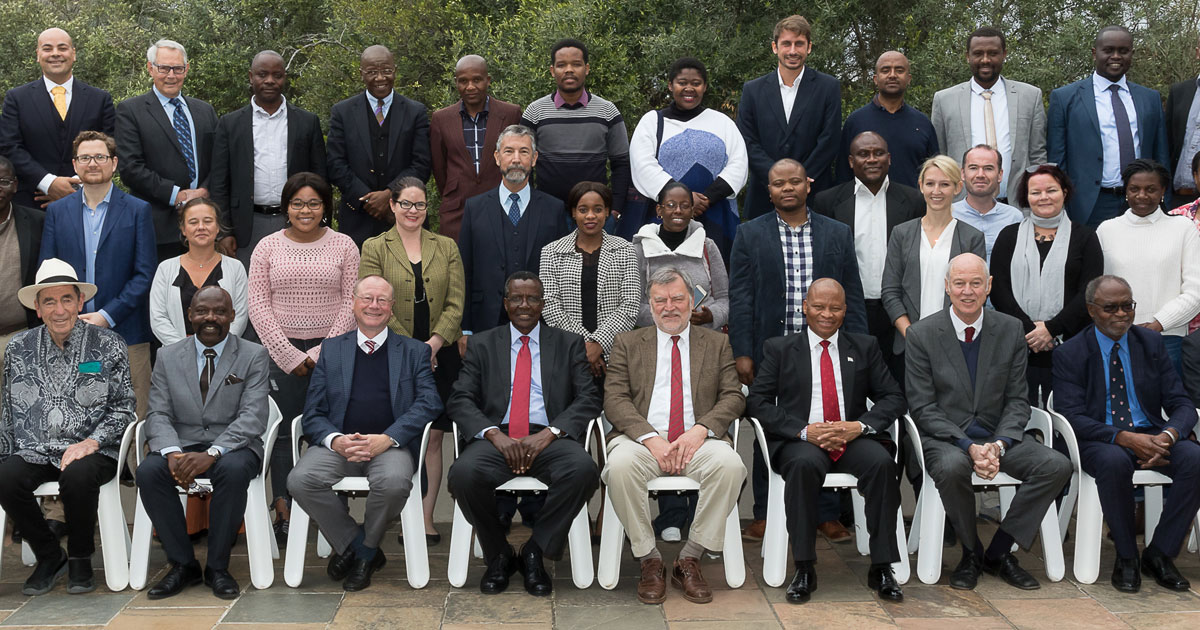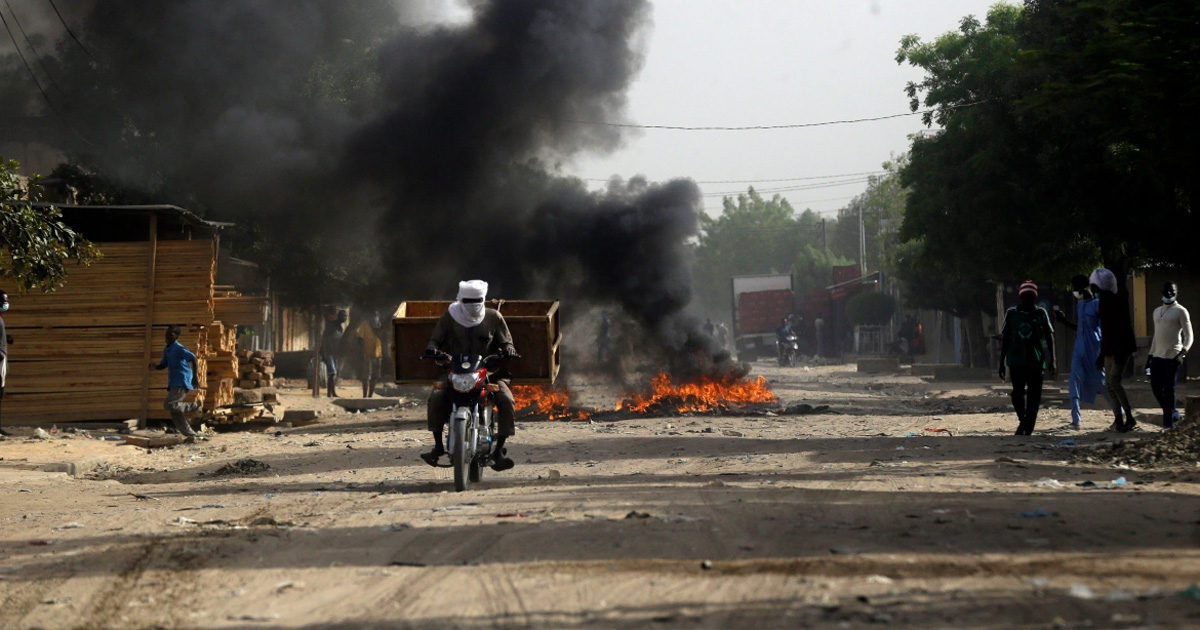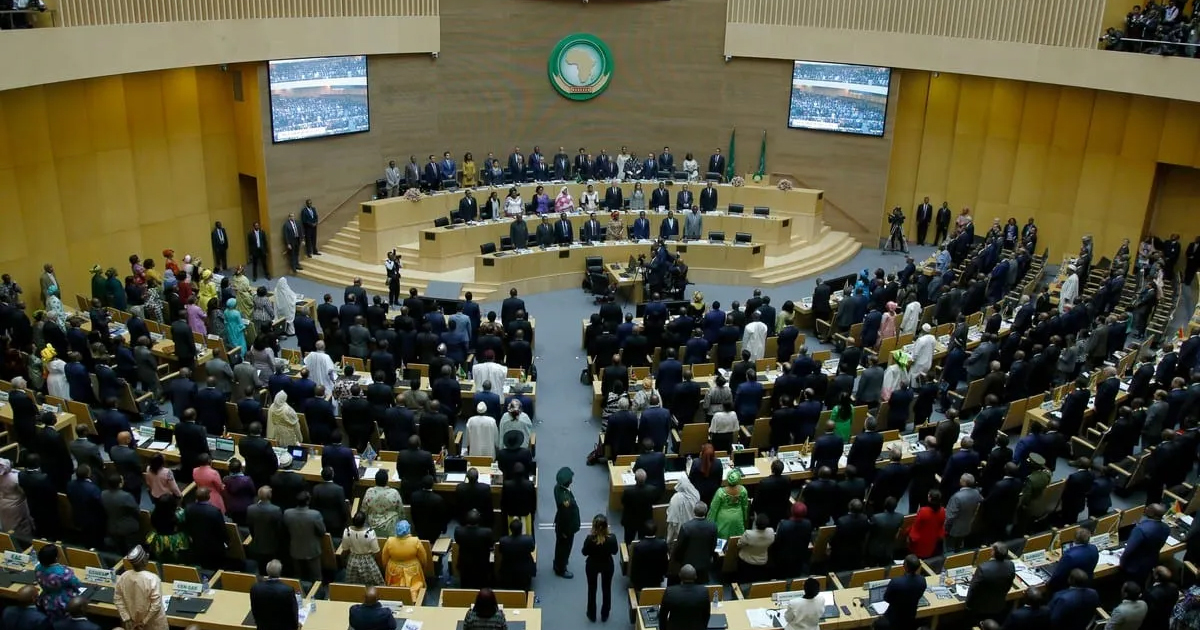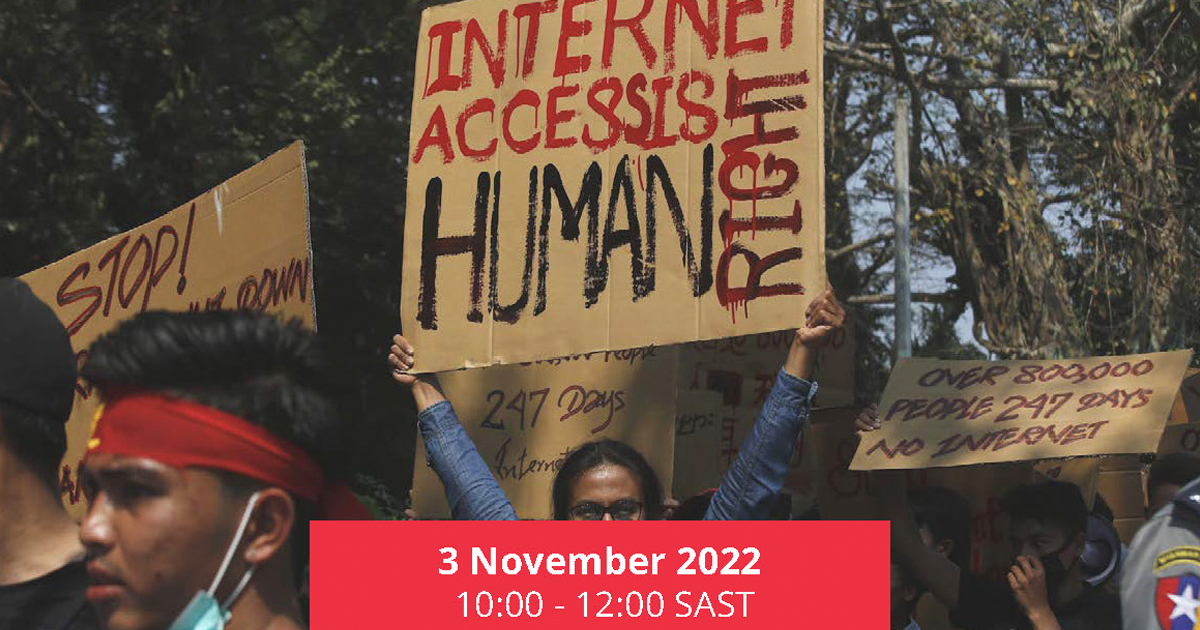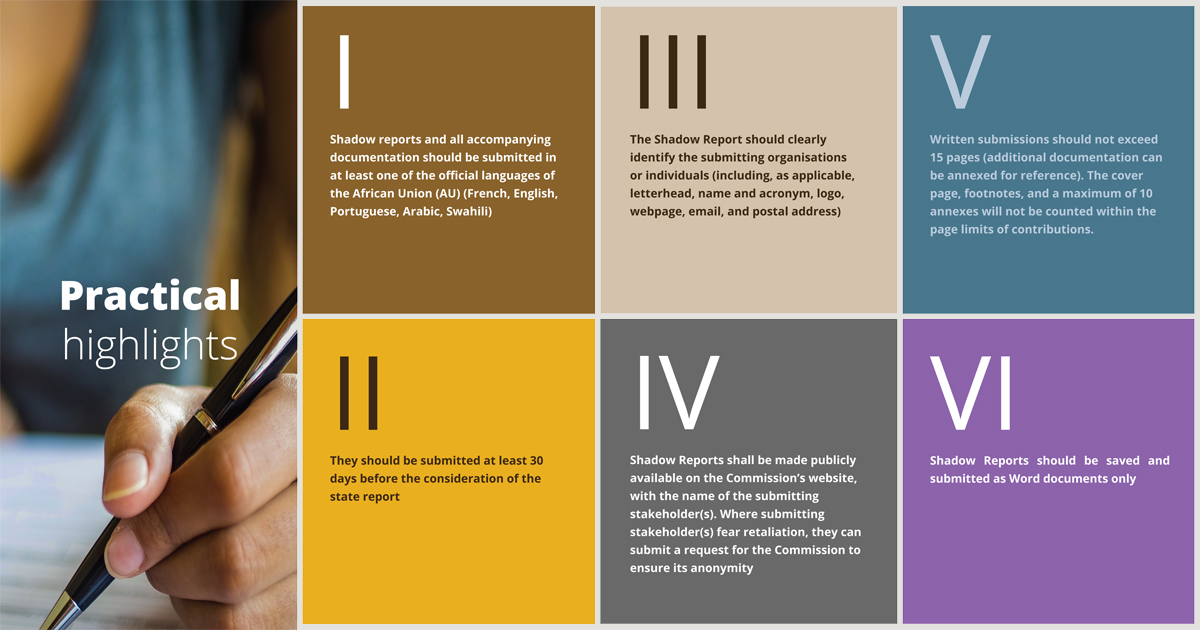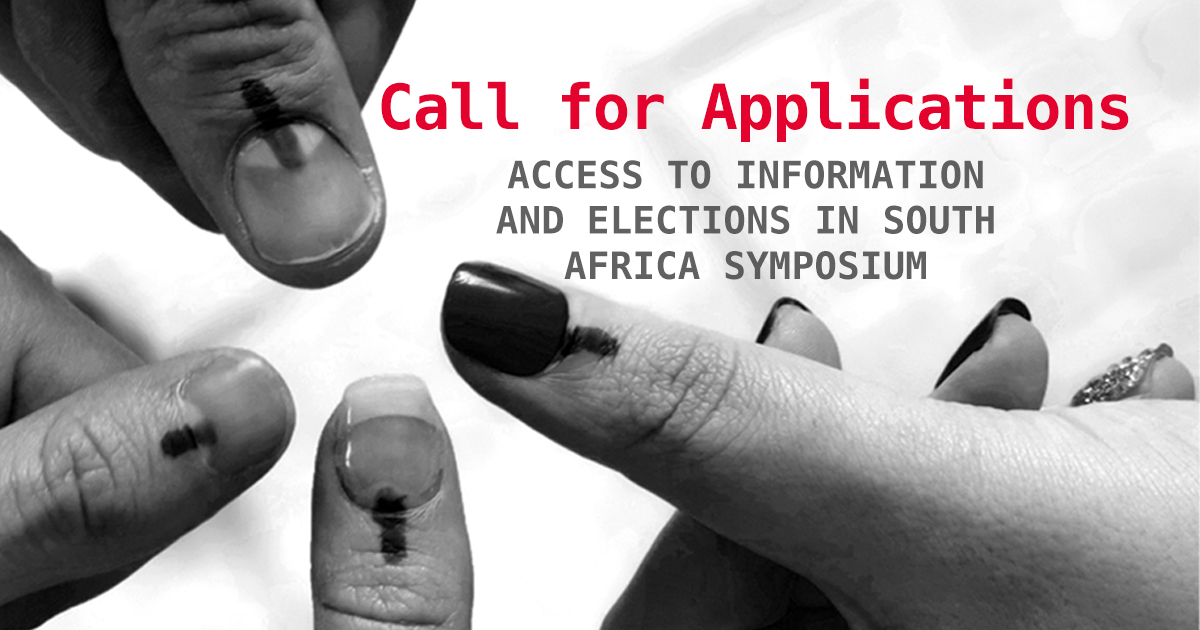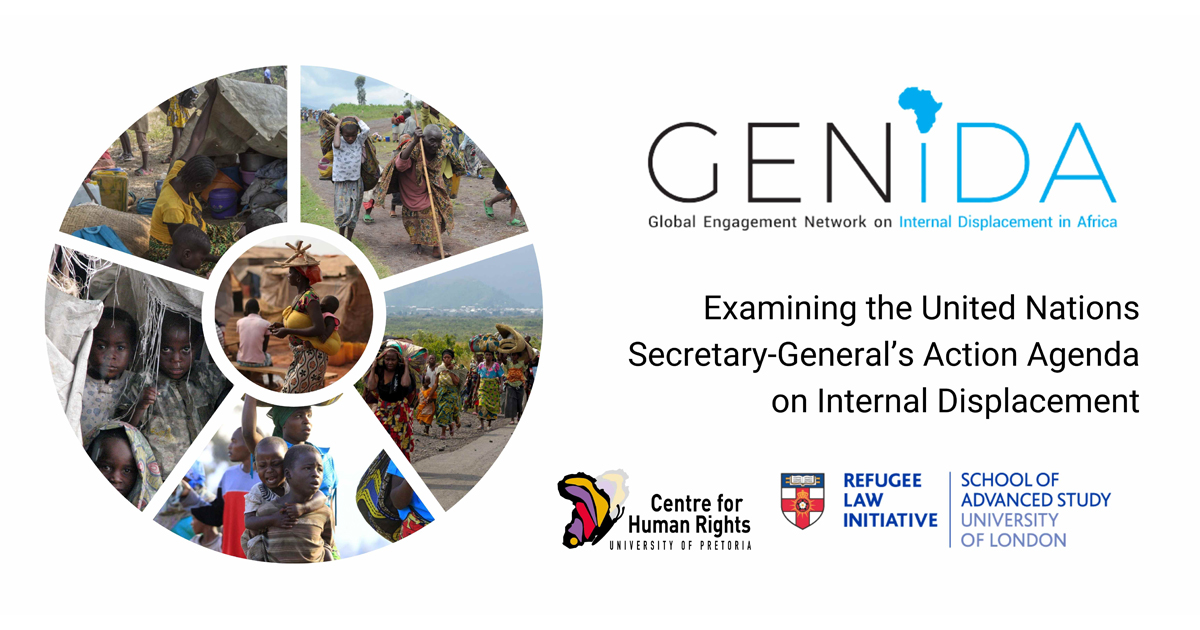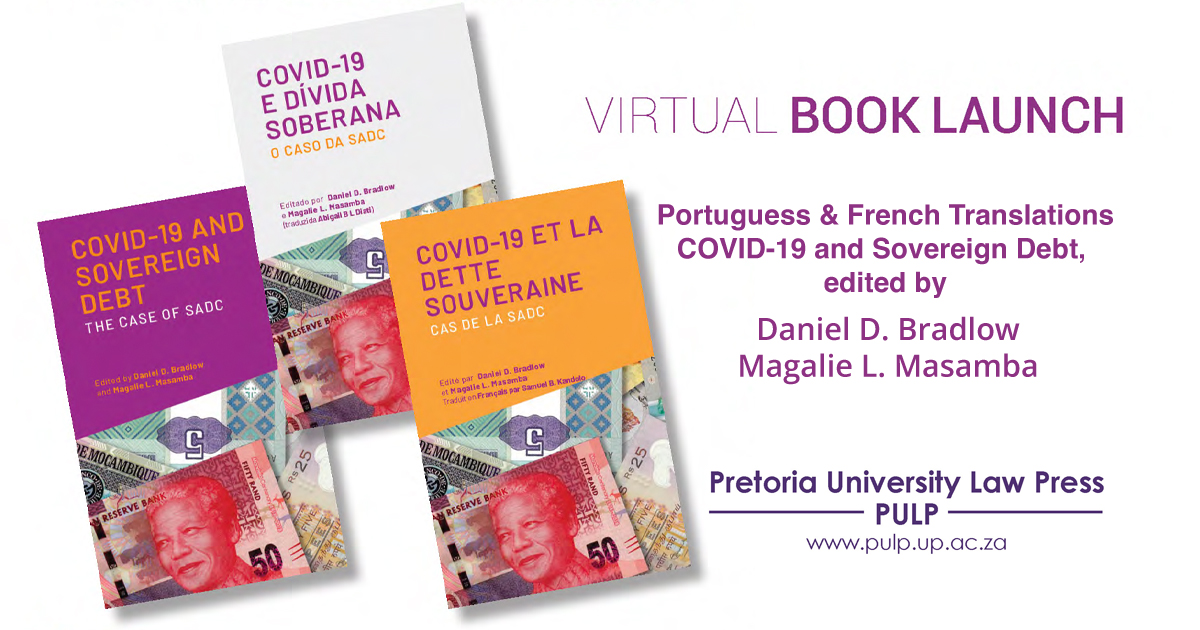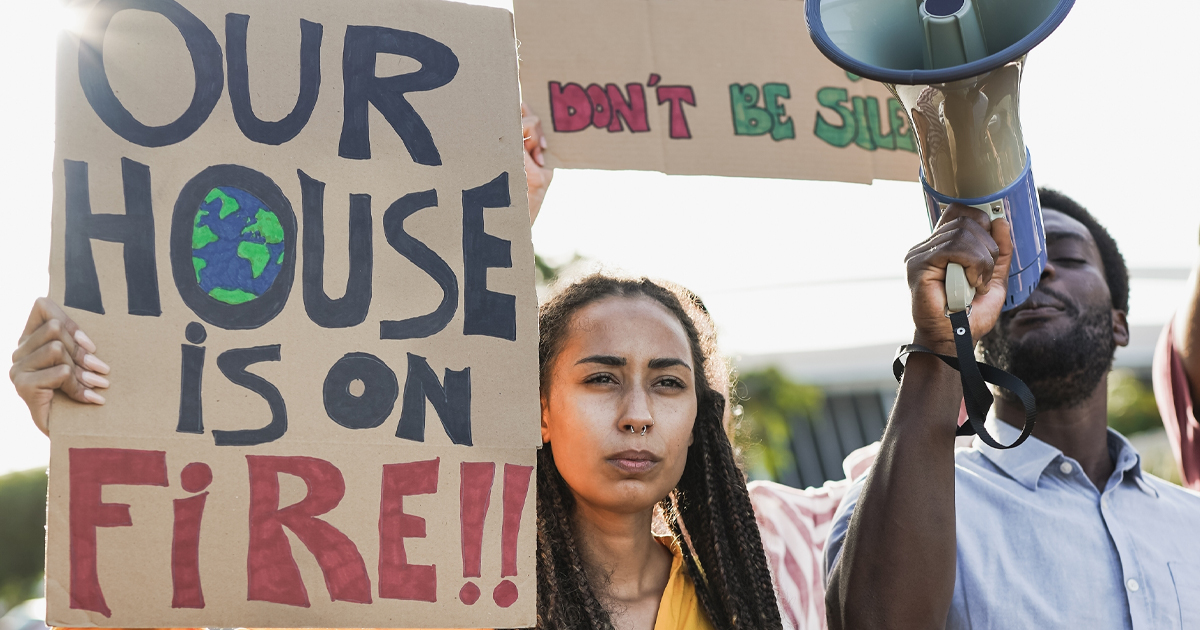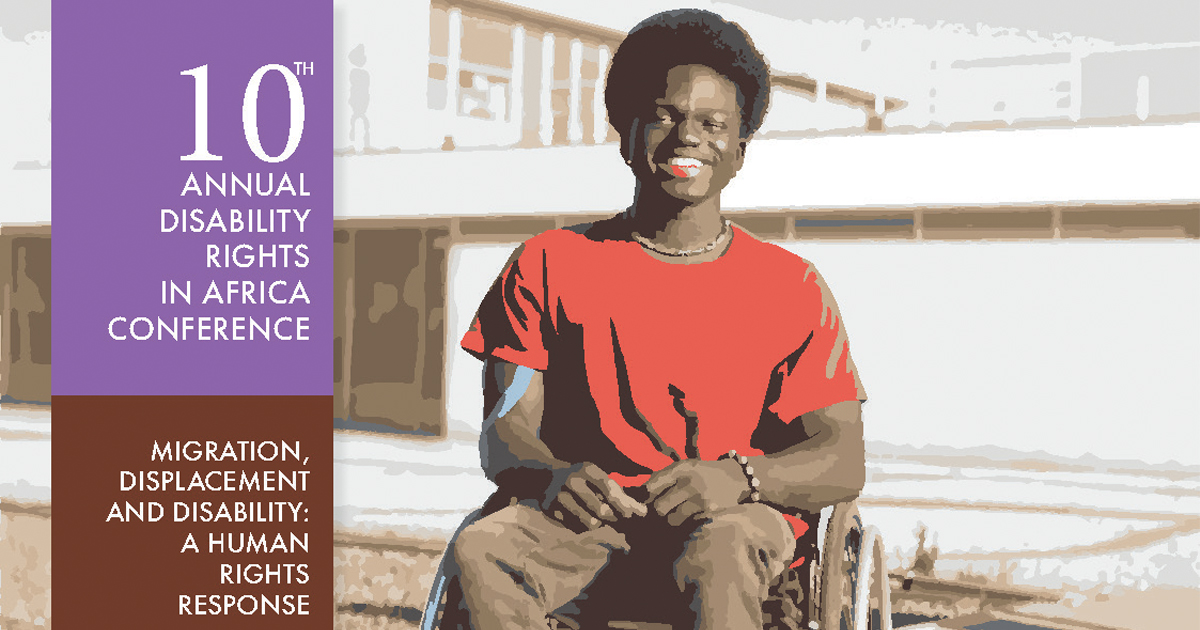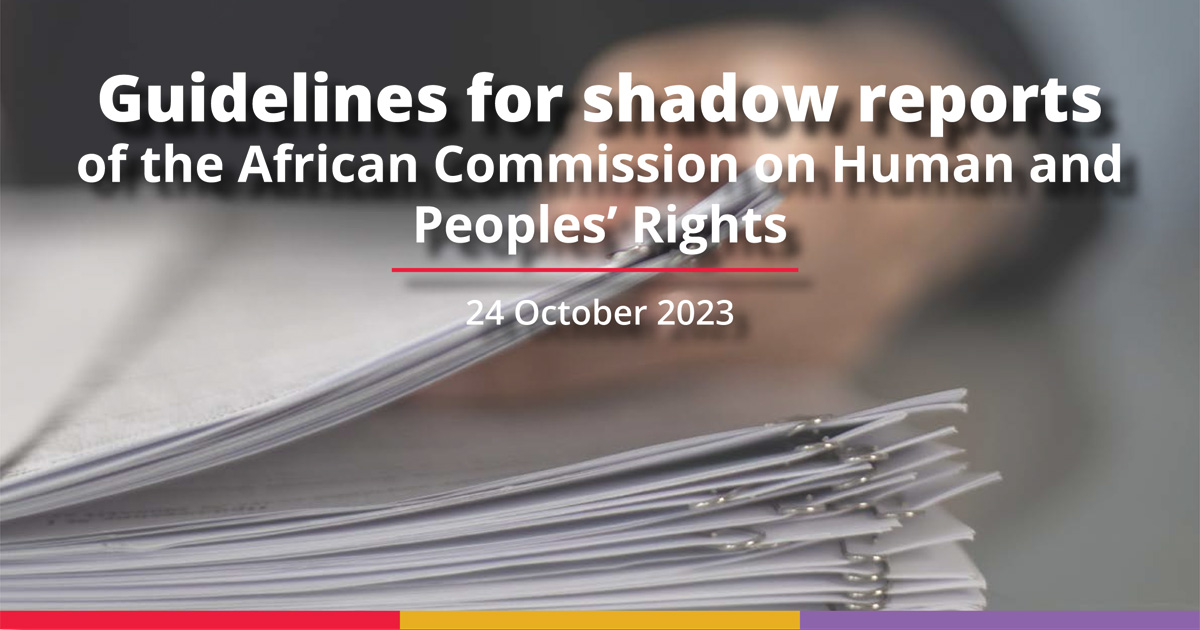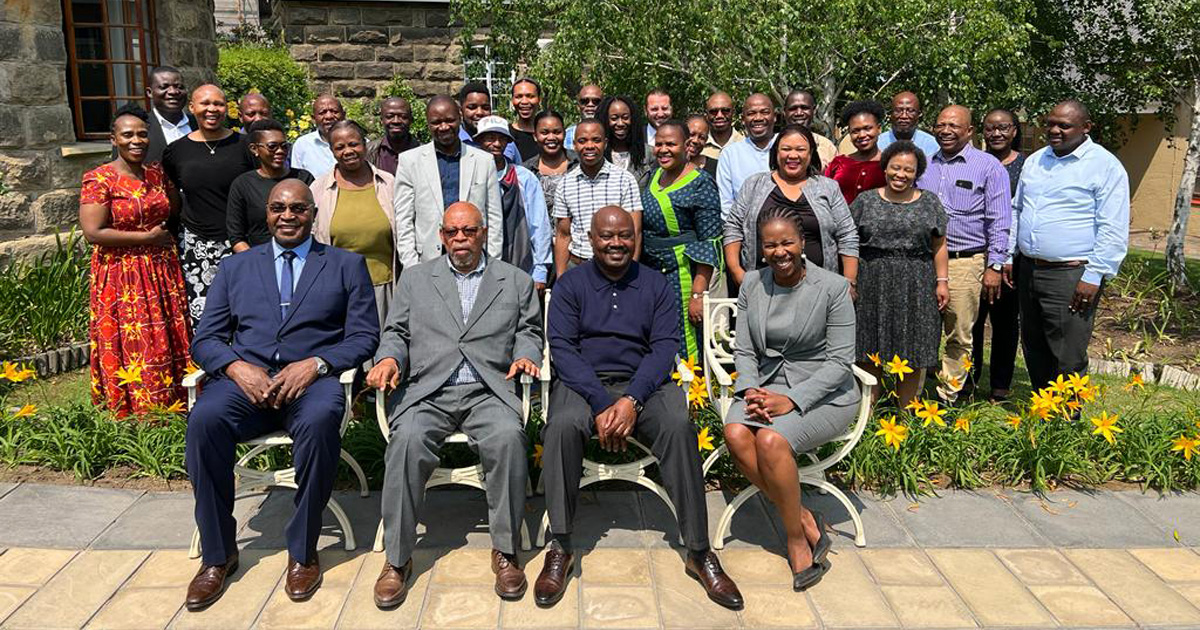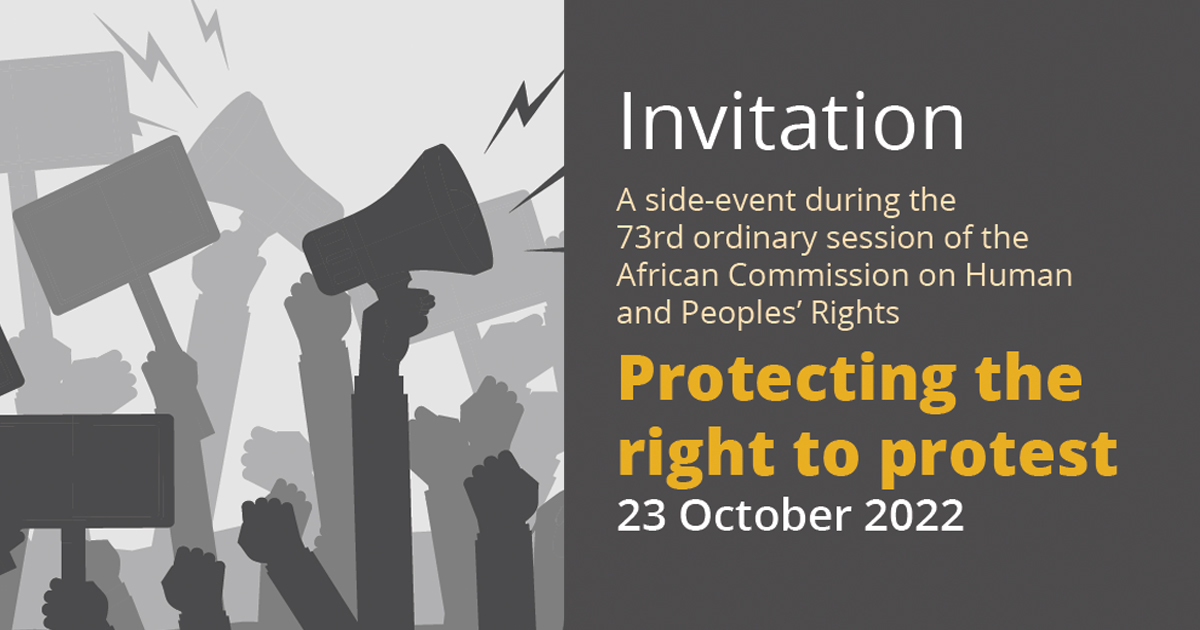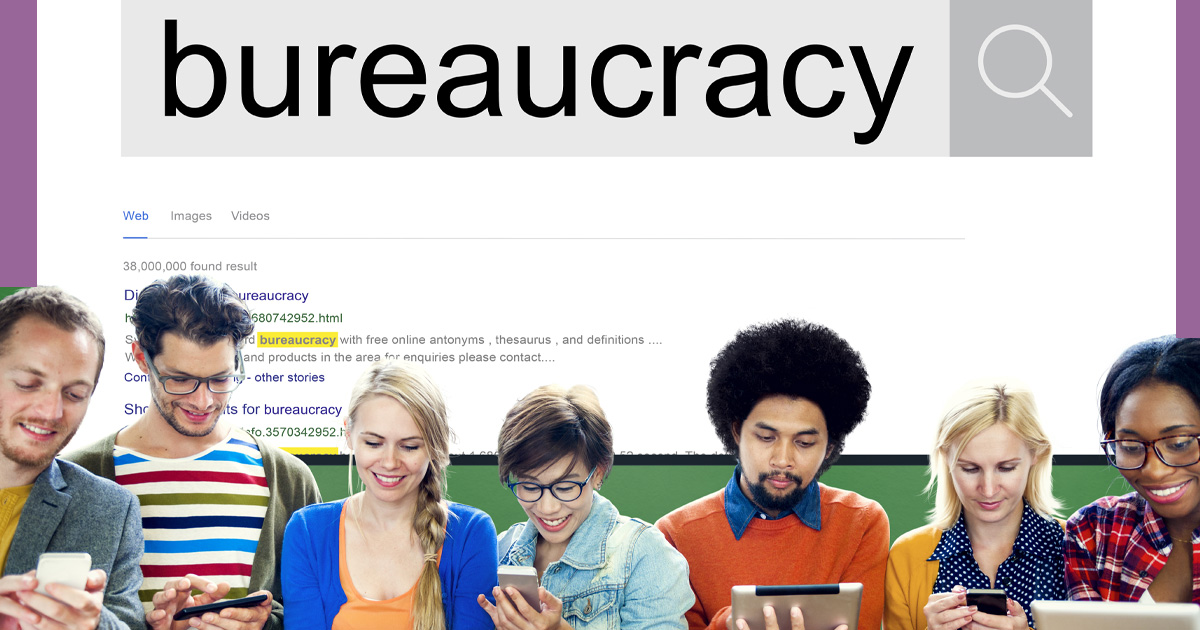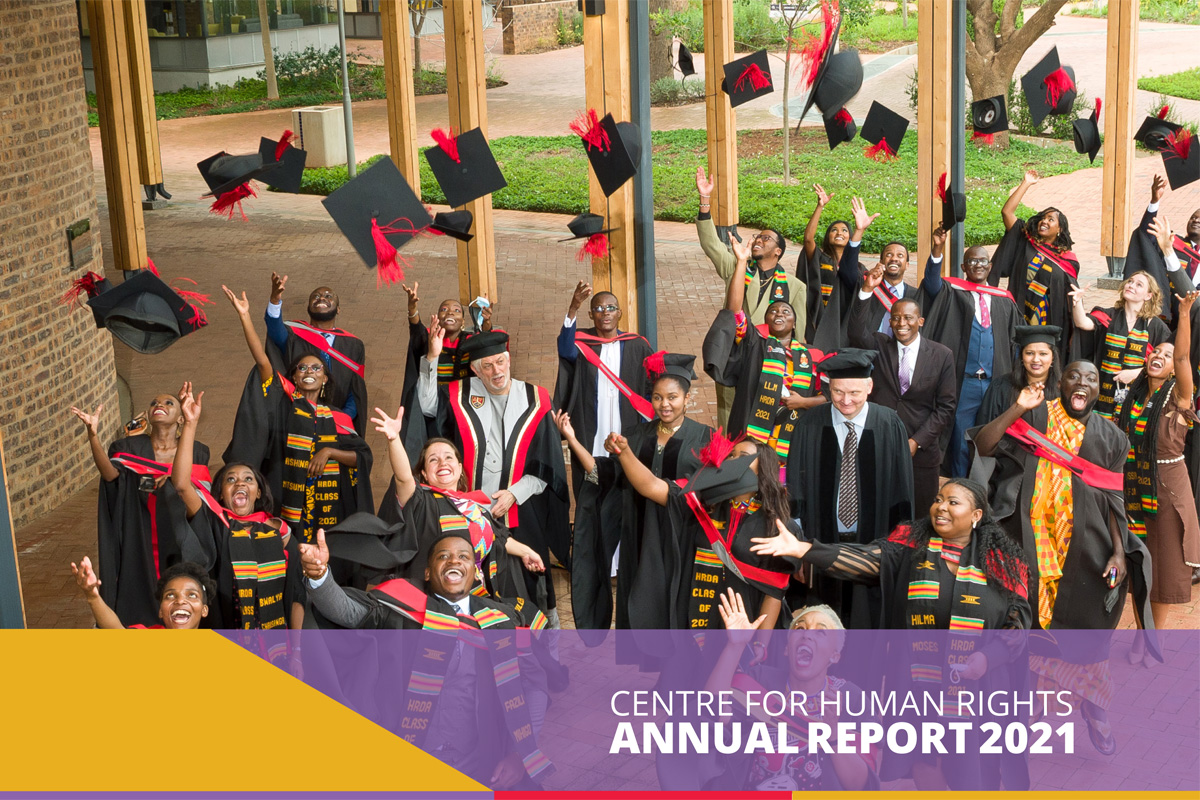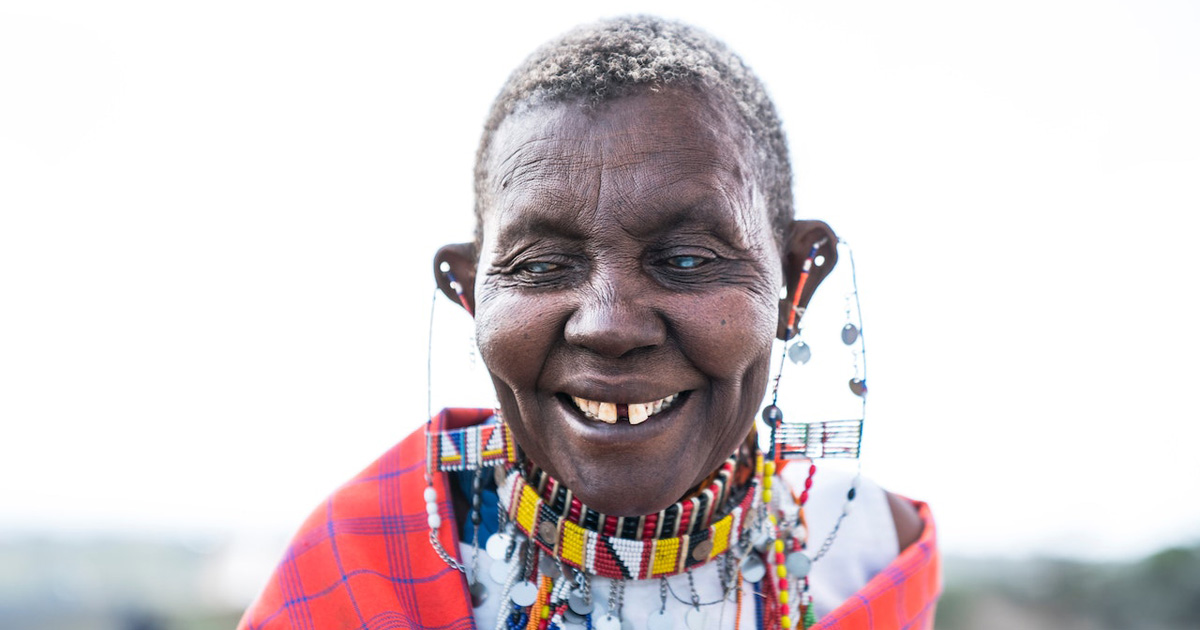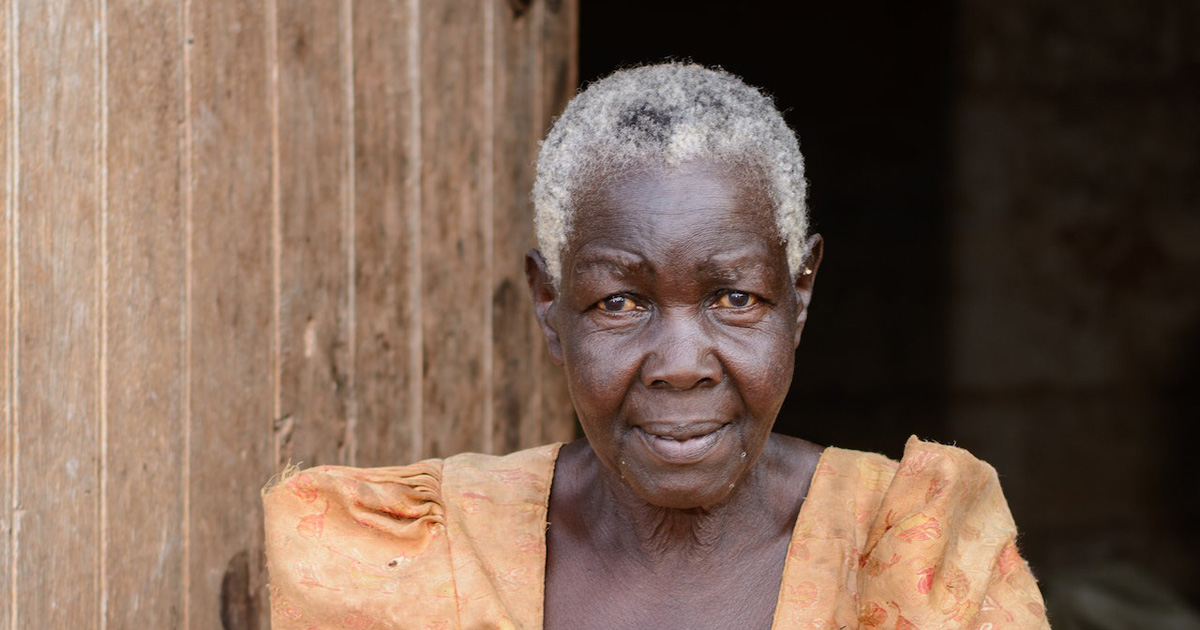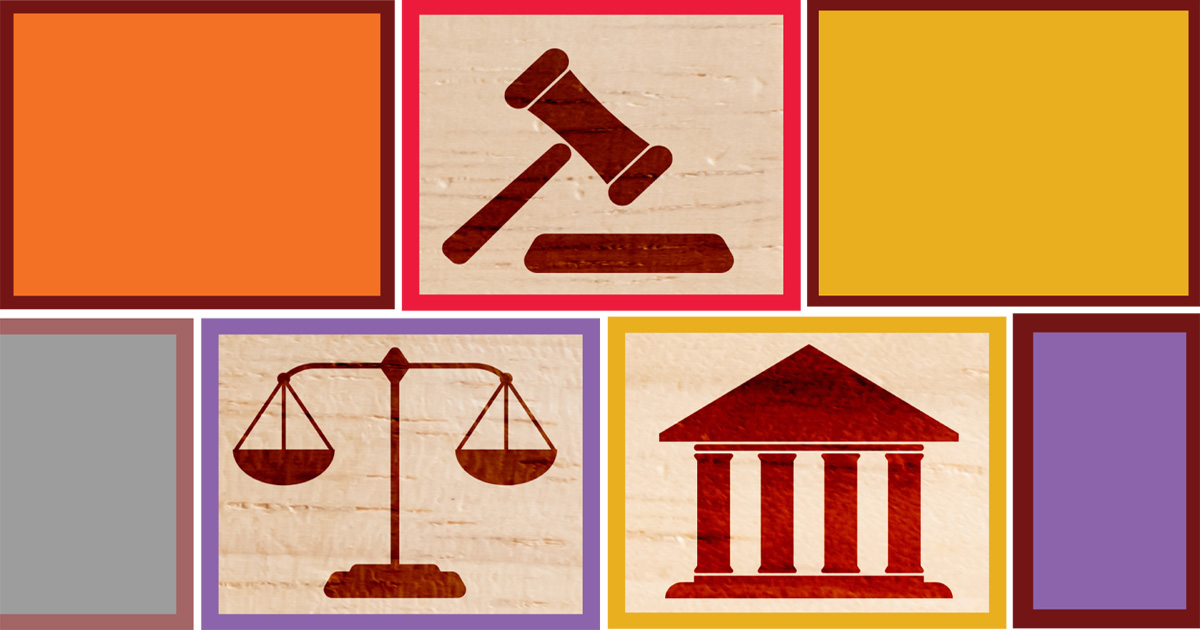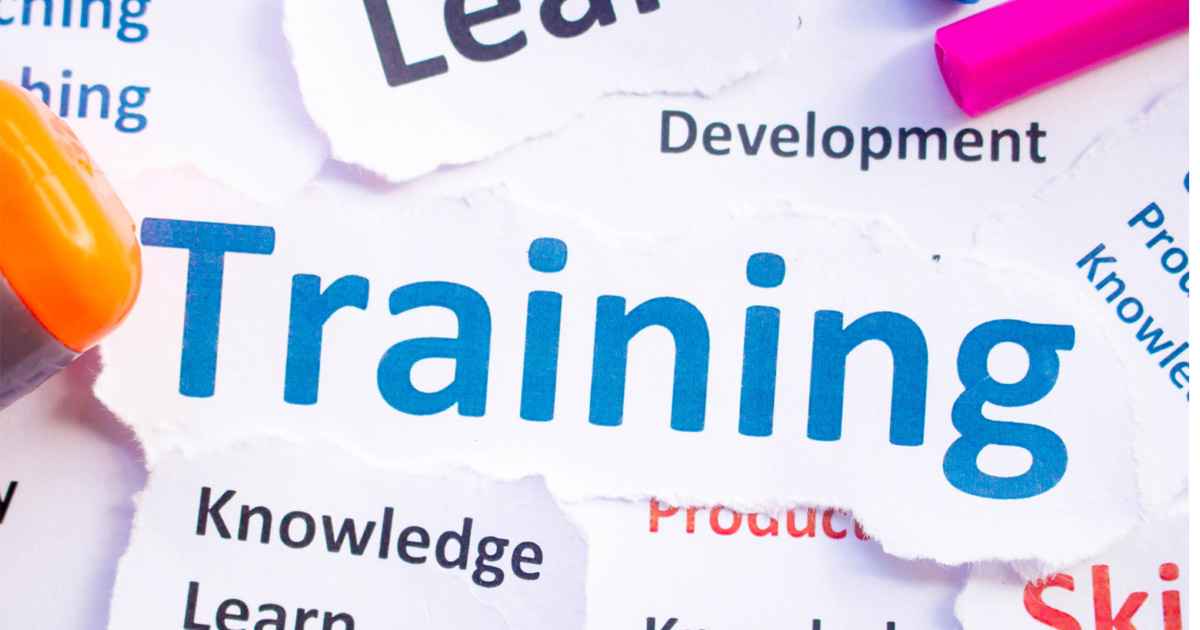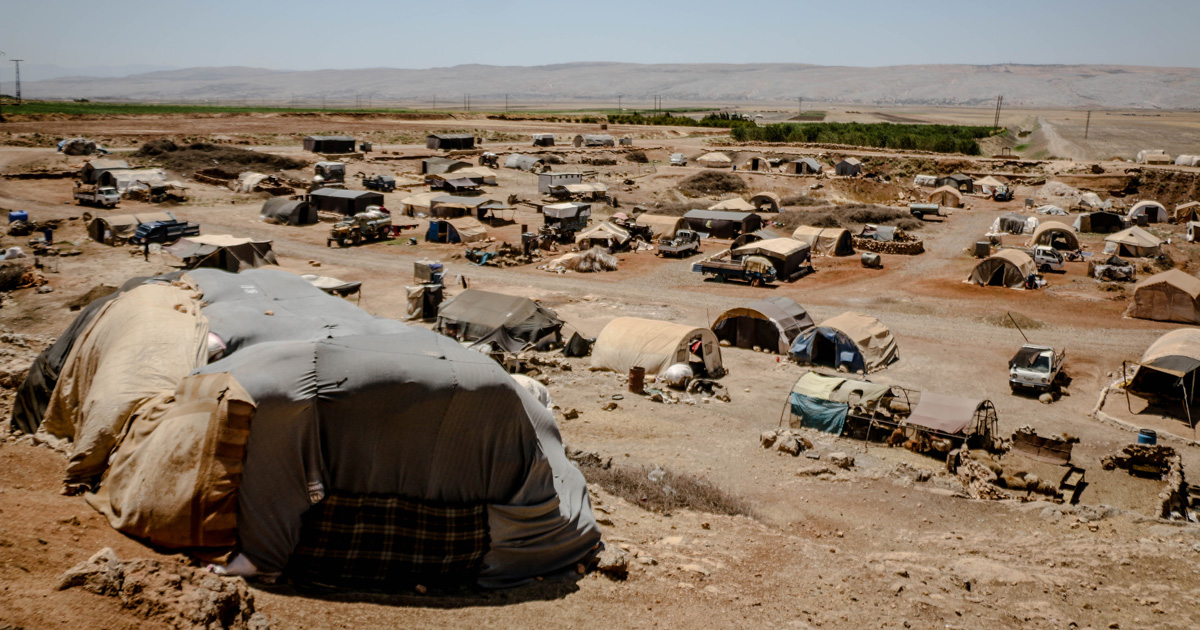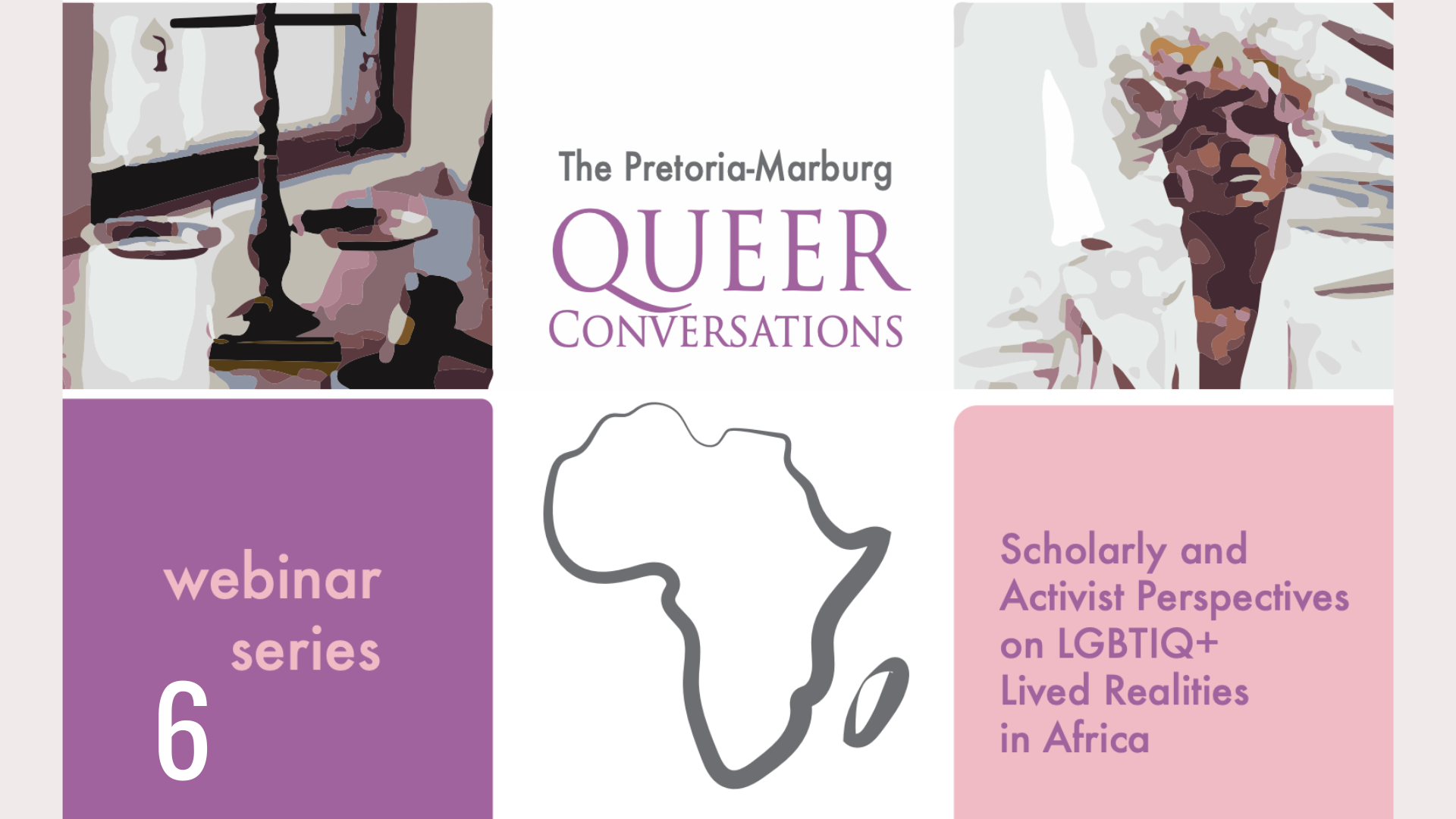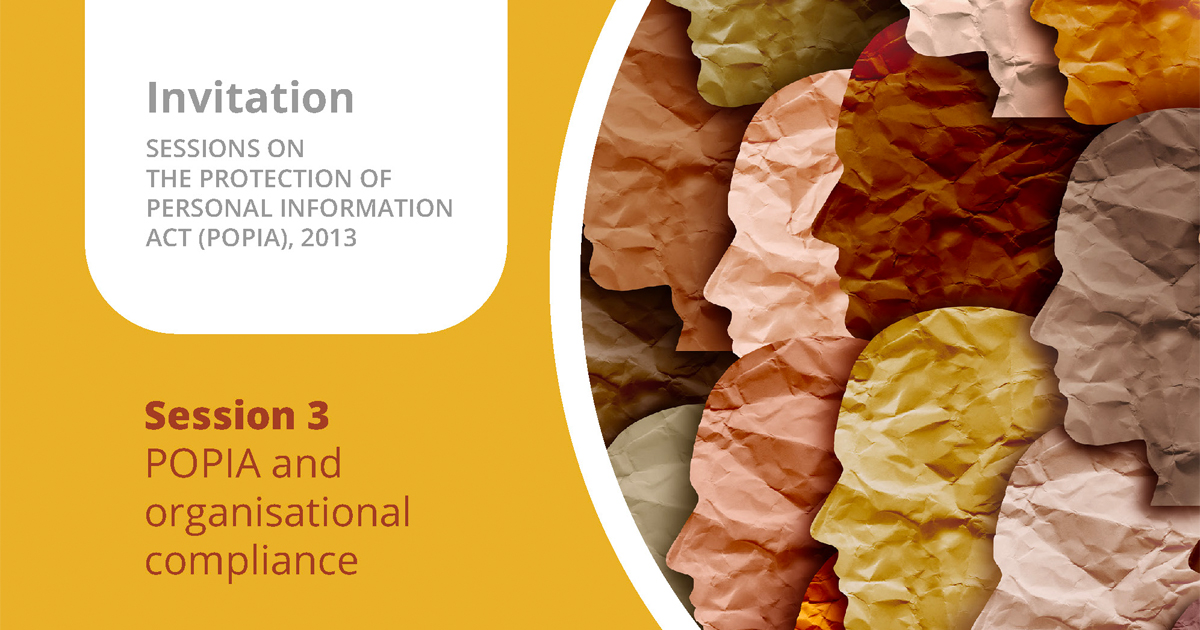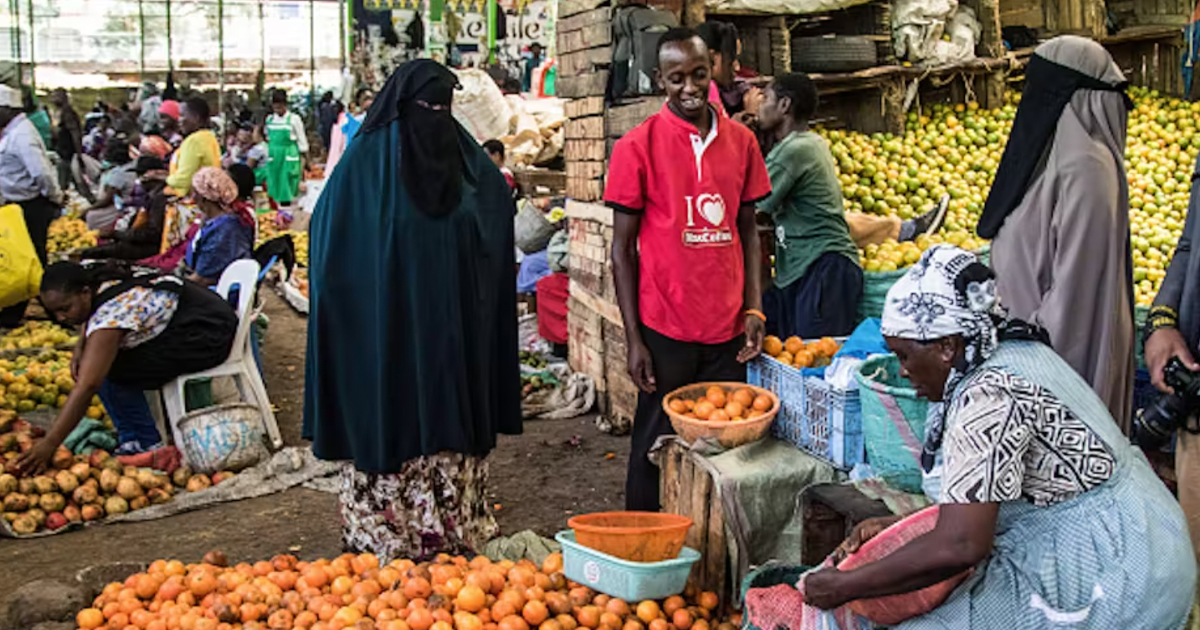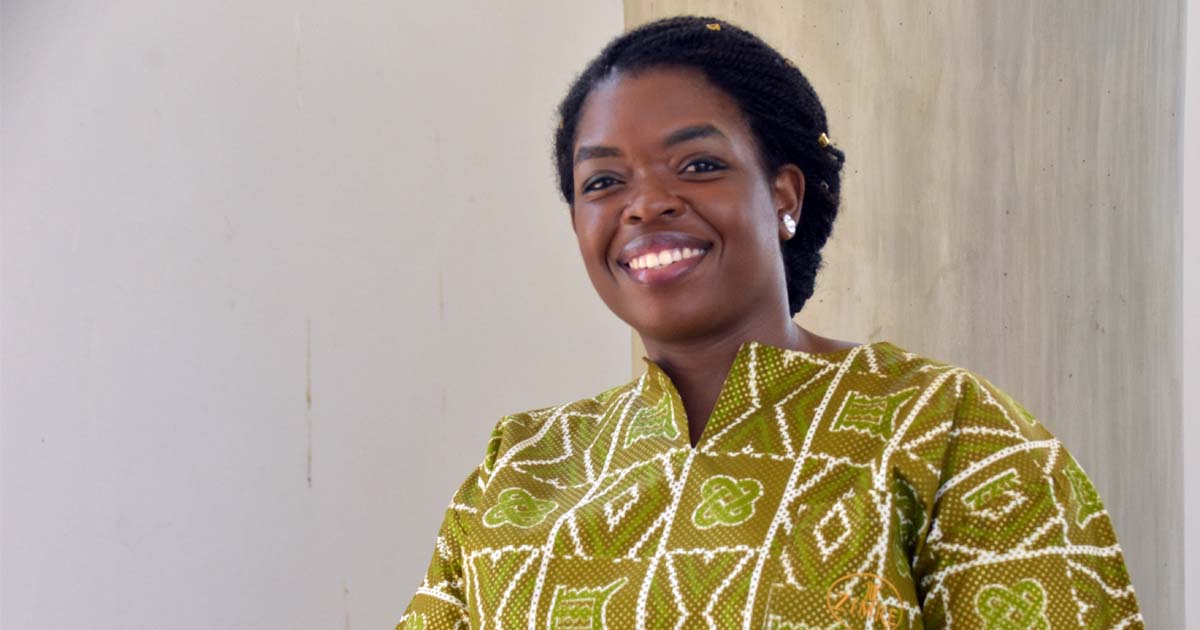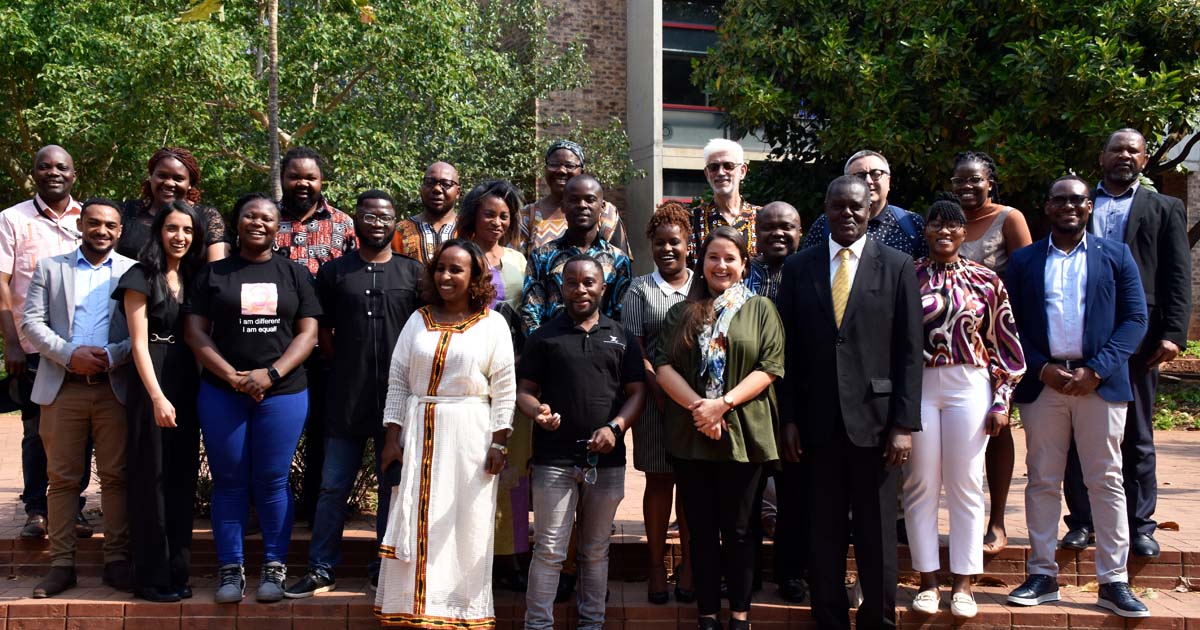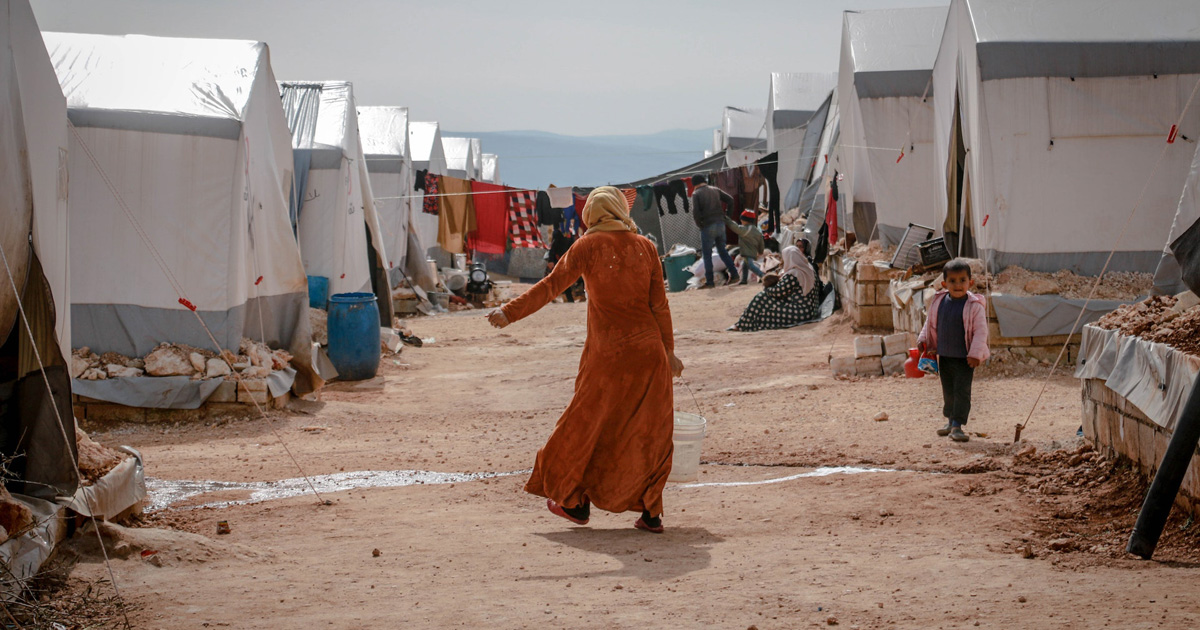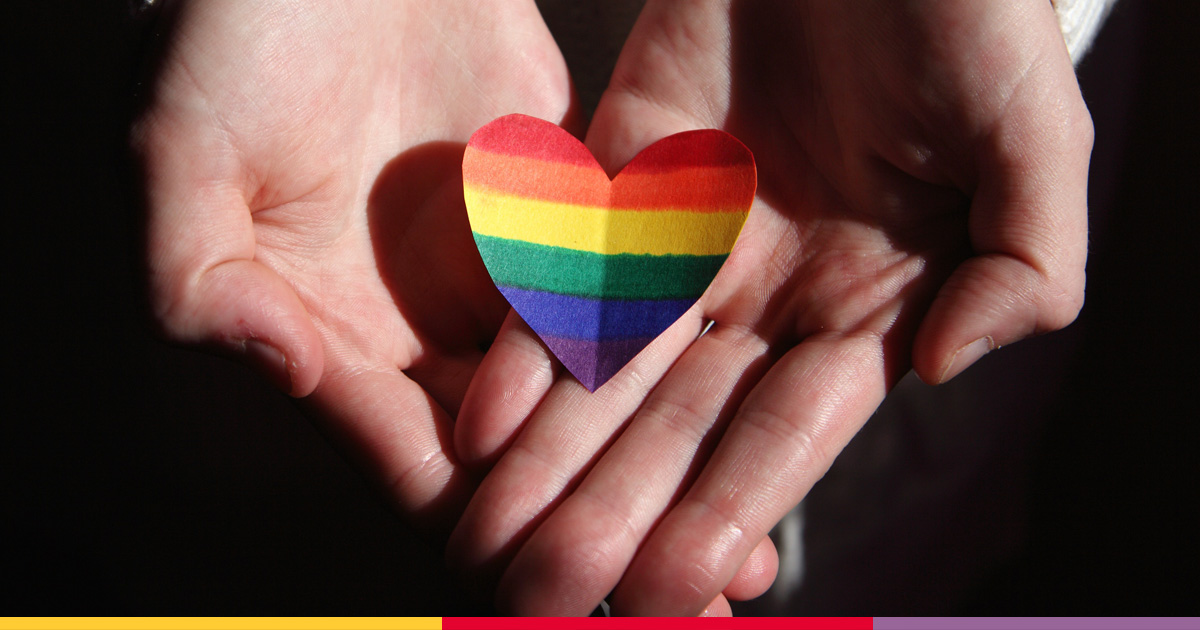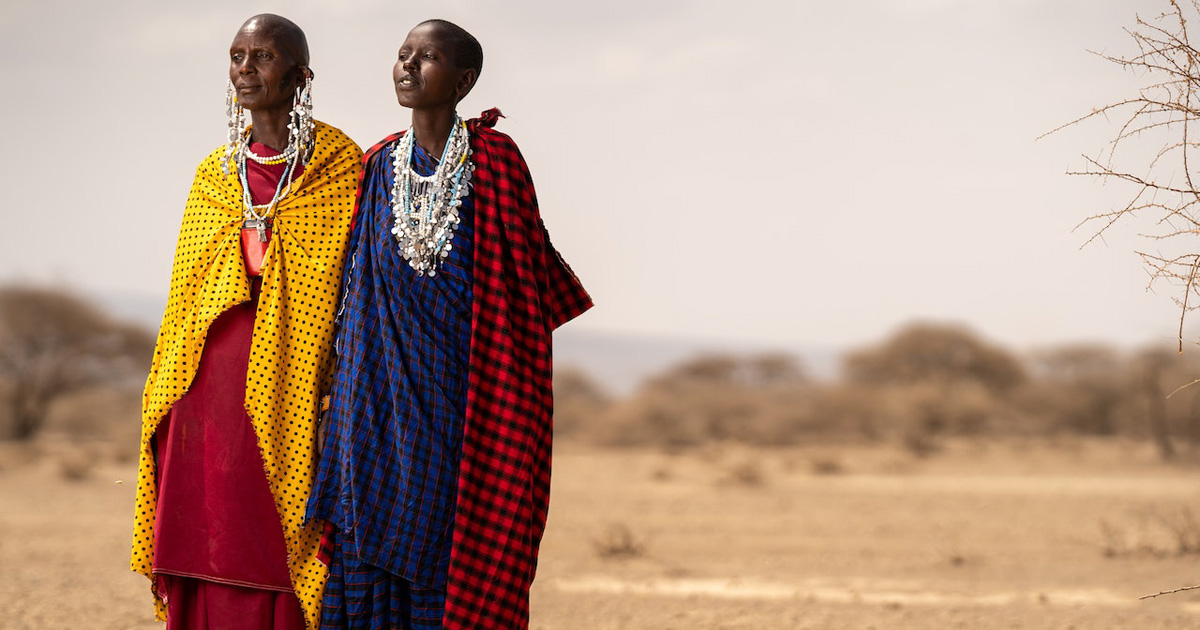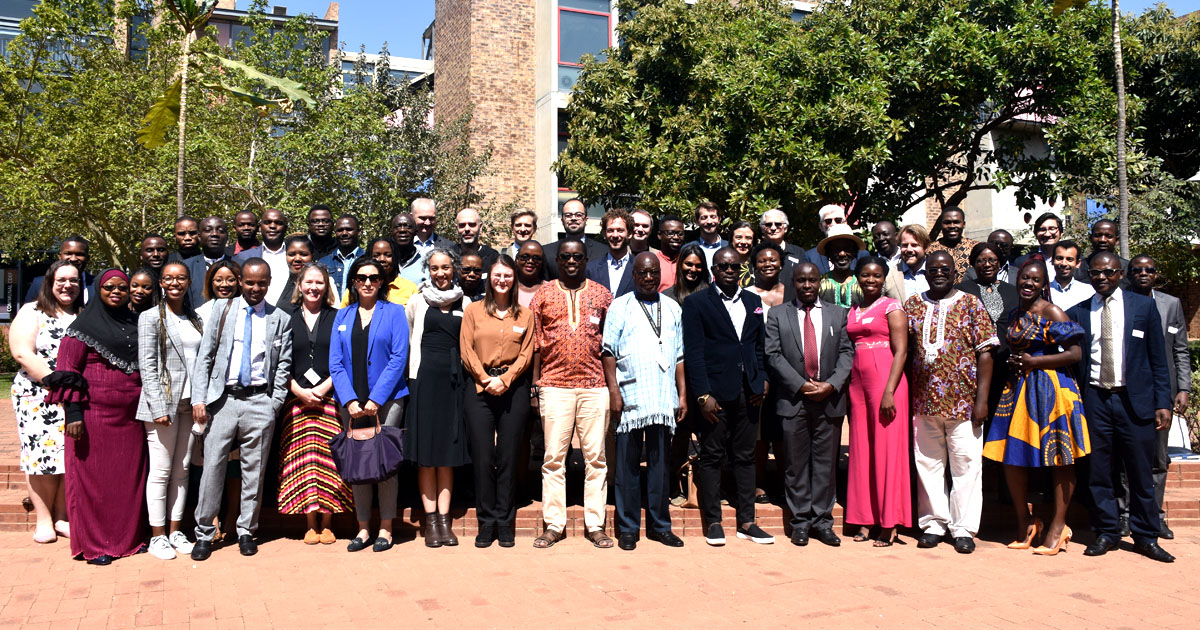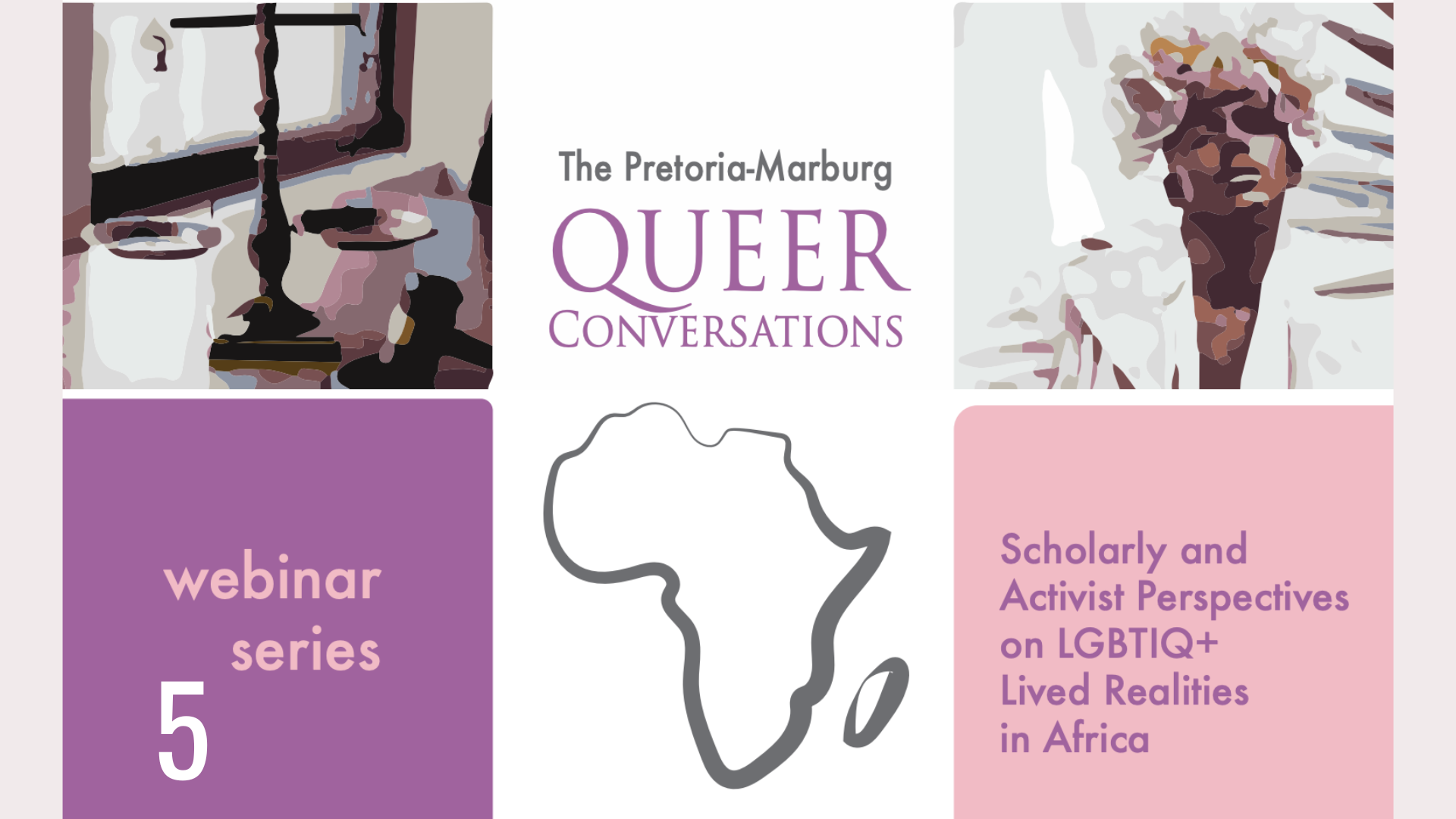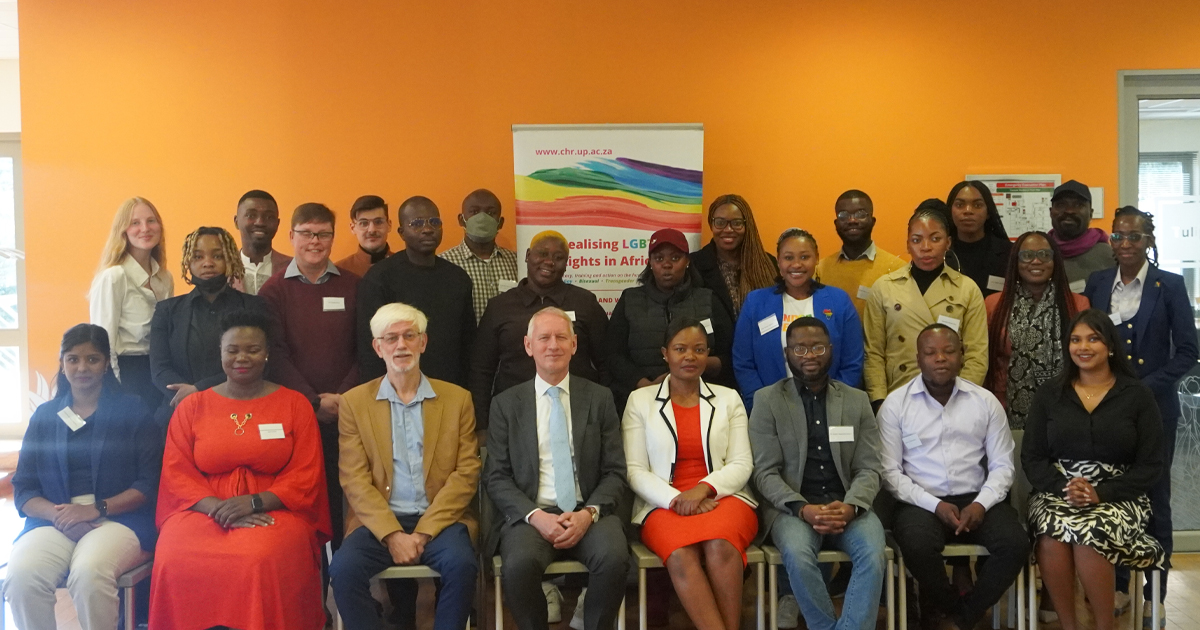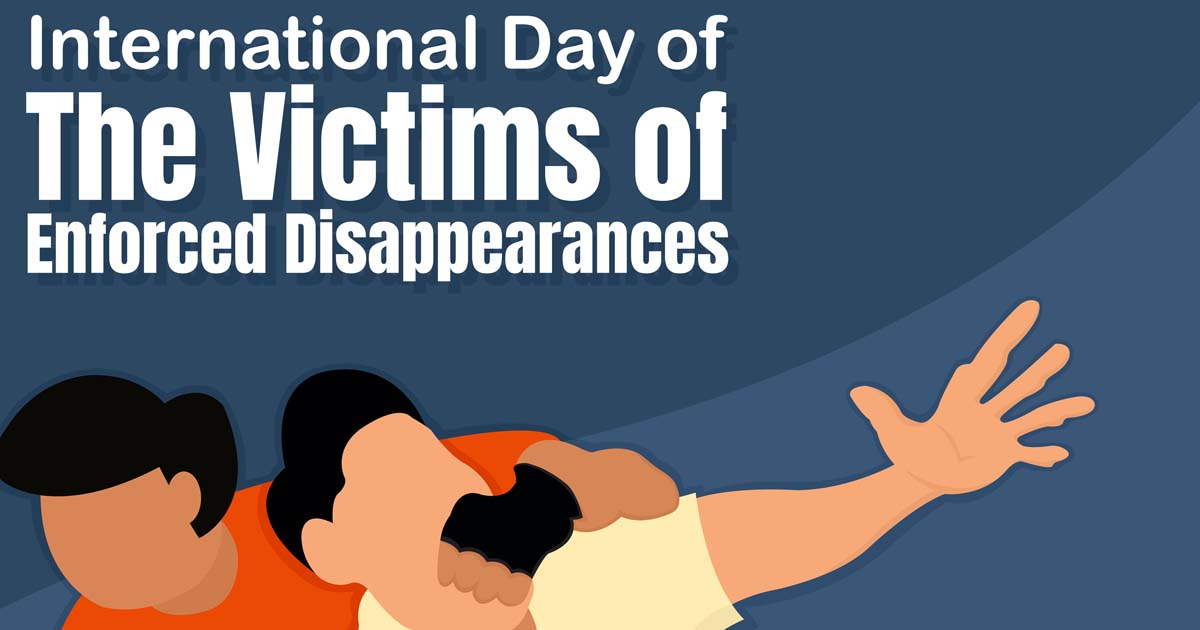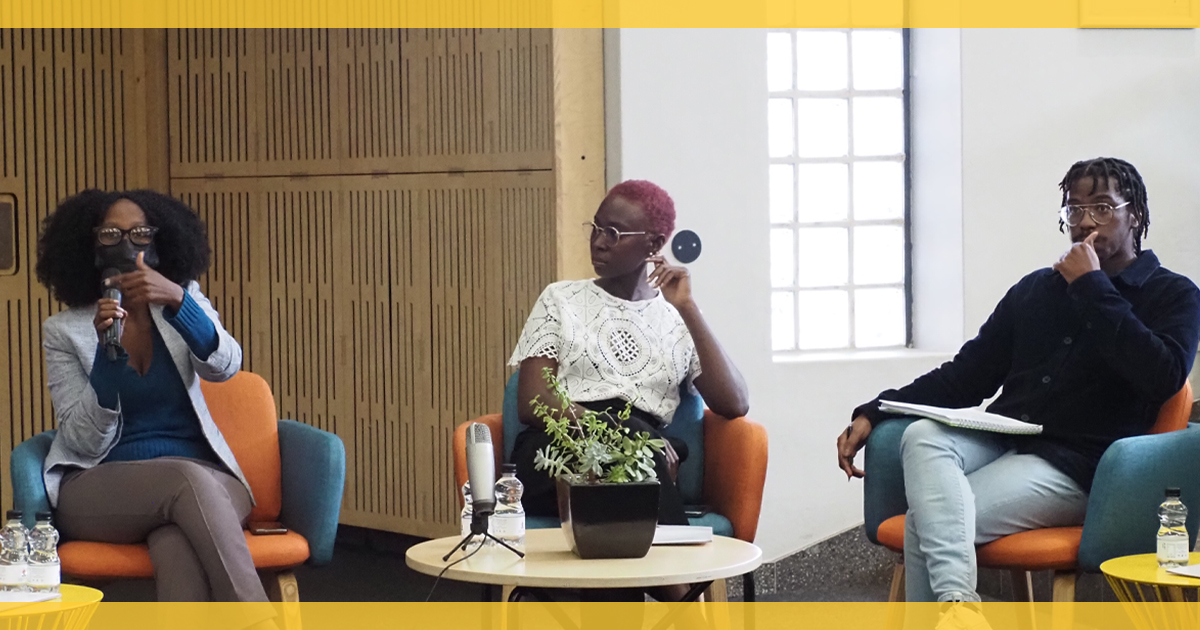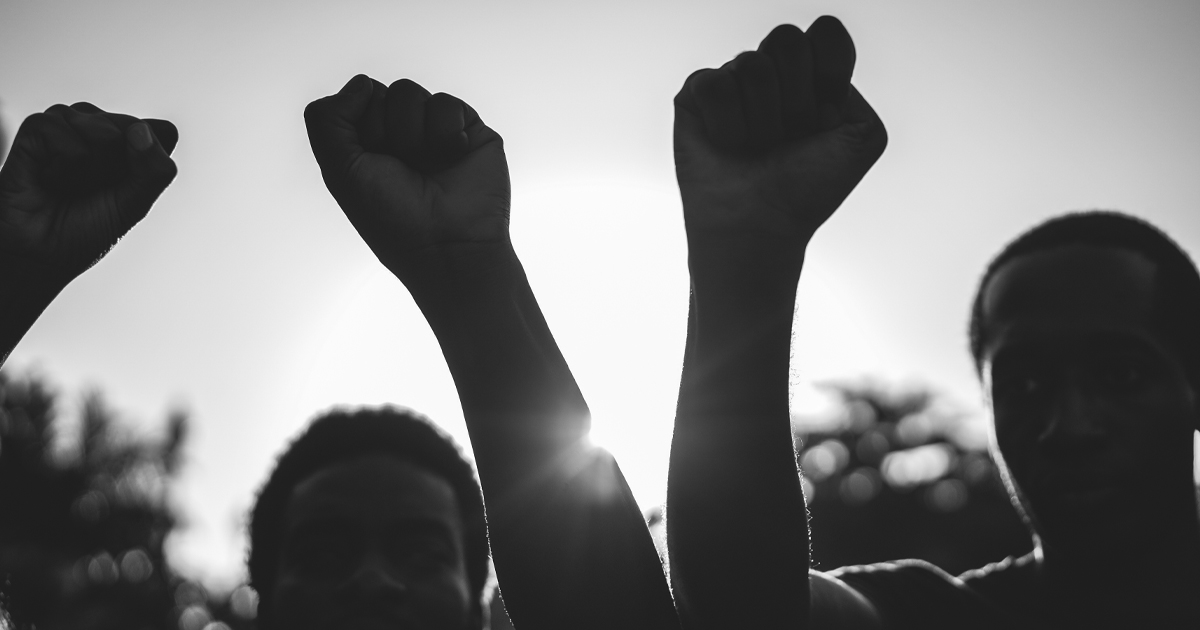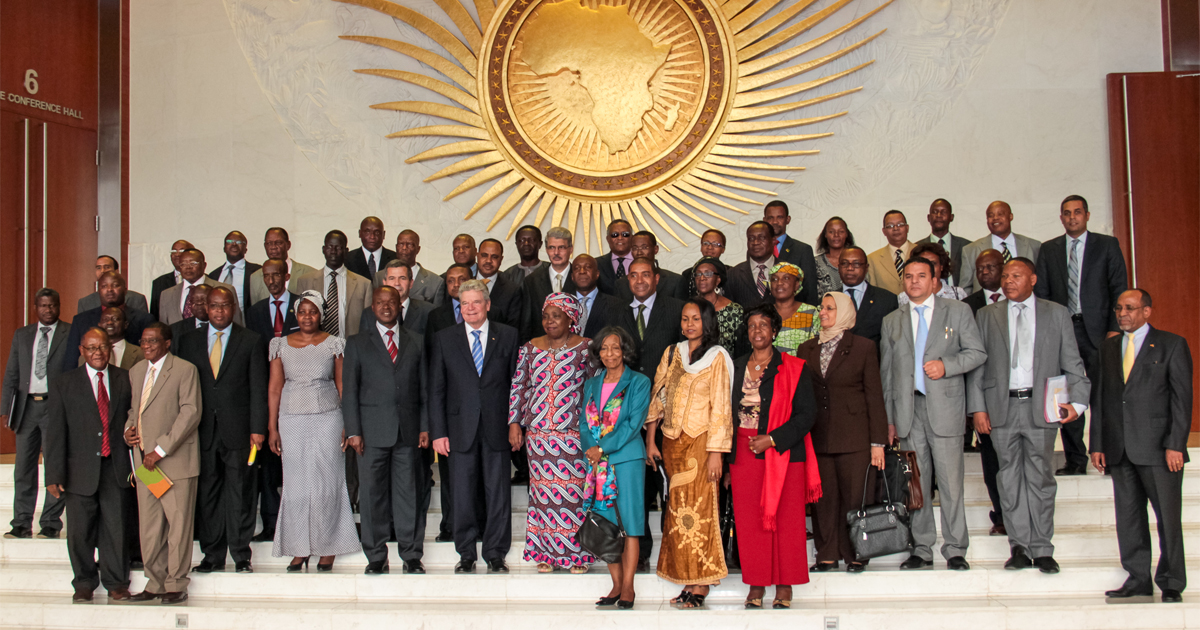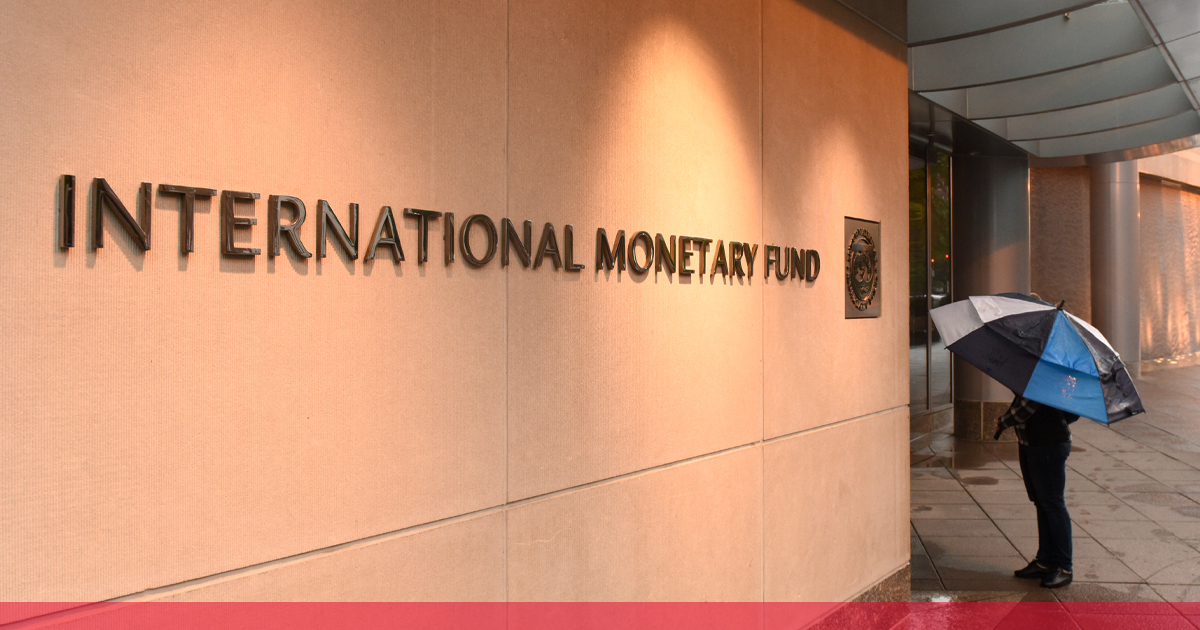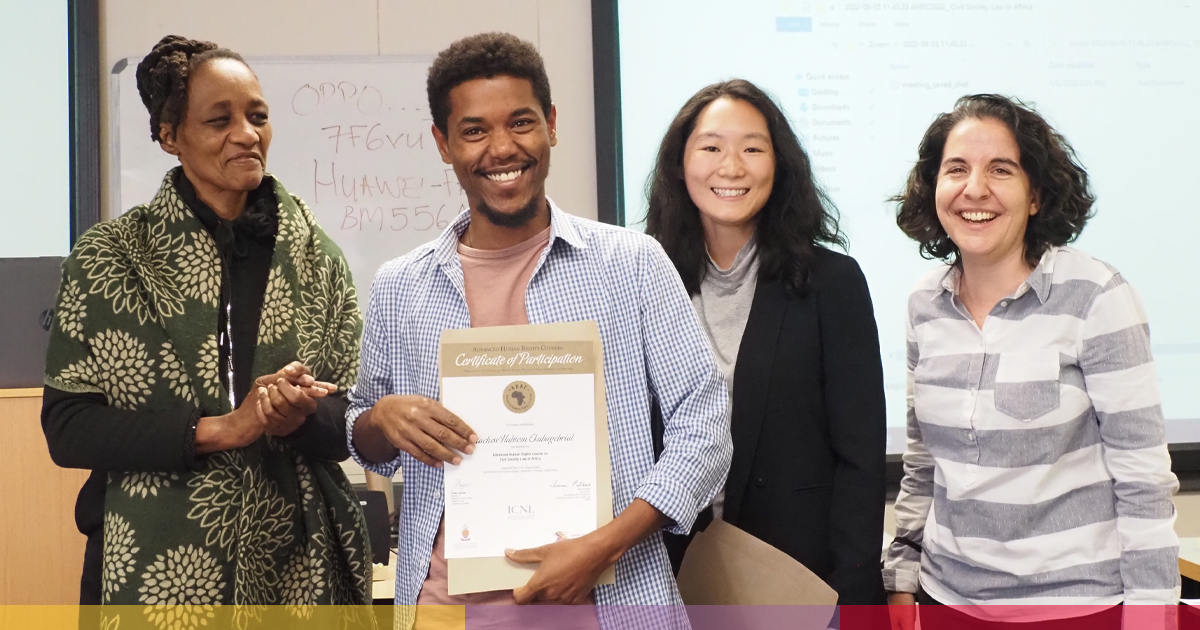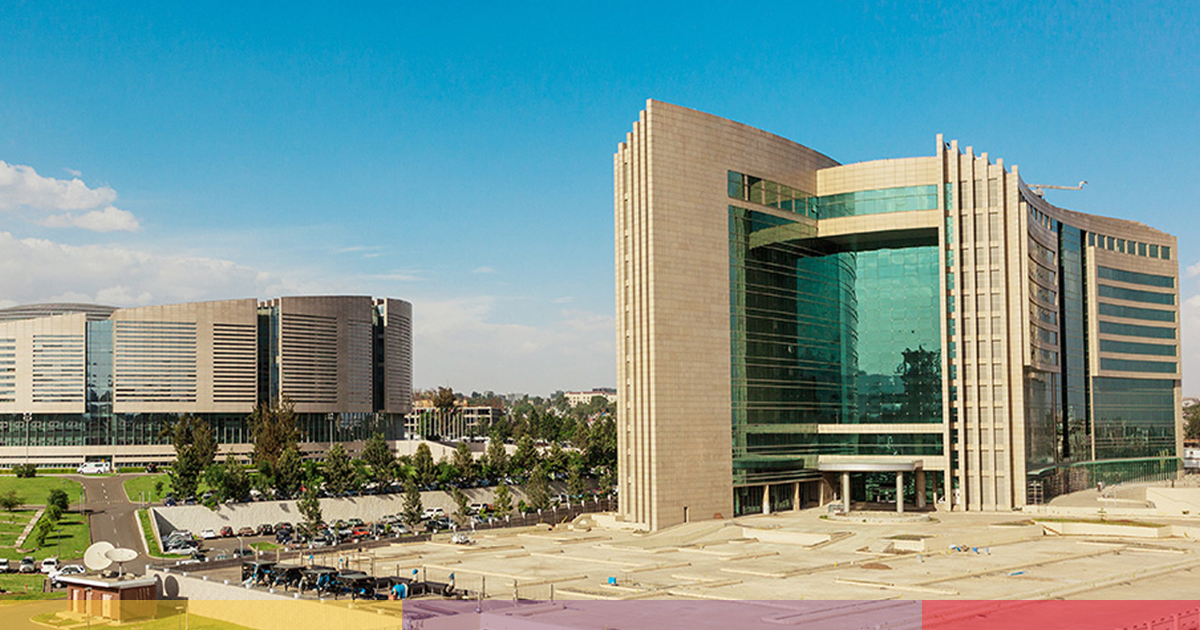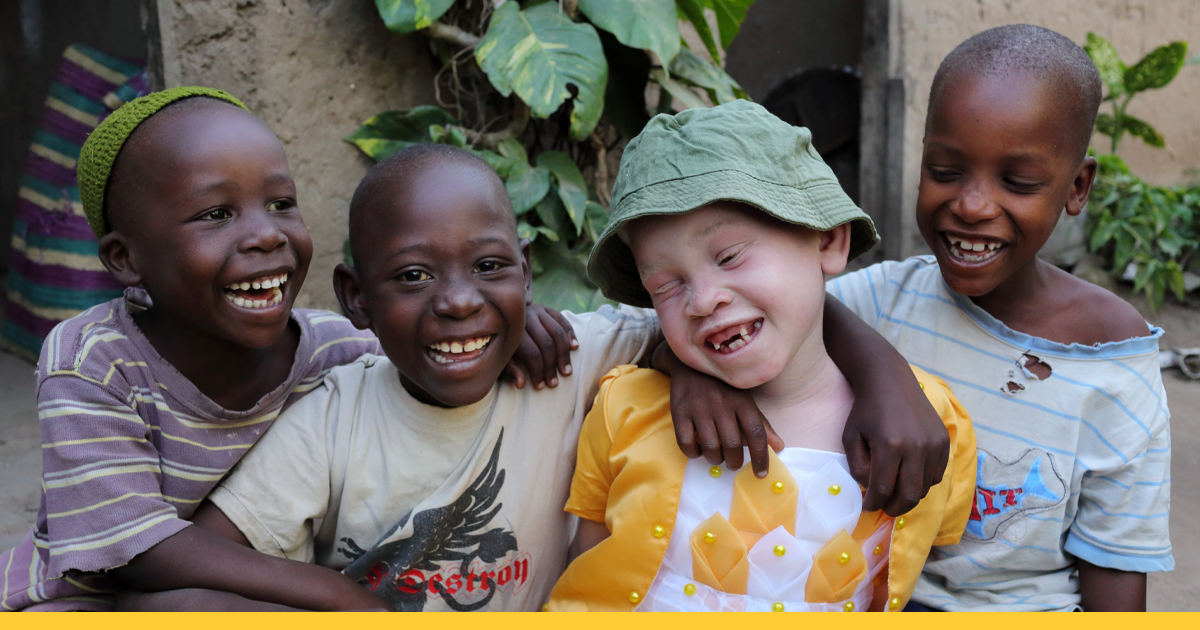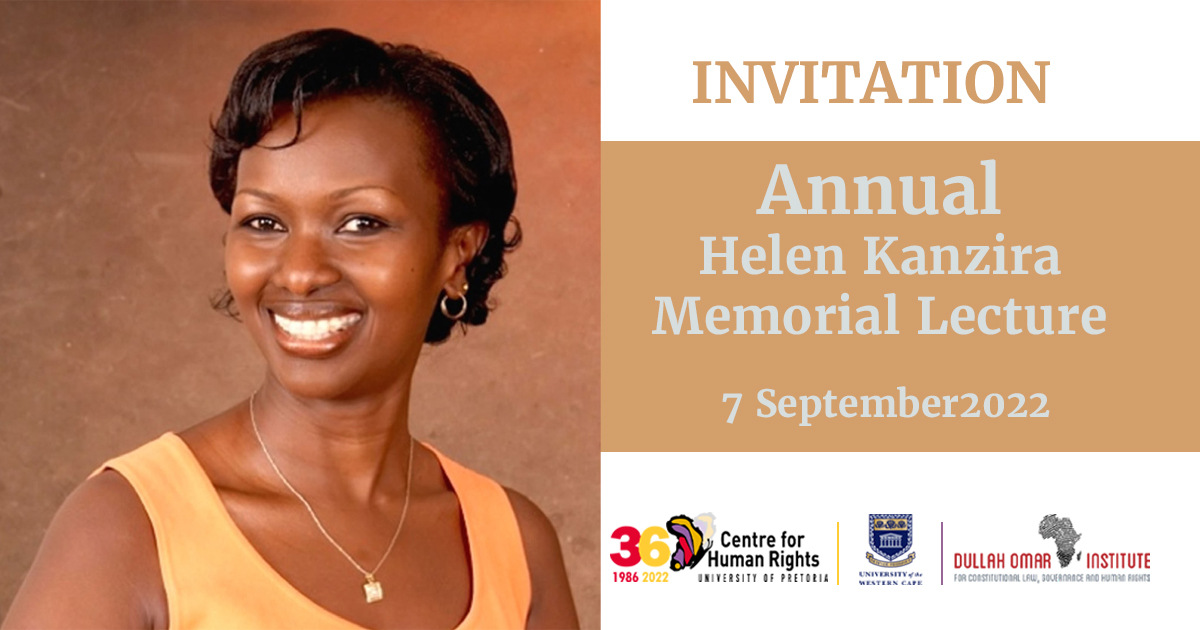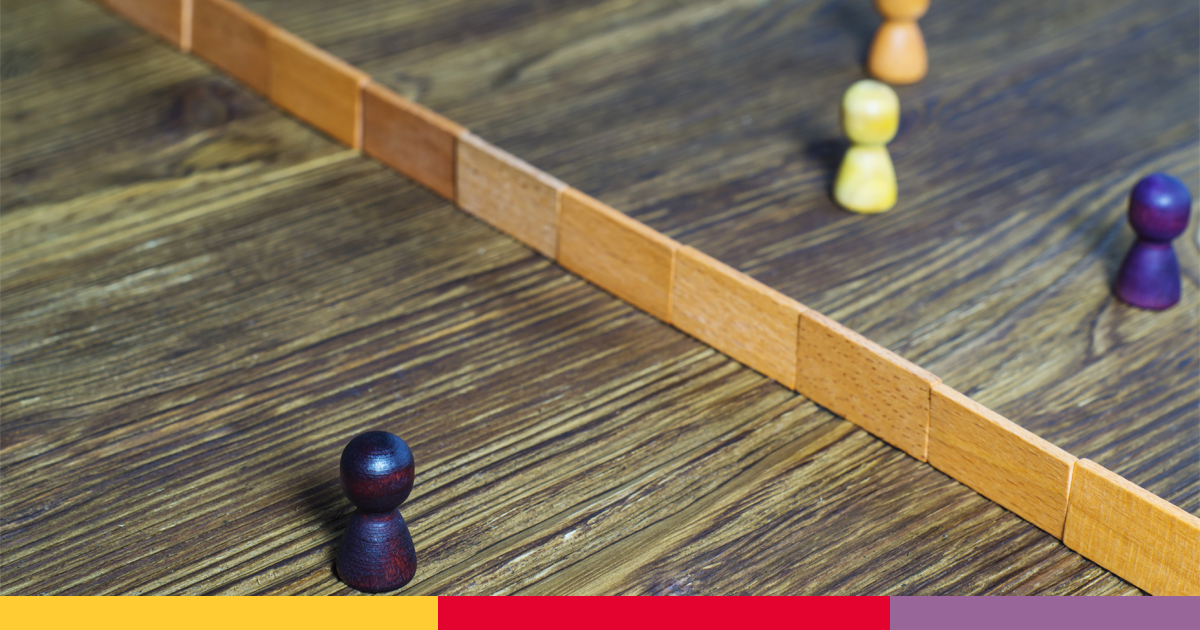- Details
To celebrate International Women's Day (IWD) this year, the Centre for Human Rights, University of Pretoria, seeks to accredit the potential for women to benefit socially and economically from the digital revolution. Yet, there is also a chance that it will reinforce current patterns of gender inequity. Despite numerous substantial initiatives, there is still a sizable gender gap in the digital world, which prevents high-, low-, and middle-income countries from equally reaping the rewards of digital transformation.
- Details
The Advanced Human Rights Courses (AHRC) and the Sexual Orientation, Gender Identity and Expression, and Sex Characteristics (SOGIESC) Unit at the Centre for Human Rights (the ‘Centre’), University of Pretoria (UP) recently hosted the 2023 edition of the annual short course on Sexual Minority Rights in Africa. The course was presented through both virtual and physical sessions from 20 to 24 February 2023 and was attended by 70 participants with 15 presenters from both across and outside Africa. Participants included LLM/MPhil students in both the Human Rights and Democratisation in Africa (HRDA) and the Sexual and Reproductive Rights in Africa (SRRA) Masters programmes in the Faculty of Law, UP. Other participants included researchers, academics, judicial officers, government workers, officials of selected National Human Rights Institutions, and members of civil society.
- Details
The Centre for Human Rights, Faculty of Law, University of Pretoria commends the Supreme Court of Kenya on its decision upholding the National Gay and Lesbian Human Rights Commission’s right to register as a non-governmental organisation with the words ‘gay’ and ‘lesbian’ in its title.
- Details
In pursuit of the ideals of excellence and diversity, the University of Pretoria wishes to invite applications for the Senior Lecture vacancy. The University of Pretoria's commitment to quality makes us one of the top research Universities in the country and gives us a competitive advantage in international science and technology development.
- Details
On 27 February 2023, the Disability Rights Unit at the Centre for Human Rights hosted a dialogue on the newly adopted Guidelines_on_Deinstitutionalization.pdf, including in Emergencies (‘the Guidelines’). The adoption of the Guidelines was announced by the Committee on the Rights of Persons with Disabilities on 9 September 2022. The primary objective of the Guidelines is to provide guidance to States Parties on how to ensure that persons with disabilities realise the right to live independently and to be included in the community as stipulated in article 19 of the Convention on the Rights of Persons with Disabilities, with a focus on the deinstitutionalisation process. The dialogue sought to introduce stakeholders to the substantive content of the Guidelines and to examine their use in African advocacy initiatives to promote the right to live independently and be included in the community.
- Details
The Centre for Human Rights, Faculty of Law, University of Pretoria (Centre) condemns the racist remarks made by the President of Tunisia and the arbitrary arrest, detention and forced eviction of African migrants in Tunisia.
- Details
In pursuit of the ideals of excellence and diversity, the University of Pretoria wishes to invite applications for the Associate Professor/Professor vacancy. The University of Pretoria's commitment to quality makes us one of the top research Universities in the country and gives us a competitive advantage in international science and technology development.
- Details
The Pretoria Student Law Review (PSLR) is now accepting original research articles, and the traditional reviews published in the past, for the 2023 (Volume 17) edition on any topic in law and its related disciplines.
- Details
The African Moot and the Migration Unit of the Centre for Human Rights held a movie screening titled ‘African Moot’ on 15 February 2023 for CSOs in South Africa dealing with refugees and migrants.
- Details
INVITATION FOR CONTRIBUTIONS
We invite abstracts for articles and case discussions proposing to make ground-breaking academic-style contributions to the human rights discourse in Africa. Although the contributions are expected to take a continental (African) approach to the issues they cover, country-specific or sub-regional level case studies that relate to the African regional human rights system will also be considered. In so far as methodology is concerned, contributions adopting multidisciplinary and empirical approaches are highly encouraged.
- Details
On February 6, 2023, Amhara Association of America (AAA) and Centre for Human Rights, Pretoria University (CHR) submitted a complaint to the African Commission on Human and Peoples’ Rights against the Ethiopian Government. The complaint is made on behalf of ethnic Amhara residents in West Wollega, East Wollega, Horo Guduru Wollega, Qelem Wollega and West Shewa Zones of the Oromia Region who faced mass atrocities at the hand of state and non-state armed forces and militias. The complaint argues that the Ethiopian state bears responsibility for human rights violations committed by its agents, including the Oromia Special Forces (OSF), such as extrajudicial killings, arbitrary arrests, property destruction, communication blackouts, violent dispersal of peaceful protests, and displacement. It is also submitted that the lack of adequate efforts on the part of the state to halt the atrocities and human rights violations committed by the Oromo Liberation Army (OLA) or punish those responsible for violating the obligation of states to ensure the rights and freedoms of all individuals within its jurisdictions is not respected, thereby depriving the Amhara residents of several substantive rights in the African Charter.
- Details
The Centre for Human Rights, Faculty of Law, University of Pretoria, calls for applications for full-time doctoral scholarships in the field of sexual and/ or reproductive rights in the African region.
- Details
The Centre for Human Rights Disability Rights Unit invites you to a dialogue on the newly adopted guidelines on deinstitutionalisation.
The dialogue seeks to:
- Introduce stakeholders to the substantive content of the guidelines
- Interrogate the practical application of the guidelines in African countries
- Examine the use of the guidelines in advocacy initiatives to promote the right to live independently and be included in the community
- Details
The Litigation and Implementation Unit of the Centre for Human Rights, Faculty of Law, is recruiting for a part-time position of Student Project Associate under an eight month contract beginning on 1 April 2023 and ending on 30 November 2023, renewable based on satisfactory performance and continued funding.
- Details
On 1 and 2 February 2023, the Office of the President of the Republic of South Africa (the Presidency) in partnership with the Women’s Rights Unit, Centre for Human Rights held a workshop to review commissioned reports from 25 African countries on discriminatory laws related to violence against women on the African continent (VAW).
- Details
On 1 February 2023, the Centre for Human Rights at the University of Pretoria’s (UP) entered into an agreement with the Swedish Development Cooperation Agency (SIDA) for the implementation of a project aimed at strengthening the protection of sexual and reproductive health rights (SRHR) in Africa. The duration of the agreement is three years, commencing in February 2023 and runs until January 2026.
- Details
The Centre for Human Rights cordially invites you to Thulani Maseko`s memorial service under the theme: "Defending Civic Space and Protecting Human Rights Defenders in Southern Africa".
Details
Venue: Law Auditorium, Room 1-54 of the Law Building. University of Pretoria
Date: 3 February 2023 14:30 – 16:45 (SAST)
RSVP: inmemoryofthulani@gmail.com before 3 February 2023
- Details
In response to the African Commission’s unfortunate decision to reject observer status applications by three human rights organizations in its final communique of its 73rd ordinary session, the Centre for Human Rights, Faculty of Law, University of Pretoria and its partners - Synergía Initiatives for Human Rights, the Initiative for Strategic Litigation in Africa (ISLA), PanAfrica ILGA, Amnesty International, and Mouvement pour les Libertés Individuelles (MOLI) condemn this decision that threatens the Commission’s ability to promote and protect human rights for all.
- Details
Thulani Rudolf Maseko (1 March 1970 - 21 January 2023)
It is with great shock and profound sadness that we at the Centre for Human Rights, Faculty of Law, University of Pretoria, learnt about the assassination of Thulani Maseko on 21 January 2023. He was shot dead in front of his family in his home south of Mbabane, Eswatini, in what can only be described as a targeted killing.
Our deepest sympathy goes to his wife and family in this difficult and traumatising time.
- Details
As this eventful year winds down, the Centre gladly shares with you some of the highlights in our activities over the last two months. We have been busy! The annual Human Rights Graduation took place on 9 December. Its highlight was the award of the Vera Chirwa Award to two alumni who are leaving deep footprints in the human rights landscape in Africa: Namibian Minister of Justice Yvonne Dausab, and Malawian High Court Judge Redson Kapindu. The Centre organised two advanced short courses; hosted numerous capacity-building events, held two pan-African conferences and launched a number of publications.
- Details
The Centre for Human Rights (CHR), Faculty of Law, University of Pretoria (UP) congratulates Dr Nkatha Murungi on her appointment as Associated Professor in the CHR and Faculty of Law at UP, effective from 1 January 2023.
Dr Nkatha is currently serving as Assistant Director (Programmes) of the CHR. She has specific responsibility for the Centre’s project and programmes on women’s rights, sexual and reproductive rights, children’s rights and the rights of persons with disabilities. She is also co-editor of the African Disability Rights Yearbook.
- Details
The Centre for Human Rights (Centre), Faculty of Law, University of Pretoria, selected Namibian Minister of Justice, Honourable Yvonne Dausab, and Malawian human rights advocate and High Court Judge, Justice Redson Edward Kapindu, to jointly receive the 2022 Vera Chirwa Award. This Award, instituted in 2006, acknowledges and honours an alumnus or alumna of the LLM/MPhil in Human Rights and Democratisation in Africa (HRDA) who best embodies the spirit of the programme in their subsequent career by positively contributing to human rights or by promoting consolidation of democratic values in Africa.
- Details
The Centre for Human Rights, Faculty of Law, University of Pretoria (CHR) commemorated World Human Rights Day by hosting its annual Graduation ceremony on 9 December 2022. This annual event saw the CHR graduate its LLM/MPhil in Human Rights and Democratisation in Africa (HRDA) class of 2022 at a time when the institution of democracy is under pressure throughout the continent of Africa and globally. This year’s Graduation also marked the first in-person ceremony at the main campus of UP since the outbreak of the COVID-19 pandemic. During the ceremony, the Vera Chirwa Award was also annoounced and handed to two graduates of the HRDA programme, Namibian Minister of Justice Honorable Yvonne Dausab and Malawian High Court Judge, Justice Redson Kapindu.
- Details
25-29 April 2023, University of Ghana, Accra
The Merian Institute for Advanced Studies in Africa (MIASA) seeks to provide Africa-based early career researchers working on the themes of peace, democracy and climate change on the continent with the space and intellectual community to transform a draft paper into a publishable journal piece. The 5-day writing workshop is designed to provide early career scholars with the opportunity to contribute to knowledge production in one of the three fields of research focus for this workshop: peace, democracy and climate change.
- Details
6 December 2022
The Centre for Human Rights, University of Pretoria, and the Southern African Nationality Network (SANN) call on African states, including members of the Southern African Development Community (SADC), to endorse the adoption of the Draft Protocol to the African Charter on Human and Peoples’ Rights on the Specific Aspects of the Right to a Nationality and the Eradication of Statelessness in Africa (Draft Protocol) and to subsequently ratify it. We also call on the Government of South Africa to take leadership in urging other SADC members to endorse the adoption of the Draft Protocol and to subsequently ratify it.
- Details
The Expression, Information and Digital Rights (EIDR) unit in collaboration with the Media Institute of Southern Africa Zimbabwe (MISA-Zimbabwe) conducted a capacity-building workshop on promoting rights-respecting approaches to disinformation for Community-based Organisations (CBOs) on 17 November in Harare, Zimbabwe. Representatives from the media fraternity and academic institutions were also in attendance.
- Details
From 21 to 25 November 2022, the Centre for Human Rights organised a 5-day intensive course on the protection of forcibly displaced persons in Africa. The course presented a human-rights perspective on the protection of forcibly displaced persons in Africa. It enhanced the knowledge of participants on fundamental legal concepts and principles related to international law on forced displacement, critical challenges in the interpretation and application of key treaty provisions, and rights-based approaches to addressing challenges and ensuring durable solutions to forced displacement in Africa.
- Details
On 29 and 30 November 2022 in Abuja, Nigeria the Centre for Human Rights Women’s Rights Unit held a joint jurisprudential colloquium for Commissioners of the African Commission on Human and Peoples’ Rights and Judges of the Economic Community of West African States Court of Justice (ECOWAS Court). Judge President Edward Amoako Asante of the ECOWAS Court and Commissioner Janet Sallah-Njie, Special Rapporteur on the Rights of Women in Africa of the African Commission on Human and Peoples’ Rights are among the eminent attendees. The purpose of the Judicial Colloquium was to sensitise the judicial and quasi-judicial officers on attaining substantive equality for women in Africa through a gender-sensitive approach to the application and interpretation of the Protocol to the African Charter on Human and Peoples’ Rights on Rights of Women in Africa (Maputo Protocol).
- Details
On 24 and 25 November 2022, the Centre for Human Rights, Faculty of Law, University of Pretoria, in partnership with OutRight Action International, and with the support of the Embassy of the Kingdom of Norway in South Africa, held a Conference on the Decriminalisation of Same-Sex Law and the Eradication Conversion Practices in African countries.
- Details
The Centre for Human Rights (Centre), Faculty of Law, University of Pretoria, is pleased to share the news of the appointment of its alumna, Muleya Mwananyanda, as the Director, Influence and Partnerships for UNAIDS.
- Details
The Centre for Human Rights (CHR), in partnership with the Zimbabwe Human Rights NGO Forum and the University of Zimbabwe, successfully launched the Zimbabwe Constitutional Literacy Booklet on 16 November in Harare, Zimbabwe.
- Details
The Centre for Human Rights, University of Pretoria (the Centre), is providing technical support to the African Commission on Human and Peoples' Rights (ACHPR) in its continental project on human rights and artificial intelligence (AI), robotics and other new and emerging technologies in Africa.
- Details
The Centre for Human Rights, Faculty of Law, University of Pretoria cordially invites you to the Launch of an Impact Analysis Study of the African Union (AU) Economic Cultural and Social Council (ECOSOCC) in the Governance structure of the African Union.
- Details
On 17 November 2022, the 10th annual disability rights in Africa Conference organised by the Disability Rights Unit at the Centre for Human Rights, University of Pretoria kicked off at Southern Sun hotel OR Tambo, South Africa. The theme of this year’s conference is ‘migration, displacement and disability: a human rights response’. The aim of the two day conference is to critically appraise laws, policies, practices, programmes, polities and ideologies that relate to migration and displacement and suggest remedial measures for protecting and ensuring the rights of migrants and internally displaced persons (IDPs) with disabilities.
- Details
-
Introduction
A regional instrument that addressed the protection of displaced persons out of state borders was established in 1969 as a result of the dynamics of displacement on the continent in the period following decolonisation but no instrument was developed to address the protection of persons displaced within state borders.[1] In order to address this gap and provide internally displaced persons(IDPs) in Africa with adequate protection and assistance as a result of the detrimental effect of internal displacement on peace, security, environment and development of African countries, the African Union Convention for the Protection and Assistance of Internally Displaced Persons in Africa (Kampala Convention) was established.[2] The Kampala Convention was adopted on 23 October 2009 and entered into force on 6 December 2012. Following its adoption as a legally binding regional instrument, the Kampala Convention has become a significant framework. Excluding the preamble, the Kampala Convention has 23 articles. The preamble describes the principles upon which the Convention is established. It adopts in context international frameworks such as the United Nations (UN) Guiding Principles on Internal Displacement and applies it to the situation of internal displacement in Africa.[3] Setting forth the legal basis within the framework of the African Union and the United Nations, the preamble presents the intention of the Kampala Convention. The Kampala Convention aims to prevent internal displacement, protect IDPs, and provide durable solutions to internal displacement in the Africa.[4]
- Details
Over two days, 15 and 16 November 2022, the Children Rights Unit at the Center for Human Rights, hosted a training workshop to capacitate selected state officials from varied ministries on strategies to incorporate the impact of Climate Change on children’s Socio-economic Rights in their state reports to the African Committee of Experts on the Rights and Welfare of the Child (African Children’s Committee).
- Details
The Centre for Human Rights(CHR), in collaboration with the International Working Group for Indigenous Affairs (IWGIA) and the working group on indigenous Populations/ Communities of the African Commission on Human and Peoples Rights hosted their course on 7-11 November 2022. The Course was held in a hybrid format with 20 participants attending physically at graduate center of the University of Pretoria and 35 attending online from countries in Africa and abroad. Participants were drawn from all walks of life including but not limited to students, legal practitioners, Indigenous Rights Advocates and members of indigenous communities, members of government institutions, Public Prosecutors, amongst others.
- Details
The Children's Rights Unit at the Centre for Human Rights launched its Study on Child Participation in Development Frameworks in Africa.
Child participation is a fundamental right guaranteed in international law, specifically under articles 12 of the Convention on the Rights of the Child (CRC) and 4(2) of the African Children’s Charter. It is a facilitative right that is significant in the intellectual development of the child and vital for a child’s autonomy and social responsibility later in a child’s life course.
- Details
The African Disability Rights Yearbook (ADRY) is calling for papers for consideration for publication in Section A of the ADRY in 2023. The ADRY publishes once a year with a focus on disability rights issues and developments of contemporary concern to persons with disabilities on the African continent. The ADRY is published by the Pretoria University Law Press (PULP) as a peer-reviewed open-access journal that is accredited by South African Department of Higher Education and Training.
- Details
The African Journal of Privacy and Data Protection is domiciled in the Faculty of Law, University of Lagos Akoka-Lagos, Nigeria but will be published once a year by the Pretoria University Law Press (PULP) South Africa. The Journal will be peer reviewed and is open access. The first issue of the Journal is expected to be published in August/September of 2023. The Editorial Board of the Journal hereby invites Articles, Book/Reviews and Notes/Comments on various aspects of privacy and data protection generally and perspectives on and from the continent of Africa in particular.
- Details
The Centre for Human Rights, University of Pretoria (the Centre) hosted an Access to Information and Elections in South Africa symposium on 10 and 11 November 2022 at the University of Pretoria. Co-hosting the event were the Independent Electoral Commission of South Africa (IEC), the Information Regulator (IR), the South African Human Rights Commission (SAHRC), the Human Sciences Research Council (HSRC), and Media Monitoring Africa (MMA). The symposium is part of an advocacy project to promote the transparency and integrity of elections, and meaningful participation in elections by an informed electorate in South Africa. To this end, the symposium advocates for the implementation of the Guidelines on Access to Information and Elections in Africa were developed by the African Commission on Human and Peoples' Rights. Further, the symposium seeks to promote the implementation of the recommendations of the 2020 report titled Proactive Disclosure of Information and Elections in South Africa. The SA report assessed South Africa’s compliance with the Guidelines and made targeted recommendations to electoral stakeholders.
- Details
On 10 November 2022, the Pretoria University Law Press (PULP) based at the Centre for Human Rights, Faculty of Law, University of Pretoria (Centre), and the School of Law, University of Kabarak, hosted a hybrid book launch for Exploring African approaches to international law: Essays in honour of Kéba Mbaye edited by Frans Viljoen, Humphrey Sipalla and Foluso Adegalu.
- Details
A Centre for Human Rights alumna, Grace Wakio Kakai, has been appointed the new Deputy Registrar of the African Court on Human and Peoples' Rights (African Court). She was sworn in on 7 November 2022, as the Court started its 67th Ordinary Session in Arusha, Tanzania.
- Details
On 3 November 2022, Professor Charles Manga Fombad, the Director of Institute for International and Comparative Law in Africa (ICLA), was awarded the University of Pretoria’s (UP) prestigious Chancellor’s award for research, for the year 2021. Prof Fombad is a National Research Foundation (NFR) B1-rated scholar and a member of the Academy of Science of South Africa (ASSA).
- Details
The Centre for Human Rights, University of Pretoria (the Centre) will be hosting an Access to Information and Elections in South Africa symposium on 10 and 11 November 2022 at the University of Pretoria. The symposium is hosted in collaboration with the Independent Electoral Commission of South Africa (IEC), the Information Regulator (IR), the South African Human Rights Commission (SAHRC), the Human Sciences Research Council (HSRC), and Media Monitoring Africa (MMA).
- Details
In order to develop the knowledge and expertise of lawyers and legal organisations in the region on statelessness and migration in general and in the context of Southern Africa, to equip legal practitioners with skills and tools to identify people affected by statelessness, and to develop practical legal interventions to resolve statelessness, Lawyers for Human Rights (South Africa) in partnership with the Centre for Human Rights and the Centre for Child Law (South Africa) held a hybrid legal training on statelessness and migration for paralegals, candidate attorneys and junior attorneys in Southern Africa on 24 – 26 October 2022 at the University of Pretoria.
- Details
The Pretoria University Law Press (PULP), based at the Centre for Human Rights, University of Pretoria, invites you to the hybrid book launch of Exploring African approaches to international law: Essays in honour of Kéba Mbaye, edited by Frans Viljoen, Humphrey Sipalla and Foluso Adegalu. This launch is co-hosted by the Centre and the Kabarak School of Law.
- Details
The Centre for Human Rights (Centre) in partnership with Konrad Adenauer Stiftung (KAS) under the aegis of the Rule of Law Program for Sub Saharan Africa developed simple-easy-reference booklets (for non-lawyers) that summarise the Bill of Rights as espoused in the constitutions of selected “Anglophone African” countries including Zimbabwe. The broad aim is to promote human rights and Constitutional literacy in Africa.
- Details
Applications are invited for the award of the first Christof Heyns Human Rights Scholarship. Applications are open to current or prospective doctoral candidates studying towards a doctoral degree in human rights at the University of Pretoria. The Scholarship is for study in 2023.
Download Call for Applications
CLOSING DATE: The last day for applying is 28 November 2022.
- Details
The Centre for Human Rights, Faculty of Law, University of Pretoria, on 28 October 2022 held a capacity-building workshop for South African civil society organizations (CSOs) in Pretoria. The capacity-building workshop was aimed at equipping South African CSOs with limited or no interaction with the African human rights system with capacity to be able to engage with that system.
- Details
The Centre for Human Rights, in collaboration with its partners SIPD-Uganda and Intersex Community of Zimbabwe (ICoZ), launched an intersex report on the sidelines of the ongoing 73rd Ordinary Session of the African Commission on Human and Peoples’ Rights in Banjul, The Gambia.
- Details
Ethnicity and Constitutionalism in Africa
The Organisers of the Stellenbosch Annual Seminar on Constitutionalism in Africa (SASCA) are pleased to announce the call for papers for the Tenth anniversary of the Stellenbosch Annual Seminar on Constitutionalism in Africa (SASCA 2023), which will be held in Stellenbosch (South Africa) from Tuesday 19 September to Friday 22 September 2023. SASCA 2023 will be jointly organised by the Institute for International and Comparative Law in Africa (ICLA) of the Faculty of Law, University of Pretoria, the UWC Chair in Constitutional Design for Divided Societies, the South African Research Chair in Multilevel Government, Law and Development (SARChI) at the Dullah Omar Institute, University of the Western Cape, and the Stellenbosch Institute for Advanced Study (STIAS) in partnership with the Konrad Adenauer Stiftung (KAS) Rule of law Programme Sub-Saharan Africa (Anglophone Countries), based in Nairobi.
The theme for this seminar is “Ethnicity and constitutionalism in Africa”.
- Details
The Director of Centre, Faculty of Law, University of Pretoria, made the following statement at the 73rd Ordinary Session of the African Commission on Human and Peoples' Rights, Banjul, The Gambia, on 26 October 2022.
26 October 2022
Chairperson of the Commission, Commissioners, and welcoming in particular the newly inaugurated Commissioner; dear fellow delegates,
Centre congratulates Commission@35
The Centre for Human Rights congratulates the African Commission on celebrating the milestone of 35 years of its existence. It was, at the time of its establishment, not a foregone conclusion that the Commission would develop into a credible, independent and progressive human rights body that promotes and protects the right of all African people. It was the energetic and innovative dedication, professionalism and attentiveness of members of the Commission, and its supporting Secretariat, that over many years solidified it as Africa’s primary human rights body. We wish the current crop of Commissioners well in continuing this proud tradition.
The Centre calls for a fact-finding mission or other engagement with authorities in Chad
Following the shooting of at least 50 Chadians protesting the postponement of elections for around two years, and reports about the suspension of political parties and the imposition of a curfew, the Centre associates itself with the grave concern expressed by others. The Centre calls on the Commission to take all possible measures to undertake a fact-finding mission to Chad, in order to ensure accountability, and to preserve human security and uphold human rights. We further call on the Commission, under article 19 of the Protocol on the African Union Peace and Security Council (PSC), to formally bring to the attention of the PSC the human rights concerns, and to cooperate with the PSC to engage the Chadian authorities on the underlying causes that gave rise to the human rights violations since 20 October in Chad.
- Details
Banjul, 25th October 2022
66 civil society organisations welcome the publication yesterday of the African Commission on Human and Peoples’ Rights (African Commission) landmark General Comment detailing States’ obligations with regard to public services, such as education, healthcare and water. This is a major step forward to consolidate the human rights and legal framework, in a context where public services have emerged as one of the critical tools to address the climate, health, food, and inequality crises of the last years.
- Details
In the last few years Africa’s sub-regional courts have passed judgments that buttress the importance of internet freedom. On 17 July 2022 the Court of Justice of the Economic Community of West African States (ECOWAS Court) found that the Nigerian government’s 7-month Twitter ban violated article 9 of the African Charter on Human and Peoples’ Rights and article 19 of the International Covenant on Civil and Political Rights (ICCPR).
- Details
Shadow reporting
Member states are obligated to report to the African Commission every two years, in accordance with its guidelines, on measures they have taken to give effect to the provisions of the African Charter; and its Protocols, including the Protocol to the African Charter on the Rights of Women in Africa; the Protocol to the African Charter on the Rights of Older Persons in Africa, the Protocol to the African Charter on the Rights of Persons with Disabilities in Africa; the Protocol to the African Charter on the Rights of Citizens to Social Protection and Social Security; the African Union Convention for the Protection and Assistance of Internally Displaced Persons in Africa; and any other subsequent regional human rights treaties in respect of which the African Commission has the mandate to monitor state reporting.
- Details
The Centre for Human Rights, University of Pretoria (the Centre) is pleased to invite interested persons to express their interest to participate in a two-day election symposium on 10 - 11 November 2022 at the University of Pretoria.
- Details
As part of our commitment to address policy gaps and find durable solutions to internal displacement, the GENIDA Network is convening a webinar to examine the Action Agenda in light of the current state and continued increase in the number of IDPs in Africa. This webinar will hear perspectives from different stakeholders regarding the UN Secretary General’s Action Agenda on Internal Displacement.
- Details
The International Development Law Unit (IDLU), Centre for Human Rights, Faculty of Law, University of Pretoria in partnership with the Finance for Development Lab and Pretoria University Law Press (PULP) invites you to the virtual book launch of the Portguese and French versions of COVID-19 and Sovereign Debt, edited by Daniel D. Bradlow and Magalie L. Masamba (2022)
- Details
In collaboration with the Centre for Human Rights, Faculty of Law, University of Pretoria and the Centre for Applied Legal Studies, Wits University Natural Justice will host a two-day conference to empower young activists and students with knowledge and tools to influence climate justice in South Africa.
- Details
The Centre for Human Rights, University of Pretoria, cordially invites you to its 10th Annual Disability Rights Conference on 17 and 18 November 2022 which will take place in a hybrid format (in Pretoria, South Africa; and on zoom). The theme of this year’s conference is “Migration, Displacement and Disability: A human rights’ response”. Kindly note that for those who wish to attend the conference physically/in-person, it is required that you cover your own costs (air tickets, accommodation, transport, etc). The Centre will cover costs of conferencing. For those who wish to attend the conference virtually, you are simply requested to fill out the Google form, and the zoom link will be emailed to you.
The conference acts as a platform for convening dialogue amongst key stakeholders on disability rights, and to spotlight the pertinent and emerging disability rights concerns in the African region.
- Details
A side event during the 73rd Ordinary Session of the African Commission on Human and Peoples’ Rights
The Centre for Human Rights, University of Pretoria, Equality Now and ICJ-Kenya cordially invite you to a side event to introduce the Guidelines to stakeholders on the side-lines of the 73rd Ordinary Session.
Event Information
Date: 24 October 2022
Time:13:00-14:00 GMT
Venue: International Conference Centre, Kerr Serign, The Gambia (Main Hall)
RSVP: Susan Mutambasere
Susan.mutambasere@up.ac.za
- Details
The right to access justice is an important cross-cutting right that is a pre-requisite for the enjoyment and vindication of all other human rights and fundamental freedoms. Enshrined in article 13 of the Convention of the Rights of Persons with Disabilities (CRPD) and article 13 of the Protocol to the African Charter on Human and People’s Rights on the Rights of Persons with Disabilities in Africa (African Disability Protocol), the right guarantees effective access to justice through the provision of procedural, age and gender-appropriate accommodations.
- Details
Amnesty International, the Centre for Human Rights, University of Pretoria and UN Special Rapporteur on Freedom of Assembly are hosting an event on Protecting The Right To Protest in Africa on the Side-lines of the ACHPR 73rd Ordinary Session.
- Details
The Expression, Information and Digital Rights (EIDR) Unit of the Centre for Human Rights (Centre), University of Pretoria, supported by Google, hosted the first Advanced Human Rights Course on Data Protection in Africa (Course). The Course was held from 19 to 23 September 2022.
- Details
The Centre for Human Rights’ Expression, Information and Digital Rights (EIDR) Unit hosted a two-day-long training and capacity-building workshop on Digital Rights in Southern Africa, from 04 to 05 October 2022. The workshop was targeted at government officials and National Human Rights Institutions (NHRIs) in Southern Africa. It is part of the stakeholder-specific workshops that commenced following the launch of the Digital Rights in Southern Africa report, which informs the training. The participants were from Angola, Lesotho, Malawi, Mozambique, Namibia, South Africa, Tanzania, and Zimbabwe.
- Details
The Global Coalition on Deinstitutionalization (‘GC-DI’) calls on all bodies and agencies of the UN to support the implementation of the UN Guidelines on Deinstitutionalization, including in Emergencies (‘the Guidelines’). We further call on States parties and regional integration organizations to align reform processes with the authoritative guidance being provided to them by the adoption of the Guidelines. We urge all stakeholders to ensure that deinstitutionalization processes conform to the letter and spirit of the Convention, and prioritise the leadership of persons with disabilities.
- Details
On this day, 1st October 2022 which has been set down by the United Nation to commemorate the International Day of Older Persons, the Commission on Human Rights and Administrative Justice joins the International Community to recognize and celebrate the enduring contribution of all older persons in Ghana, Africa and globally.
- Details
The Centre for Human Rights, Faculty of Law, University of Pretoria, cordially invites you to a webinar series organised by the Democracy and Civic Engagement Unit on “Unconstitutional changes of governments in Africa: Emerging issues and lessons from the continent”. The webinar series pulls together experts from across the continent to interrogate current trends and challenges on democracy in Africa with a specific focus on Sudan, Eswatini and Cameroon.
Date: 13 October 2022
Time: 11:00 - 13:00
- Details
The Centre for Human Rights, University of Pretoria, is organizing a capacity-building workshop on engagement with the African human rights system for South African civil society organisations (CSOs).
Date: 28 - 29 October 2022
- Details
We, gathered from various parts of Africa and beyond, participants in the High-level Experts Forum on Durable Solutions to Protracted Displacement in Africa, organised by the Centre for Human Rights, University of Pretoria, held on 19 September 2022 at the Future Africa Campus of the University of Pretoria;
Deeply concerned that, according to United Nations High Commissioner for Refugees (UNHCR), at present the number of refugees, asylum seekers and internally displaced persons in Africa is around 30 million;
- Details
On 8 September 2022 the Center for Gender Studies and Feminist Futures (CGS) and the Center for Conflict Studies (CCS) at the University of Marburg hosted the final session of the webinar series in the Pretoria-Marburg Queer Conversations: Scholarly and Activist Perspectives on LGBTIQ+ Lived Realities in Africa in collaboration with the Centre for Sexualities, AIDS, and Gender (CSA&G), and the Centre for Human Rights (CHR) at the University of Pretoria. The Pretoria-Marburg Queer Conversations creates a monthly space for in-depth discussions designed to tap into the intersections of knowledge-production and transfer between diverse scholarly and activist spheres and contributes to methodological, conceptual, and normative aspects of centering LGBTIQ+ rights and lived realities in African contexts.
- Details
The Expression, Information and Digital Rights Unit cordially invites you to the first of five interactive sessions on the Implementation of the Protection of Personal Information Act (POPIA), 2013.
SESSION 3: Protection of Personal Information and Organisational Compliance
- Details
The Centre for Human Rights, Faculty of Law, University of Pretoria, cordially invites you to a webinar organised by the Democracy and Civic Engagement Unit on participation of young people in elections and politics on the continent with a specific focus on Kenya, Zambia and South Africa. The webinar will interrogate the influences driving participation of young Africans informed by trends of most recent election cycles in the selected countries. This webinar aims to understand the trend towards declining youth participation and the influences driving this as well as garner lessons from instances where youth participation in elections has been robust.
- Details
The Centre for Human Rights, Faculty of Law, at the University of Pretoria (Centre for Human Rights), is extending an invitation to you to participate in a webinar launching a study on the impact of COVID-19 on older women in Southern Africa.
- Details
by Professor Daniel Bradlow
Inflation is a global problem. At the end of August, it was 8.3% in the US and 9.1% in the Euro area. It is 20.3% in Nigeria, 25% in Malawi, and over 30% in Ethiopia and Ghana.
The impact on Africa is devastating. The International Energy Agency estimates that by the end of the year 30 million more Africans will be unable to afford fuel for cooking. The World Bank estimates the number of Africans living in extreme poverty will increase from 424 million in 2019 to 463 million this year.
- Details
Dr. Primrose E.R Kurasha is an International Law Expert who holds her professional certification from the International Court of Justice's Hague Academy of International Law. Her other professional certificates are from the University of Salzburg, Austria, the Pretoria Bar of Advocates and the Centre for Human Rights. Dr. Kurasha has also served as a board member.
- Details
On September the 19th 2022, the Centre for Human Rights Migration Unit hosted a High-level Experts Forum on Durable Solutions to Protracted Displacement in Africa. The Forum engaged experts from various universities in Africa, the office of the United Nations Commissioner for Refugees, Ethiopian Human Rights Commission and rights organisations in Africa.
- Details
High-level experts forum on durable solutions to protracted displacement in Africa
Venues: Future Africa Campus, and Online
Monday 19 September 2022
- Details
The Centre for Human Rights (CHR), University of Pretoria (UP), in partnership with the African Policing Civilian Oversight Forum (APCOF) and Global Law Enforcement and Public Health Association (GLEPHA) held another advanced human rights course on “Policing and Vulnerability in Africa” from the 5th – 9th September 2022. The course was held virtually with over sixty (60) participants drawn from law enforcement agencies, government parastatals, students, academic institutions, legal practitioners, civil societies, human rights advocates, non-profit organizations, and other institutions of learning across countries in Africa and globally.
- Details
The Sexual Orientation, Gender Identity and Expression, and Sex Characteristics (SOGIESC) Unit of the Centre for Human Rights, Faculty of Law, is recruiting for: (i) a part-time position and (ii) a full-time position of Project Officer each under a twelve-month contract beginning in January 2023 and ending on 31 December 2023, renewable based on performance and continued funding.
- Details
The Centre for Human Rights is calling for papers that will form part of a book that contributes to critical communication surveillance and human rights studies in Africa.
- Details
The Centre for Human Rights, Faculty of Law, University of Pretoria, invites you to a webinar discussion of a case on the rights of indigenous people recently decided by the African Court on Human and Peoples’ Rights. This event is the second in a series of discussions of decisions by African human rights bodies.
Date: 20 September 2022
Time: 11:00 - 12:30 SAST
Venue: Zoom
Host: Prof Frans Viljoen
Moderator: Ms Henrietta Ekefre
RSVP: Foluso Adegalu (foluso.adegalu@up.ac.za)
- Details
Download Pretoria Declaration on Technology and Human Rights
Download abstract and a list of bios of participantsabstract and a list of bios of participants
From 1 to 3 September, the Centre for Human Rights organised the conference of the Association of Human Rights Institutes (AHRI). AHRI was established in 2000 by seven human rights institutes in Europe and has grown to include more than 80 university-based human rights institutes across the world. The 2022 conference was the first time that AHRI held its annual conference outside Europe. The Centre for Human Rights organised the 2020 conference on the theme of socio-economic rights, but due to Covid-19 this conference was moved fully online.
- Details
On 9 June 2022 the Centre for Human Rights (CHR) at the University of Pretoria facilitated the fifth event in the Pretoria-Marburg Queer Conversations: Scholarly and Activist Perspectives on LGBTIQ+ Lived Realities in Africa in collaboration with the Centre for Sexualities, AIDS, and Gender (CSA&G) at the University Pretoria, the Center for Gender Studies and Feminist Futures (CGS) and the Center for Conflict Studies (CCS) at the University of Marburg. The Pretoria-Marburg Queer Conversations series creates a monthly space for in-depth discussions designed to tap into the intersections of knowledge-production and transfer between diverse scholarly and activist spheres and contributes to methodological, conceptual, and normative aspects of centering LGBTIQ+ rights and lived realities in African contexts.
The Pretoria-Marburg Queer Conversations continue on 8 September 2022 with the topic ‘Prospects and Challenges for Transnational Activism to Advance LGBTIQ+ Rights in Africa’ organised by the Center for Gender Studies and Feminist Futures (CGS) and the Centre for Conflict Studies (CCS) at the University of Marburg. Register for the following webinar below:
- 8 September 2022, 12:00 SAST to 13:30 SAST / 12:00 CET to 13:30 CET:
- Details
The Centre for Human Rights, Faculty of Law, University of Pretoria, with the support of the Embassy of the Kingdom of the Netherlands in South Africa, hosted a week-long capacity-building workshop on strategic litigation and advocacy for LGBTI+ human rights defenders in Africa. The workshop is an annual event organised by the Centre’s Sexual Orientation, Gender Identity and Expression, and Sex Characteristics (SOGIESC) Unit. The workshop aims to capacitate LGBTI+ human rights defenders in Africa with knowledge and skills to conduct strategic litigation and advocacy supporting litigation efforts. This year’s edition took place in Pretoria from 22 to 26 August 2022.
- Details
On the occasion of the International Day of the Disappeared, which comes up on 30 August every year, the #ReleaseThem Campaign, The Centre for Human Rights, Faculty of Law, University of Pretoria, Stand Up For Cameroon and other partners organize a series of outreach and advocacy activities aimed at engaging the Cameroonian and international community on the continued need to press for the State of Cameroon to take a lead in ending this practice. Enforced disappearance has become rampant in Cameroon over the past decade, in the aftermath of multiple conflicts pitting the state against non-state fighters across the country.
- Details
The Centre for Human Rights, Faculty of Law, University of Pretoria in partnership with the University of Antwerp, Belgium, conducted its annual Advanced Human Rights Course (AHRC) on the Right to Development in Africa. The course was held from the 15th to 19th of August 2022 in a hybrid format with physical participants at the University of Pretoria’s Future Africa Campus (Future Africa), and about 55 virtual participants joining via Zoom from all over the world. The Centre and its partners also hosted a two-day round table dialogue on the right to development on the 19th and 20th of August 2022 at Future Africa.
- Details
Civil Society Organisations (CSOs) play an important and ever-shifting role in African politics and influence the power dynamics on the continent. A vibrant and functioning CSO sector is essential to African societies and their development in various ways, including lobbying for the protection of human rights, amplifying civil voices and acting as external oversight bodies, holding African governments to account. CSOs' influence on policy-making on the continent is essential as they represent the interests of various groups. One of the African Union (AU) organs that facilitates the involvement of African CSOs and, ultimately, the African citizenry is the AU Economic, Social & Cultural Council (ECOSOCC). Established in 2004 by way of Articles 2 and 25 of the AU Constitutive Act, as an advisory body to the AU, this organ provides a platform for representation and involvement of African CSOs in decision-making on the continent through influencing AU policies, programmes and principles. Key areas of ECOSOCC's work in this regard are upholding the principles and policies of the AU by advising on and evaluating these programmes; undertaking studies and making recommendations; and contributing to the promotion of human rights, the rule of law, good governance, and democratic principles.
- Details
The African Union (AU) commemorates its second decade this year. This milestone presents a moment to reflect on the founding aspirations of the body, assess the current progress in achieving these, and provide suggestions of what the continent should do to achieve these aspirations. This piece assesses the AU's role in peace and security on the continent as far as election-related violence (ERV) is concerned and the linkages between various organs of the AU to achieve this, particularly the Pan-African Parliament (PAP) and the AU Peace and Security Council (PSC). Timothy Sisk defines ERV as 'acts of verbal assault, intimidation, coercion and physical harm used to sabotage an electoral process (at any given point) or eliminate electoral competition.' The United Nations recognises ERV as a 'form of political violence which is often designed to influence an electoral outcome and, therefore, political power distribution.'
- Details
by Professor Daniel Bradlow
In most rich countries the news that a mission from the International Monetary Fund (IMF) is coming to visit is met with indifference. But, in most African countries the news can cause great consternation.
- Details
The Centre for Human Rights (CHR), University of Pretoria (UP), in collaboration with the International Center for Not-For-Profit law (ICNL) hosted its annual advanced human rights course on “Civil Society Law in Africa” at University of Pretoria. This year’s course was held in a hybrid format, about twenty participants from Southern and East African regions attended the course physically at the University, while about fifty attended online from other different parts of Africa. The participants included students, several civil society organizations representatives, legal practitioners, human rights advocates, members of government institutions, members of parliament, members of the judiciary and representatives of law enforcement agencies.
- Details
The 2022 Advanced Human Rights Course (AHRC) on the African human rights systems in comparative perspectives took place from 4 - 8 April 2022. The course was hosted by the Centre for Human Rights, University of in collaboration with Ghent University.
- Details
The Centre is implementing a research project on the impact of race and colour on the enjoyment of human rights and fundamental freedoms by persons with albinism in South Africa. The project seeks to determine the extent and the manner in which racism and colourism hinder the enjoyment of human rights and fundamental freedoms by persons with albinism in South Africa. Accordingly, the Centre is seeking to recruit an experienced consultant with extensive knowledge on the rights of persons with albinism. The consultant is expected to conduct a desktop research study to ascertain the impact of race and colour on the enjoyment of human rights by persons with albinism in South Africa.
- Details
The Centre for Human Rights, Faculty of Law, University of Pretoria, in partnership with the University of Antwerp, cordially invites you to a webinar dialogue on clarifying the nature, content and importance of the right to development in Africa. The Dialogue will attempt to interrogate critical issues around Human Rights Based Approach to Development; Debt Financing, Taxation and development; IFFS and Development; Public Services and the SDG agenda; PPPs and development; Climate Change and Sustainable Development and the Draft Treaty on Right to Development among others. These will help guide formulation of strategic interventions to inform the right to development discourse in Africa and international mechanisms.
- Details
The Dullah Omar Institute, University of the Western Cape together with the Centre for Human Rights, University of Pretoria cordially invites you to the Helen Kanzira Memorial Lecture.
- Details
On 15 August 2022, the Centre for Human Rights’ Expression, Information and Digital Rights unit hosted a digital rights training and capacity-building workshop for civil society organisations from Botswana, DRC, Eswatini, Lesotho, Malawi, Mozambique, Madagascar, Namibia, Zambia and Zimbabwe. Among the participants were representatives of NGOs, journalists, lawyers, and academics. The training was based on the Digital Rights Landscape in Southern Africa report launched on 3 August 2022. The objective of the training was to advance and enhance public interest and awareness of digital rights among civil society organisations.
- Details
The Disability Rights Unit, Centre for Human Rights, University of Pretoria, conducted a research study to map out the barriers faced by persons with disabilities in accessing the criminal justice systems in Botswana, South Africa and Zambia. Botswana, South Africa and Zambia have ratified the United Nations Convention on the Rights of Persons with Disabilities (CRPD) in 2021, 2007 and 2010, respectively. The (CRPD) enshrines the rights of persons with disabilities, including the right to access justice on an equal basis with others under article 13.
- Details
The Centre for Human Rights is looking for an experienced consultant with research expertise to conduct a study on the role of the media in fomenting and countering xenophobia in South Africa.
- Seminar: Domestic Human Rights Impact of UN Human Rights Treaty System
- Call for Applications: All Africa Course on International Humanitarian Law 2022
- Reception of the President of the Pan African Parliament, the Bureau, and the Chief Executive Officer of AUDA NEPAD
- This National Women’s Day, the Centre for Human Rights calls for gender responsive solutions to climate change impact in South Africa

